#leading role (the only time in his career‚ in fact‚ that he had top billing). social realism meets light 60s comedy drama but never quite
Text
It’s annoying that I keep seeing articles talking about Aaron Taylor Johnson and his wife and how they’re so flabbergasted by everyone’s “fascination” with their age gap.
🙄
Like literally she was 42 and he was 18 when they met and started dating. Hell he might have been 17 going on 18 but i can’t remember. On one of his first movie projects I might add, like this was before Kickass. And she directed him in that first movie. In fact, by the time kick ass two rolled around I think they were already married. She married him before he even turned 21.
You can’t tell me he was not groomed. That’s just point blank. There has been a power dynamic imbalance since they got together. I mean seriously, he was a year older than her oldest kid.
The white media won’t drag her like the black media dragged Draya tho. They’ll just smile and nod and say it’s okay now that he’s in his 30s.
But let’s not sit here and act like this shit is normal. Notice how she’s had a grip on his career ever since? She’s literally a director and producer in the industry. She has weight. This man barely does anything with a romantic interest and I guarantee he would be in a lot more movies if he wasn’t married to her. And most likely he would have much larger parts in the films too. Like aside from bullet train, he’s had such a minute part in every other movie. My bf and I would get excited to see his name attached to a film, only to watch it and realize he has such a small role. It’s like they use his name for clout. Like I’m still trying to remember when he pops up in Tenant. And his name is never top billed when it should be.
I think Kraven will be the first movie he leads since the A Million Little Pieces movie, and he was directed by his wife in that as well! She overly involves herself in his career. She claims they “take turns” on projects so they’re not apart from each other for too long. But it seems his career suffers the most from that arrangement because again, it’s not like he’s off for months and months on a project. He’s not the lead! So he’s there for maybe a few weeks and he’s back home. Hell in a recent interview she was complaining about being away from him for 6 weeks (the longest they’ve been apart) and how they were “never doing that again.” This man is doing press tours for a project she has nothing to do with and and she’s coming with him to every interview. Like why? Ain’t you supposed to be home with the kids bitch? While he’s doing his own thing for a few weeks? Oh yes, that’s right, she needs to control everything he does. God forbid he’s away from her for long enough to realize maybe he’s not actually happy with her.
He likes to defend her by saying he pursued her but it’s like dude, you think so? You know what that sounds like? The 12 year old student who was raped by his teacher and defended her by saying he pursued and wanted a relationship with her. He grew up, married her, and got her pregnant all while she was in prison for being with him. Guess where they are now? Divorced. So just because Aaron thinks the relationship was his idea doesn’t make it right. She had the responsibility to say no, you’re entirely too young for me. Instead she decided to just “go with the flow” and let “a good thing happen” to her after two kids and a divorce 🙄.
Please. 8 or 10 years apart, I’ll give you that. But 20 to 30 years apart AND you met the person when they were still a teenager? I’m not tryna hear that age is just a number bullshit.
Smh. He’s so far gone tho, I doubt he’ll divorce her. He might pull a Hugh Jackman years from now, but at least Hugh was in his 20s when he got with his much older wife. I don’t think she was able to brainwash him the way Aaron’s wife has done. Plus Hugh and his ex never had kids. I’m sure kids being involved makes it harder for Aaron if he’s even thinking about or thought about leaving. So I guess we’ll just see how the cookie crumbles.
I like him as an actor, but I’ve always found their relationship disturbing. So I wish they would just shut up about it and be low key. Cause one thing they seem to steer clear of talking about is the actual beginning of their relationship and the fact that he was a vulnerable, 18 year old first time actor when they met, literally just as career was starting. And he’s never mentioned about how his family feels about him being with her. Never even made a passing comment saying that they love her or anything like that. Just saying, the signs are there.
The quiet on the set documentary clearly shows how young actors are not protected. In this case he was legal, so she got away with it. Smh. I wish him the best.
15 notes
·
View notes
Text
US is Moving From Being Small Government to Anti-government
— Ding Gang | July 06, 2022

Illustration: Chen Xia/Global Times
When a New York Times op-ed called Donald Trump an "American monster" (by Maureen Dowd, June 11, 2022), those of us across the Pacific who still have some interest in US politics have actually looked beyond Trump and have begun to examine with more interest why American politics has produced such a "monster."
The US, which created this "monster," seems to be gradually exhausting the resources that made it strong - the administrative capacity of the government and the trust of the people in it.
This is the painful reality that US President Joe Biden must face in Washington after his grand speech at the NATO summit in Madrid on NATO expansion.
Biden's trouble is not just to remove Trump's influence and prevent him from being able to reassert himself as a challenger in the next election. Biden also has to face the fact that the US Supreme Court this summer launched a historic assault on liberty rights with such impact that many feel the White House is so powerless that it could not possibly be able to lead this country to greatness again.
The Supreme Court overturned Roe v. Wade, which had protected abortion rights since 1973, struck down restrictions on gun ownership, and restricted Environmental Protection Agency's power to regulate carbon emissions.
In modern times, the Supreme Court has often acted as a brake or corrective to the White House, but now the court has begun to go on the offensive in the direction set by the right. It is certainly not just the Biden administration or the Democratic administration that is being shaken, but the "foundation" of the White House.
Some of the commentary on the Supreme Court speaks of a broad shift to the right in the US, but the shift to the left is just as broad, and the divisions are growing and spreading, and no one believes that the government is capable of bridging such vast and deep divisions.
The congressional investigation into the attack on the Capitol has brought to light the facts about who is running the US government. Not only were Donald Trump's closest associates involved in the planned attack on the Capitol, but many in the Republican leadership were involved. Dozens of top Republicans knew about the plans for a violent coup, but said nothing.
Democrats want to use such hearings to completely kill Trump's political career and deal a crushing blow to the Republican Party as well, but the upshot of things could be that confidence in the US government has been greatly eroded, regardless of whether it is led by a donkey or an elephant.
Public trust in government has plummeted over the past half century. In the early 1960s, more than 7 in 10 Americans said they trusted the government to do the right thing all or most of the time. In 2019, a Pew Research survey found that only 17 percent of Americans expressed this view.
"The competency of government to serve as an instrument of policy delivery has been weakened substantially. One of our long-term tasks is to rebuild that capacity," said William Galston, a scholar from the Washington-based Brookings Institution, the Washington Post reported.
Biden is not unaware of the problem, as the huge investment bills he has proposed since entering the White House have been government-led and even seem to be taking a page from China. But the implementation of these bills faces a political ecology that will continually weaken its implementation capacity. His dream of becoming the second great Roosevelt president in American history is still far away.
Public opinion has been changing, and it used to be along the lines of the tradition of small government and big society, that is, what the government ought or ought not to do. What is happening now has become a question of whether the government is able to do. The recent Supreme Court rulings are another crushing blow to the ability of US government.
As we see the US taking a leading role on the world stage, directing the Western world against Russia and besieging China, we should also pay more attention to the "foundation" of the White House and its leadership.
— The author is a senior editor with People's Daily, and currently a senior fellow with the Chongyang Institute for Financial Studies at Renmin University of China.
0 notes
Note
(P.S. don't ask for my credentials lol). I don't usually comment on drama but it be fr lit on your blog and something one of your anons said caught my attention. For those of you who don't understand why Florence would be annoyed with Holivia, I want you to think about this for a moment: Yes, you're an actress with a promising career, emphasis on PROMISING. You know you have potential and this is something you're passionate about but all of your roles have been SUPPORTING CHARACTERS. You're worried (because of the attention span of today's age) that you'll never cement your place as a top billing lady and the longer you go without cementing that, the more the clock runs out. Auditions are hard. Most actors audition for multiple projects before landing anything, I'm talking for every one project an actor lands, there are auditions in the double digits they didn't nail, and for most actors (who aren't auditioning on clout [for the sake of some of y'alls faves we'll keep those names quiet]) their careers are very uncertain because of the absence of said clout. (Clout is not the same thing as being known. Clout is predicated entirely on popular trends, hence sometimes you'll find an actor present in films in a small time frame only to fade entirely into the void because the trend has changed and therefore the clout has run out. Again, not naming names.) So here you have Florence, trying to solidify herself as a leading lady for a particular demographic, downright working your ass off. Then you have a director fresh off a break up who is entirely preoccupied with finding a rebound by GIVING a basic FREEBIE to a man in hopes that she'll sleep with him, unable to seperate the personal and professional in a manner that puts the work FIRST. A lot of people don't realize that films are a collaborative effort and the best kind of director is a director that knows that and is willing to put themselves into the outcome of the film that best rallies every other moving part. Tbh, the director was more concerned with hashing out a domestic, publically-- and I need people to take this into account: not only did she give a man a literal pass just so he could be her boy toy, she went on social media to act like he was literal superman (despite him doing fuck all but sleep with her) and be glorified in a way that honestly, hard working women are all too familiar with having to deal with, AND THEN going on Twitter to insert yourself into discourse like you knew him forever and you just had to defend your wittle baby boy uwu, despite the fact that he's a grown ass man that can fight his battles but obviously didn't fight for his role. It gives very "not like other girls", very high school / stunted development, I mean it is VERY difficult to have respect for someone like that who also goes out of their way to speak to the press and demand respect for work she didn't do. The way the director behaved is actually kind of embarrassing, and as someone whose worked their ass off and continues to in order to make a name for herself, yeah, the entire experience would be a gigantic 🖕🏻
Allegedly, of course <3
allegedly ❤️😭
28 notes
·
View notes
Text
If I Die, I Die // Xavier Plympton
Warnings: Oral sex (fem receiving), face sitting, blow job (implied), mommy kink (Very lightly implied)
Word Count: 1.6k

“Babe, hurry! My scene’s about to start!”
You pulled another can of Diet Coke out of the fridge and hurried back to the living room. Xavier beamed at you from the couch and outstretched an arm. You snuggled into his chest and popped open your soda.
Xavier was a struggling actor and your boyfriend of 3 months. Sometimes he was picky about his roles. But other times, he knew he had to go for whatever was available. He worked at an aerobics studio to pay the bills and hopefully save up enough to get an agent.
It was a fickle career, and of course you had concerns. Not with Xavier. He was very talented and passionate. You worried sometimes that the fact that he wasn’t shooting to the top immediately was discouraging him. But you saw his excitement when he talked about acting. He was born to do it, and you believed in him.
It was your idea to make such a big deal out of his bit part on the new “Facts of Life” episode. Xavier sheepishly told you he was nothing more than a featured extra. But you assured him that any work is better than no work. And you were gonna help him celebrate any victory he made. No matter how small.
Your roommates were on vacation, so you invited him to your place. You popped popcorn and had plenty of sodas. The two of you huddled up on the couch in your pajamas. The only light in the living room was the glow of the television. You wanted to make an event of it, and you’d succeeded.
“Okay, here it is!” he said.
As he’d told you, he was barely in the scene at all. He was in the background of a shot in the park. But you could see his face for three whole seconds. You squeezed his thigh and gave him an encouraging smile.
The episode finished. Xavier turned off the TV and you clicked on the lamp beside the couch. When you looked up at him, you noticed a frown. But he plastered on a smile a millisecond later when his eyes met yours.
“Hey. What’s wrong?” You poked the side of his face.
He shrugged and grabbed your hand, kissing your palm. “Nothing, babe.”
“Xav, you seem totally bummed out.”
“(Y/N), do you think I’m actually meant to be an actor?”
“Of course you are. Why? Are you worried? Babe, you were just on an episode of a primetime TV show!”
He frowned. “Yeah, for like half a second. What if that’s all I ever get?”
You took his face in your hands, thumbs rubbing down the planes of his gorgeous cheekbones. “Everyone has to start somewhere, babe. You’re putting in the hard work, and it’s gonna lead to something great.”
“You really think so?” A small grin played at his full lips.
You planted a soft kiss on his mouth. “I know so.”
The two of you sat in silence, just looking at each moment before Xavier piped up again.
“But what if I get too old before I get my big break and I lose my good looks? Like when I’m...40?”
You laughed at the way he wrinkled his nose in disgust at the prospect of turning 40.
“You’re so much more than your good looks, Xav. You’re so talented. And caring. And you’ve got great instincts,” you leaned your forehead to his. “But between you and me, I don’t think you’re ever gonna grow out of your looks. You’re just gonna get sexier and sexier.”
The tenderness and compliments really struck a chord with him. He closed the gap between you, his lips caressing yours. He coaxed your mouth open, slipping his tongue inside. The kiss, as always, was warm and electrifying. The boy was so good at kissing. The first time you’d kissed, you couldn’t believe how lucky you were. You could honestly spend hours kissing him.
But you had him all to yourself tonight. You wanted to do more than kiss. You pulled away long enough to straddle him on the couch. His blue eyes widened in bewilderment and awe before you kissed him again. His hairsprayed and teased hair was soft beneath your fingers. (Luckily it was nighttime, or he would have whined about you messing it up).
He pulled away, gasping for air. “You are so hot, babe.”
Your face warmed. You rode the high of his admiration by peeling your pajama shirt off. You were left in your sports bra. You felt a bit insecure for not having on something cuter, but Xavier’s dumbstruck face assured you all was well.
You took his shirt off for him. His muscles were creamy and flawless in the lowlight of the lamp. His neck was soft beneath your lips. You nipped and sucked right above his chest. One of your hands reached for his sweatpants to feel his growing bulge in your palm.
A moan broke from his throat and you grinned.
“H-hey, babe?” he asked.
His nervous tone made you halt your movements and pull away. Had you done something wrong? “Yeah?”
He must have sensed your apprehension. He grabbed your hand and held it to his heart. “I wanted to know if we could try something...different.”
“Oh?”
“I want you to sit on my face.”
You blinked. His bluntness and lack of shame when it came to sex was refreshing but could take you aback at times. You still were reeling from the time you were out to dinner with friends when he said during the appetizers that he wanted to fuck you in the bathroom before the main course arrived.
“What?”
He smirked. “You heard me. I’ve wanted it for a while. But I really want it now.”
The idea made wetness pool in your panties. It was tantalizing, to say the least.
“I don’t know. What if I hurt you?”
“How would you hurt me?” He seemed truly perplexed.
“Shit, I don’t know, Xav. You’re pretty good with your tongue,” you chuckled. “What if you get me going so much that I break your nose?”
His eyes widened for a moment, but he shook his head. “Still would be worth it.”
“What if my thighs, like….Smother you to death,” you half-joked. Insecurity could get the best of you.
“Babe,” he murmured. His hands slid down to the aforementioned thighs that were straddling his lap. “It would be an honor to be killed by these babies.”
You laughed and playfully shoved his shoulder. “You’ve got an answer for everything, don’t you?”
His arms went around your waist, pulling you closer. His lips tickled the shell of your ear. “What do you say, babe? You gonna smother me with those thighs, or what?”
You shuddered as he nipped your earlobe with his teeth. It was hard to say no to that man. Even if you wanted to. But you never wanted to.
“Fuck, Xav, okay,” you gasped. “Let’s do it.”
He kissed you hard on the mouth. “You won’t regret it.”
You hopped off of him to let him get situated. He laid down on the powder blue carpet in front of the couch. He gestured for you with his fingers.
He put on an awful English accent, “Your throne awaits, madame.”
You laughed, nerves easing immediately. You stepped out of your sweatpants and panties. You straddled his torso first and put your hands on the couch cushions to brace yourself.
“Come on, babe,” he said. “Have a seat.”
Crawling up, you put your knees on either side of his head. Xavier’s hands went to your hips and he pulled you down to meet his face. His breath was hot on your dripping cunt.
He licked a broad stripe over your entire slit.
You moaned loudly, gripping the couch. God, you were thankful to have something to hold onto.
Xavier pulled away enough so he could speak. “Does it feel good, Mama?”
“Fuck yeah, it does, baby,” You said breathlessly.
“Good,” he said and got back to work.
His tongue explored inside of you, lapping up your juices. Savoring every inch of you. Then he wrapped his lips around your clit, sucking like it was a piece of candy.
One hand remained on your hip, holding you in place. The other snuck between your legs. His middle and ring fingers slid inside you easily as he flicked your clit with his tongue.
“Xav-Xavier, I’m gonna--” you stammered.
He thrust his fingers at an even pace, curling them deep inside you, and that was all it took. You cried out, thighs shaking. You nearly collapsed, but he held you up. He gripped your hips then, continuing to lick and suck, sending you into complete overstimulation. By orgasm four or five, you had to tap out.
He released his hold and crawled down so you could face him. Your juices covered his chin. You’d feel embarrassed if you weren’t so completely fucked out. He pulled you in for a kiss and you tasted yourself on his tongue.
“That was even better than I thought it would be, babe,” he said against your mouth.
“Had a pretty good time myself,” you said. You laid your head on his chest, hearing his thundering heartbeat.
His hand rubbed absentminded circles on your back. “You’re the best girlfriend I’ve ever had, you know? And not just because you let me eat that amazing pussy of yours.”
You chuckled. “Thanks, baby.”
“I mean it. My exes never believed in me like you do. You’re amazing.”
“You’re definitely worth believing in, Xav.” You kissed his chest before pushing yourself up.
He looked at you, softness and adoration in his eyes. “I love you.”
“I love you too,” you said, pressing a soft kiss to his lips. “But, listen. Don’t get sleepy on me now.”
You crawled down, pulling at the waistband of his pants, and winked up at him. “I’m gonna give you the Hollywood treatment.”
He smiled down, and you knew that he’d always feel like a star when he was with you.
---------‐-‐-----------------------------
Taglist: @jimmlangdon @thewarriorprincessxo @prophecy-is-inevitable @sluttyyrose @michael-langdon-appreciation @bloodcoatedeclipse @matildaofoz @bigwolfjudgeshepherd @bowerskitten @blueboi-345
#xavier plympton x reader#xavier plympton#ahs 1984#ahs fanfiction#american horror story#my fics#mine
151 notes
·
View notes
Text
Ranking : David Lynch (1946-present)
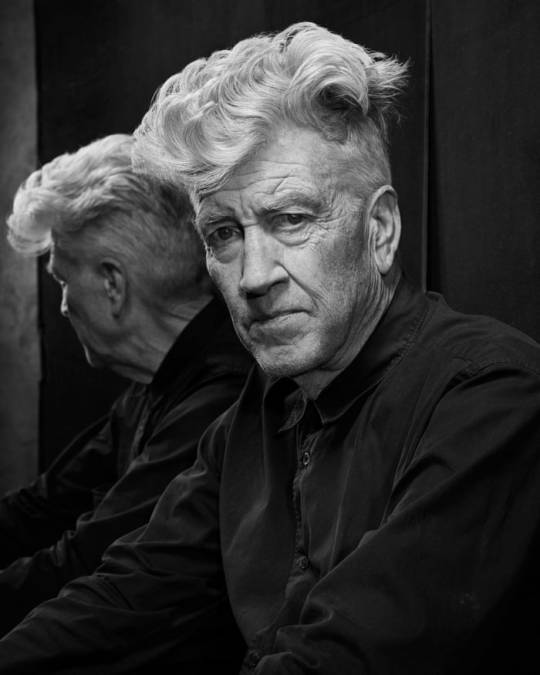
Film is definitely an art, and yet, it seems to be distinct from other forms of visual art such as painting or sculpture. Perhaps that is what makes David Lynch such a fascinating director, as he has the ability to tap into the surreal stimulus often found in the most famous paintings and transform it into brain-bending moments on film. Whether it his fear-fueled fascination with fatherhood present in his debut film Eraserhead, his ruminations on Hollywood society present in Inland Empire, or any of the stopping points in-between, it’s safe to say that David Lynch sits in the rarified air of directors like Ingmar Bergman, Alejandro Jodorowsky and the other few who can turn film into something deeper, more visceral and more meaningful.
With one of the most unique collections of films credited to his name, including a couple of curveballs in the early portion of his career, ranking the films of David Lynch is as perplexing as it is entertaining... so, without further ado, we attempt to climb that hill. I’m not even going to pretend that I can break down all of the symbolism and meanings of these films, but I can give my honest opinion about them.
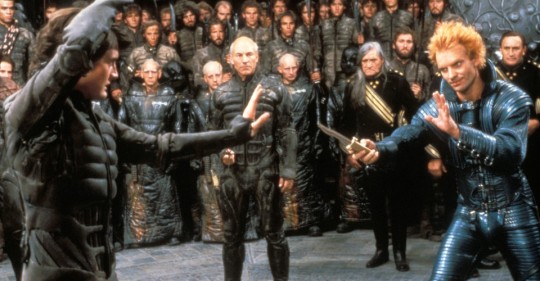
10. Dune (1984)
For a film that is supposed to be such a science-fiction gem, it’s a bit funny that nobody can seem to make a coherent, entertaining version of Dune. After nearly 15 years in pre-production hell (and three iconic names attached to versions of the production), the film landed in the laps of Dino De Laurentiis and Ridley Scott, but after another extended period delaying production, Scott bowed out, leaving the door open for David Lynch to step in. For what it’s worth, he did bring a huge list of names to the project, but the fact that the directing credit for Dune belongs to the throwaway pseudonym Alan Smithee should clue in any perceptive viewer that the project may not be one that Lynch cares to stand behind.
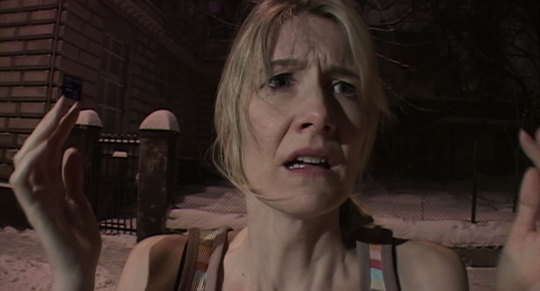
9. Inland Empire (2006)
David Lynch isn’t the type of director that revisit ground he’s already covered, which is what makes Inland Empire (the seemingly final film from Lynch) such a confusing choice. Had this film not been released after a five year gap between it and the stellar Mullholland Drive, another film that focuses on the dark underbelly of Hollywood, fame and the tolls of the acting craft, perhaps it would hit a little different to me. That’s not to say that the film isn’t good, as it is definitely a slight adjustment from the style that Lynch basically trademarked, but when a director like Lynch experiments on what feels like general principle, it makes experiments that feel like a step backward lose impact.

8. Lost Highway (1997)
Technically, you could count all of the Lynch “mystery” films as noir in some capacity, but Lost Highway feels like a direct skewing of what we know as the traditional noir structure. At its core, the film is a simple murder mystery, but it doesn’t take long for the Lynch signatures to begin appearing in every form from a mysterious, unnamed character to our protagonist literally changing into another person with no base explanation provided. Perhaps the latter choice was a look into split personalities and the disassociated nature that can come with brutal crimes... as I said before, I’m not here to try and decode the David Lynch mystery. While Lost Highway serves as a good entry point into the David Lynch catalog, it sits on the back half of the rankings due to no fault of its own... it’s more of a situation where the other mysteries are so stellar, that even the strange seems simplistic by comparison.
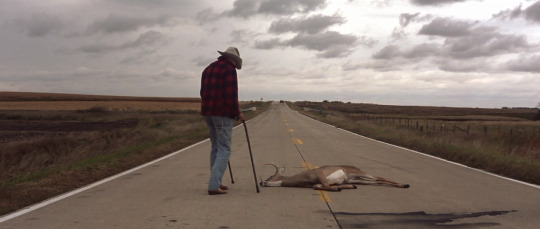
7. The Straight Story (1999)
If you played a game of “one of these things is not like the other” with the films of David Lynch, it would not be difficult to make a winning choice, as The Straight Story is clearly the most accessible and standard of all the Lynch fare. What the film lacks in oddness and style, however, is more than made up for in terms of heart and performance. The use of a lawnmower as the main source of travel allows for some beautiful landscape cinematography, and the sheer force of will exhibited by Richard Farnsworth pays off in spades when he is reunited with Harry Dean Stanton. If you’re looking for something creepy, eclectic and mind-warping from Lynch, there are plenty of other films to choose from, but if you are looking for an excuse to shed a tear or two, this is the film for you.
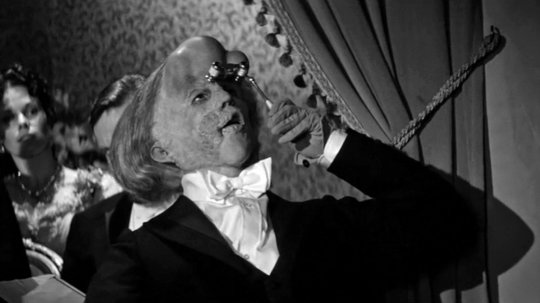
6. The Elephant Man (1980)
It’s funny to think that if not for The Straight Story, the Joseph Merrick biopic The Elephant Man would serve as the most normal film of the Lynch canon. This sophomore film dialed back on the abstractions present in Eraserhead, but it brought some extraordinary makeup and costuming to the table, not to mention it gifted viewers with a powerfully moving performance from John Hurt. Though memorable in its own right, the film really made its mark by tying Raging Bull at the 53rd Academy Awards, garnering eight nominations (and sadly losing in all categories, going home empty-handed). The backlash for the Academy’s lack of giving The Elephant Man special praise for its makeup effects also led to the creation of a Best Makeup award for the Oscars. It is quite possible that the combination of shock from Eraserhead in tandem with the skill and prowess shown in The Elephant Man opened all of the creative control doors for David Lynch, as not even Dune could derail his career and artistic oddness.
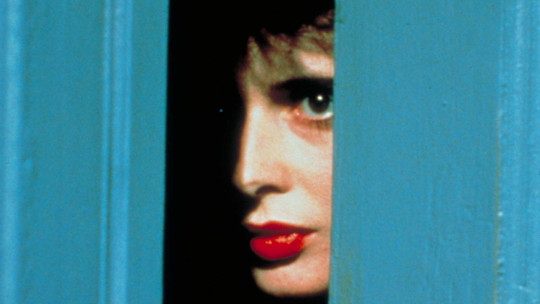
5. Blue Velvet (1986)
While Twin Peaks is where I first heard the name David Lynch, it was Blue Velvet where I first got a taste of why Lynch was held in such high regard. The suburban paradise presented in the opening credits is immediately shattered by the discovery of a random ear, and the weirdness rabbit-hole gets deeper and deeper from that point on. The classic look of the film stands in powerfully beautiful contrast to the extreme darkness of the narrative, and Dennis Hopper turned it all the way up to 11 for his performance in the film. If Lost Highway serves as the best introductory film for those curious about Lynch, then Blue Velvet serves as a good midpoint to determine how much weirdness, abrasiveness and shock you can handle in a Lynch film.
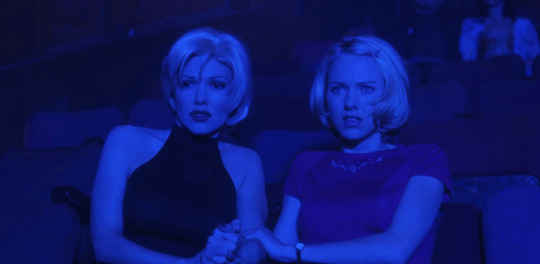
4. Mulholland Drive (2001)
I really and truly do not know where to begin with this insane rollercoaster ride of a film. The first time I watched this film, I thought I had everything figured out, every mystery solved and every bait and switch identified, but upon repeat viewings of Mullholland Drive, I’ve determined that I either had a brief moment of harmonic brilliance or I was fooling myself. The film makes sense at its root, if really and truly dissected, but when taken at face value and in real time, it’s almost impossible not to get completely lost in the sheer immersive nature of everything thrown at you. Naomi Watts is brilliant as the viewer guide through the film, and it’s good that she is so powerful in her lead role and guiding task, because Mullholland Drive is not afraid to get downright bonkers on more than one occasion. While films about the trappings of Hollywood and stardom are nothing new, I’m hard pressed to think of another film that approaches these in a manner even remotely close to that of Mullholland Drive.
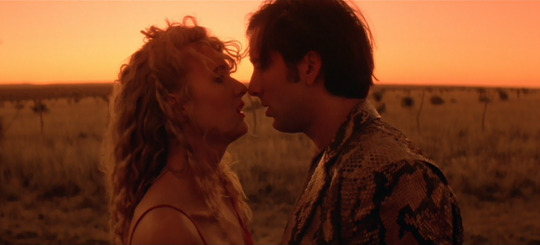
3. Wild at Heart (1990)
Quite possibly the most enjoyable of all the David Lynch films, despite some downright brutal moments of celebratory violence sprinkled throughout. The combination of Nicolas Cage and Laura Dern is nothing short of electric, and the presence of Willem Dafoe as antagonist is the perfect spark to ignite an already volatile mixture of leads. The energy level of this film starts on ten and only continues to rise as the film progresses. If/when I ever get the chance to program theater showings, I am putting this film on a double bill with Natural Born Killers immediately. While I can’t say that Wild at Heart is my favorite David Lynch film, I can say without a shadow of a doubt that it’s my favorite Lynch film to gush about with other fans.
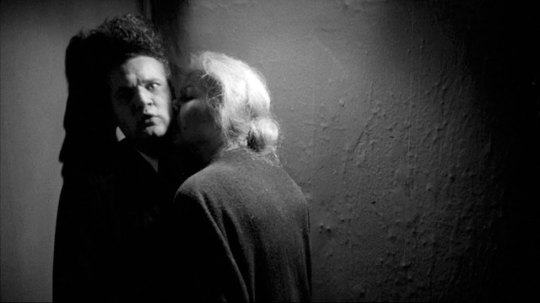
2. Eraserhead (1977)
More often than not, directors the caliber of David Lynch have stunning debut films to their name, and Lynch certainly exploded onto the scene with a gamebreaker in the form of Eraserhead. Upon first viewing, there is enough “WTF?!” going on to confuse most people, but for those brave enough to watch the film more than once, it becomes painfully obvious that all of the madness and shocking imagery on display is a clear metaphor for Lynch’s fear of fatherhood. The simple act of taking a fear that resonates with most humans and turning it into the equivalent of a black and white bad drug trip works perfectly, and Jack Nance’s iconic look and performance are almost recognizable enough to know without knowledge of the film. Eraserhead is one of those films that leaves you different than you were prior to watching it.
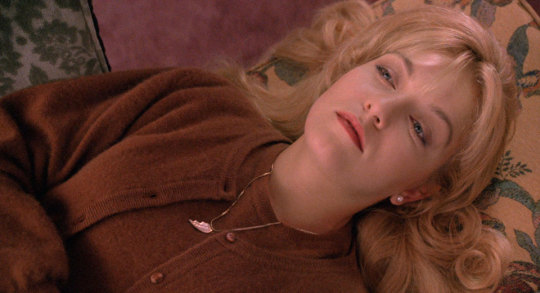
1. Twin Peaks : Fire Walk with Me (1992)
In all honesty, was there every any doubt that Twin Peaks : Fire Walk with Me wouldn’t be in the top spot? Of all the properties that the David Lynch name is connected to, none of them have even come remotely close to touching the sheer size of the lore and fandom that has emerged from this modern day masterpiece. The story of the high school princess with deep, dark secrets to hide is not new territory, but the way that Lynch handles it all with Twin Peaks takes the familiar to all new realms of weirdness, including the creation of iconic places and characters like the Black Lodge, the Log Lady, the production mistake that created the infamous Bob, and the eternally iconic Laura Palmer, and oh yeah, the film’s not half bad either. I doubt that David Lynch ever had any intention of reaching the heights of fame that Twin Peaks : Fire Walk with Me afforded him, but it would be dumb to think that he isn’t impressed with the magnitude of the world he created based on that single idea for a film.
#ChiefDoomsday#DOOMonFILM#DavidLynch#Eraserhead#TheElephantMan#Dune#BlueVelvet#WildAtHeart#TwinPeaksFireWalkWithMe#LostHighway#TheStraightStory#MullhollandDrive#InlandEmpire
23 notes
·
View notes
Link
Staged's Anna Lundberg and Georgia Tennant: 'Scenes with all four of us usually involved alcohol'
Not many primetime TV hits are filmed by the show’s stars inside their own homes. However, 2020 wasn’t your average year. During the pandemic, productions were shut down and workarounds had to be found – otherwise the terrestrial schedules would have begun to look worryingly empty. Staged was the surprise comedy hit of the summer.
This playfully meta short-form sitcom, airing in snack-sized 15-minute episodes, found A-list actors Michael Sheen and David Tennant playing an exaggerated version of themselves, bickering and bantering as they tried to perfect a performance of Luigi Pirandello’s Six Characters in Search of an Author over Zoom.
Having bonded while co-starring in Good Omens, Amazon’s TV adaptation of Neil Gaiman and Terry Pratchett’s novel, Sheen, 51, and Tennant, 49, became best buddies in real life. In Staged, though, they’re comedically reframed as frenemies – warm, matey and collaborative, but with a cut-throat competitiveness lurking just below the surface. As they grew ever more hirsute and slobbish in lockdown, their virtual relationship became increasingly fraught.
It was soapily addictive and hilariously thespy, while giving a voyeuristic glimpse of their interior decor and domestic lives – with all the action viewed through their webcams.
Yet it was the supporting cast who lifted Staged to greatness,Their director Simon Evans, forced to dance around the pair’s fragile egos and piggy-in-the-middle of their feuds. Steely producer Jo, played by Nina Sosanya, forever breaking off from calls to bellow at her poor, put-upon PA. And especially the leading men’s long-suffering partners, both actors in real life, Georgia Tennant and Anna Lundberg.
Georgia Tennant comes from showbiz stock, as the child of Peter Davison and Sandra Dickinson. At 36 she is an experienced actor and producer, who made her TV debut in Peak Practice aged 15. She met David on Doctor Who 2008, when she played the Timelord’s cloned daughter Jenny. Meanwhile, the Swedish Lundberg, 26, is at the start of her career. She left drama school in New York two years ago and Staged is her first big on-screen role.
Married for nine years, the Tennants have five children and live in west London. The Lundberg-Sheens have been together two years, have a baby daughter, Lyra, and live outside Port Talbot in south Wales.
On screen and in real life, the women have become firm friends and frequent scene-stealers.
Staged proved so successful that it’s now back for a second series. We set up a video call with Tennant and Lundberg to discuss lockdown life, wine consumption, home schooling (those two may be related) and the blurry line between fact and fiction…
Was doing Staged a big decision, because it’s so personal and set in your homes?
Georgia Tennant: We’d always been a very private couple. Staged was everything we’d never normally say yes to. Suddenly, our entire house is on TV and so is a version of the relationship we’d always kept private. But that’s the way to do it, I guess. Go to the other extreme. Just rip off the Band-Aid.
Anna Lundberg: Michael decided pretty quickly that we weren’t going to move around the house at all. All you see is the fireplace in our kitchen.
GT: We have five children, so it was just about which room was available.
AL: But it’s not the real us. It’s not a documentary.
GT: Although some people think it is.
Which fictional parts of the show do people mistake for reality?
GT: People think I’m really a novelist because “Georgia” writes a novel in Staged. They’ve asked where they can buy my book. I should probably just write one now because I’ve done the marketing already.
AL: People worry about our elderly neighbour, who gets hospitalised in the show. She doesn’t actually exist in real life but people have approached Michael in Tesco’s, asking if she’s OK.
Michael and David squabble about who’s billed first in Staged. Does that reflect real life?
AL: With Good Omens, Michael’s name was first for the US market and David’s was first for the British market. So those scenes riffed on that.
Should we call you Georgia and Anna, or Anna and Georgia?
GT: Either. We’re super-laidback about these things.
AL: Unlike certain people.
How well did you know each other before Staged?
GT: We barely knew each other. We’ve now forged a friendship by working on the show together.
AL: We’d met once, for about 20 minutes. We were both pregnant at the time – we had babies a month apart – so that was pretty much all we talked about.
Did you tidy up before filming?
AL: We just had to keep one corner relatively tidy.
GT: I’m quite a tidy person, but I didn’t want to be one of those annoying Instagram people with perfect lives. So strangely, I had to add a bit of mess… dot a few toys around in the background. I didn’t want to be one of those insufferable people – even though, inherently, I am one of those people.
Was there much photobombing by children or pets?
AL: In the first series, Lyra was still at an age where we could put her in a baby bouncer. Now that’s not working at all. She’s just everywhere. Me and Michael don’t have many scenes together in series two, because one of us is usually Lyra-wrangling.
GT: Our children aren’t remotely interested. They’re so unimpressed by us. There’s one scene where Doris, our five-year-old, comes in to fetch her iPad. She doesn’t even bother to glance at what we’re doing.
How was lockdown for you both?
AL: I feel bad saying it, but it was actually good for us. We were lucky enough to be in a big house with a garden. For the first time since we met, we were in one place. We could just focus on Lyra . To see her grow over six months was incredible. She helped us keep a steady routine, too.
GT: Ours was similar. We never spend huge chunks of time together, so it was a once-in-a-lifetime opportunity. At least until David’s career goes to shit and he’s just sat at home. The flipside was the bleakness. Being in London, there were harrowing days when everything was silent but you’d just hear sirens going past, as a reminder that something awful was going on. So I veered between “This is wonderful” and “This is the worst thing that ever happened.”
And then there was home schooling…
GT: Which was genuinely the worst thing that ever happened.
You’ve spent a lot of time on video calls, clearly. What are your top Zooming tips?
GT: Raise your camera to eye level by balancing your laptop on a stack of books. And invest in a ring light.
AL: That’s why you look so much better. We just have our sad kitchen light overhead, which makes us look like one massive shiny forehead.
GT: Also, always have a good mug on the go [raises her cuppa to the camera and it’s a Michael Sheen mug]. Someone pranked David on the job he’s shooting at the moment by putting a Michael Sheen mug in his trailer. He brought it home and now I use it every morning. I’m magically drawn to drinking out of Michael.
There’s a running gag in series one about the copious empties in Michael’s recycling. Did you lean into lockdown boozing in real life?
AL: Not really. We eased off when I was pregnant and after Lyra was born. We’d just have a glass of wine with dinner.
GT: Yes, definitely. I often reach for a glass of red in the show, which was basically just an excuse to continue drinking while we were filming: “I think my character would have wine and cake in this scene.” The time we started drinking would creep slightly earlier. “We’ve finished home schooling, it’s only 4pm, but hey…” We’ve scaled it back to just weekends now.
How did you go about creating your characters with the writer Simon Evans?
AL: He based the dynamic between David and Michael on a podcast they did together. Our characters evolved as we went along.
GT: I was really kind and understanding in the first draft. I was like “I don’t want to play this, it’s no fun.” From the first few tweaks I made, Simon caught onto the vibe, took that and ran with it.
Did you struggle to keep a straight face at times?
AL: Yes, especially the scenes with all four of us, when David and Michael start improvising.
GT: I was just drunk, so I have no recollection.
AL: Scenes with all four of us were normally filmed in the evening, because that’s when we could be child-free. Usually there was alcohol involved, which is a lot more fun.
GT: There’s a long scene in series two where we’re having a drink. During each take, we had to finish the glass. By the end, we were all properly gone. I was rewatching it yesterday and I was so pissed.
What else can you tell us about series two?
GT: Everyone’s in limbo. Just as we think things are getting back to normal, we have to take three steps back again. Everyone’s dealing with that differently, shall we say.
AL: In series one, we were all in the same situation. By series two, we’re at different stages and in different emotional places.
GT: Hollywood comes calling, but things are never as simple as they seem.
There were some surprise big-name cameos in series one, with Samuel L Jackson and Dame Judi Dench suddenly Zooming in. Who can we expect this time around?
AL: We can’t name names, but they’re very exciting.
GT: Because series one did so well, and there’s such goodwill towards the show, we’ve managed to get some extraordinary people involved. This show came from playing around just to pass the time in lockdown. It felt like a GCSE end-of-term project. So suddenly, when someone says: “Samuel L Jackson’s in”, it’s like: “What the fuck’s just happened?”
AL: It took things to the next level, which was a bit scary.
GT: It suddenly felt like: “Some people might actually watch this.”
How are David and Michael’s hair and beard situations this time?
AL: We were in a toyshop the other day and Lyra walked up to these Harry Potter figurines, pointed at Hagrid and said: “Daddy!” So that explains where we’re at. After eight months of lockdown, it was quite full-on.
GT: David had a bob at one point. Turns out he’s got annoyingly excellent hair. Quite jealous. He’s also grown a slightly unpleasant moustache.
Is David still wearing his stinky hoodie?
GT: I bought him that as a gift. It’s actually Paul Smith loungewear. In lockdown, he was living in it. It’s pretty classy, but he does manage to make it look quite shit.
#Michael Sheen#David Tennant#Staged#Staged 2#Georgia Tennant#The tidy corner#we noticed it#Staged2#SwedishFishAL
41 notes
·
View notes
Link
The University of North Carolina has rescinded its offer of a tenured journalism professor position to the author of the New York Times '1619 Project' after an intense backlash.
Instead, UNC officials confirmed this week that Nikole Hannah-Jones, who won the Pulitzer Prize for the 2019 series which 'reframed' American history to focus on when the first Africans arrived to Virginia as slaves, will join its faculty this summer with a five-year contract.
That means one of the New York Times's most vaunted reporters who the newspaper has doggedly stood by even as the project has come under withering criticism by historians for its inaccuracies didn't qualify for a permanent appointment.
The university's Hussman School of Journalism and Media had announced late last month that Hannah-Jones had been tapped for its Knight Chair in Race and Investigative Journalism, a tenured professorship.
The news was swiftly condemned by conservative political groups with links to the UNC Board of Governors which oversees the state university's 16-campus system, according to NC Policy Watch.
Among the loudest critics was the The James G. Martin Center for Academic Renewal, which argued that Hannah-Jones is unqualified for the position because her 1619 Project was 'unfactual and biased'.
The conservative watchdog group said her hiring signaled 'a degradation of journalistic standards, which should deter any serious student from applying to the journalism school'.
The 1619 Project proved a cultural lightening rod, drawing criticism from some historians who said it was a cynical view of American history - and also contained inaccuracies and generalizations.
The backlash over Hannah-Jones' hiring proved fierce enough to cause UNC to dramatically reduce its offer to a mere five-year contract - with the possibility of tenure after that but no guarantee.
A member of the Board of Trustees at UNC's main Chapel Hill campus explained the decision to NC Policy Watch, saying that it all came down to politics.
'This is a very political thing,' said the trustee, who asked to remain anonymous. 'The university and the Board of Trustees and the Board of Governors and the Legislature have all been getting pressure since this thing was first announced last month.
'There have been people writing letters and making calls, for and against. But I will leave it to you which is carrying more weight.'
'It's maybe not a solution that is going to please everyone. Maybe it won't please anyone. But if this was going to happen, this was the way to get it done.'
Susan King, the dean of UNC Hussman, called the decision 'disappointing'.
'It's not what we wanted and I am afraid it will have a chilling effect,' King said, according to NC Policy Watch.
Daniel Kreiss, an associate professor at Hussman, also condemned the controversy over Hannah-Jones' hiring.
'Obviously, they knew the hiring could be controversial,' he said. 'But I think it's all quite silly to be honest.
'Nikole Hannah-Jones is one of the most prominent journalists in the United States, frankly in the world, today and [is] doing exactly the kind of work that is necessary to help the US come to terms with its racial history.
'She's an alum we're frankly quite proud of and should be. We've had her in to give numerous talks over the years. Like her work, they've been rigorous, historical, investigative, and it makes a strong and forceful argument for coming to a full understanding of the US's history to move forward from there.'
Hannah-Jones has not publicly commented on the news that she will no longer be eligible for tenure.
In a statement on April 27, Hannah-Jones said her UNC courses would teach how to write stories that are 'truly reflective of our multiracial nation.'
It's sort of a homecoming for Hannah-Jones, who is a MacArthur Fellowship Genius Grant recipient. She got a master's degree from Hussman in 2003.
'This is a full-circle moment for me as I return to the place that launched my career to help launch the careers of other aspiring journalists,' she tweeted on Monday. 'I'm so excited to continue mentoring students from the classroom and for all I will learn from them.'
She said she'd still be at the New York Times where she wrote the 1619 Project, which was published in 2019 as a collection of essays, photo essays, poems and short fiction stories.
She joined the New York Times in 2015 after working at ProPublica, the Oregonian, the Raleigh News & Observer and the Chapel Hill News, according to a release from the school.
Teaching at UNC is a sort of homecoming for Hannah-Jones, who graduated from Hussman in 2013.
Hannah-Jones became a household name in journalism with the 1619 Project - which was slammed by former President Donald Trump as 'totally discredited' and part of the 'twisted web of lies' that has caught fire in American universities that teach American is a 'wicked and racist nation.'
Trump formed a '1776 Commission' in response to teach 'patriotism.' It released a report this year before being ended by President Joe Biden.
The series 'reframed' American history to have it start in 1619, when the first slaves from Africa arrived to Virginia, instead of 1776, when the founding fathers declared independence from Britain.
In her essay, Hannah-Jones wrote that slaves laid the foundations of the US Capitol and built founding fathers' plantations. She said the 'relentless buying, selling, insuring and financing of their bodies' made Wall Street and New York City the financial capital of the world.
'Before the abolishment of the international slave trade, 400,000 enslaved Africans would be sold into America. Those individuals and their descendants transformed the lands to which they'd been brought into some of the most successful colonies in the British Empire,' Hannah-Jones wrote.
'But it would be historically inaccurate to reduce the contributions of black people to the vast material wealth created by our bondage,' she said. 'Black Americans have also been, and continue to be, foundational to the idea of American freedom. More than any other group in this country's history, we have served, generation after generation, in an overlooked but vital role: It is we who have been the perfecters of this democracy.'
The project heralded by some and criticized by others, including a number of historians and Trump, who adamantly opposed the idea that it should be taught in classrooms.
Princeton historian Sean Wilentz criticized the '1619 Project', and some of Hannah-Jones's other work, in a letter sent to top Times editors and the publisher, The Atlantic reported in December 2019.
The letter, which was signed by other scholars James McPherson, Gordon Wood, Victoria Bynum, and James Oakes refers to 'matters of verifiable fact' that 'cannot be described as interpretation or "framing''' and says the project reflected 'a displacement of historical understanding by ideology,' The Atlantic reported.
Wilentz and the other signatories demanded corrections.
Trump called it 'revisionist history' and threatened to withhold federal funding from public schools that used it.
Republican lawmakers in a handful of states, including Iowa and Missouri, are continuing his fight to ban it from schools.
Bills were introduced in those state legislatures that would punish school districts that use the '1619 Project' by cutting federal funding.
A major critic of the project has been The Heritage Foundation, which says it 'has been tireless in its efforts to debunk the radical and anti-American positions taken by The New York Times and the '1619 Project.'
One of The Heritage Foundation's articles pointed out post-publication edits that the Times made, including changing a in Hannah-Jones' leading article in the series to say that 'some of' the colonists fought the American Revolution to defend slavery.
'The editors called this a 'small' clarification, and it was indeed very small, although considering that the 1619 Project's full-throated commitment to demonstrating that American history can only be explained through the lens of slavery, this correction appears nothing short of essential,' Heritage policy expert Jonathan Butcher, a senior policy analyst for Heritage's Center for Education Policy, wrote.
One of the project's supporters, Seth Rockman, an associate professor of history at Brown University, wrote in an op-ed for the Washington Post that the project 'is a testament to patriotism, not a repudiation.'
Rockman wrote that history is 'an ongoing conversation in which trained professionals and multiple publics wrestle with the meaning of the past' and disagreement is desirable 'as it shows us that something important is at stake.'
He said there are warranted criticisms that 'we should spend our time debating,' for example the project was 'insufficiently attentive' about how the Native Americans lost their land.
Trump suggested, however, that the project's teachings were dangerous.
'Critical race theory, the 1619 project, and the crusade against American history is toxic propaganda, ideological poison that if not removed will dissolve the civic bonds that tie us together,' he said, according to the Atlantic. 'It will destroy our country.'
Hannah-Jones, meanwhile, said on Twitter that 'history, in general, is contested.'
'The project unsettled many. I think that is good.'
4 notes
·
View notes
Photo

Life Detained.
The Mauritanian director Kevin Macdonald talks with Jack Moulton about researching Guantanamo Bay’s top secrets, Tahar Rahim’s method-acting techniques, the ingenuity of humanity during the pandemic, and his favorite Scottish films.
“You’ve got to understand that for a Muslim man like Tahar, this role has a much greater significance than it does for you or me.” —Kevin Macdonald
It’s not uncommon for a director to release two films in one year, but Academy-Award winning—for his 1999 documentary One Day in September—director Kevin Macdonald is guilty of this achievement multiple times. Ten years ago, he released his first crowd-sourced documentary Life in a Day and the period epic The Eagle within months of each other. A decade on, he’s done it again.
The Scottish director (and grandson of legendary filmmaker Emeric Pressburger) released both his Life in a Day follow-up and the legal drama The Mauritanian this month. The latter tells the story of Guantanamo Bay detainee Mohamedou Ould Slahi (sometimes written as Salahi), who was held and tortured in the notorious US detention center for fourteen years without a charge. The film, adapted from Slahi’s 2015 memoir Guantánamo Diary, features Jodie Foster and Shailene Woodley as his defense attorneys Nancy Hollander and Teri Duncan, with Benedict Cumberbatch, who also signed on as the film’s producer, playing prosecutor Lt. Stuart Couch.
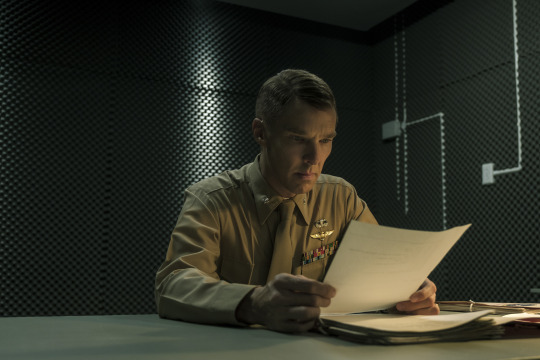
Benedict Cumberbatch as prosecutor Lt. Stuart Couch in ‘The Mauritanian’.
The Mauritanian also introduces French star Tahar Rahim to a global audience, in the role of Slahi. “The ensemble is excellent across the board,” writes Zach Gilbert, “while Tahar Rahim is best in show overall, bringing honorable heart and humanity to his role [of] the titular mistreated prisoner.”
Much of the story is filmed as an office-based legal thriller involving thick files, intense conversations, and Jodie Foster’s very bright lipstick. Macdonald expertly employs aspect ratio to signify narrative shifts into scenes recreating Slahi’s vivid recollections of torture and his achingly brief conversations with unseen fellow detainees.
Qualifying for this year’s awards season due to extended deadlines, The Mauritanian has already earned Golden Globe nominations for Best Actor and Best Supporting Actress for Rahim and Foster respectively. Slahi remains unable to travel due to no-fly lists, but he was a valuable resource to the production, providing an accurate and rare depiction of a sympathetic Muslim character in an American film.
It was the eve of Life in a Day 2020’s Sundance Film Festival premiere when we Zoomed with Macdonald. Behind him, we spied a full set of the Italian posters for Michelangelo Antonioni’s classic Blow-Up. As it turns out, he’s not a fan of the film—only the posters—so we got him talking about his desert-island top ten after a few questions about his new film.
The attention to detail on Guantanamo Bay in The Mauritanian is impressive. There are procedures depicted that you rarely see on-screen. How did you conduct your research?
Obviously Guantanamo Bay is a place which the American government spends a great deal of effort keeping secret. It was important to Mohamedou and me that we depicted the reality of the procedures as accurately as we possibly could. That research came primarily from Mohamedou who has an incredible memory. He drew sketches and made videos of himself lying down in spaces and showing how he could stretch half his arm out [in his cell]. There are a lot of photographs on the internet of Guantanamo Bay which are [fake] and others are from a later period because the place developed a lot over the years since it started in 2002 and Mohamedou was able to [identify] which photos were rooms, courtyards and medical centers he had been in.
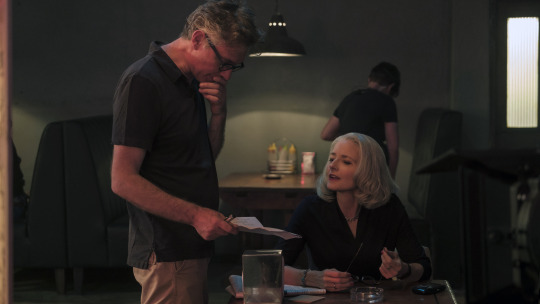
Director Kevin Macdonald on set with Jodie Foster.
How did you approach creating an honest representation of the graphic torture scenes, without putting the audience through it as well?
Whenever films about this period are [made] they’re always from the point of view of the Americans and this time we’re with Mohamedou. You can’t underestimate the fact that there have really been no mainstream American cinematic portrayals of Muslims at all, so in portraying a sympathetic Muslim character who’s also accused of terrorism, you’re pushing some hot buttons with people. It was important that those people who are uncomfortable with him understand why he confessed to what he confessed.
Everything you see in the film is what happened; the only difference is that they weren’t wearing masks of cats and Shrek-like creatures, they wore Star Wars masks of Yoda and Luke Skywalker in this very perverse fucked-up version of American pop culture. Obviously, we couldn’t get the rights to those. Actually, I don’t feel that it is graphic. There is more violence in your average Marvel movie. It’s psychologically disturbing because you’re experiencing this disorientating lighting, the [heavy-metal] music, and he’s being told his mother’s going to be raped and he’s flashing back to his childhood. To be empathizing with this character and then to see them to be so cruelly treated is so deeply disturbing.
How did you prepare Tahar Rahim for his convincing portrayal of such intense pain and suffering?
Tahar went through a great deal of discomfort in order to achieve it. He felt that to give a performance that had any chance of being truthful, he needed to experience a little bit of what Mohamedou had suffered, so throughout the movie he would insist on wearing real shackles which made his leg bleed and give him blisters. I would plead with him to put on rubber ones and he would say “no, I have to do this so I’m not just play-acting”.
He starved himself for about three weeks leading up to a torture sequence—he had lost an awful amount of weight and he was really unsteady on his legs. I was very worried about it and I got him nutritionists and doctors but he was determined to stick with that. You’ve got to understand that for a Muslim man like Tahar, this role has a much greater significance than it does for you or me. He felt a great weight of responsibility to do this correctly, not just for Mohamedou, but he was speaking for the whole Muslim world in a way.

Jodie Foster and Shailene Woodley as defense attorneys in ‘The Mauritanian’.
What compels you to study this period in time?
Mohamedou was released a couple of weeks before Trump came to power in 2016, so the story is still ongoing for him. He’s still being harassed by the American government and he’s not allowed to travel because he’s on these no-fly lists. I didn’t want to make a movie that was saying “George W. Bush is terrible”. We’ve been there, we’ve done that. This is looking back with a little bit of distance and saying “here’s the principles that we can learn from when you sidestep the rule of law”—what it takes to stand up like Lt. Stuart Couch did when everyone else around you is going along with something that’s really terrible.
You see that around Trump with the choices within the Republican Party to stand up and say they’re going to sacrifice their careers to do the right thing. It is a hard thing when there’s this mass hysteria in the air. The basic principles that the lawyer [characters] are representing is not about analyzing and replaying what happened after 9/11, they’re directly related in a bigger way to the world we all inhabit.
Did anything surprise you in how your subjects for Life in a Day 2020 addressed the pandemic?
One of the most affecting characters in the film is an American who lost his home and business because of the pandemic, so he’s living in his car. He seems very depressed when you meet him for the first time, then later he’s telling us there’s something that’s giving him joy in his life. He brings out all these drones with these cameras on them and puts on this VR headset and loses himself by flying through the trees. I thought that was such a great metaphor for the way that human ingenuity has enabled us to survive and thrive during the pandemic.
I get the feeling of resilience from [the film]. This is a more thoughtful film than the original one. I see this as a movie of [us] being beware of our susceptibility to disease and ultimately to death and mortality, [and] how we’ve found these consolations as human beings. To me, it’s a really profound thing. It also speaks to the main theme of the film which is how we’re all so similar, same as The Mauritanian. It’s confronting you with all these people and saying we fundamentally all share the basic things that underpin our lives and the differences between us are much less important than the things we have in common.
Let’s go from Life in a Day to your life in film. What’s a Scottish film that you love but you feel is very overlooked or underrated?
That’s really hard because there aren’t many Scottish films and there aren’t many good ones. Gregory’s Girl is the greatest Scottish film ever made—it’s the bible for life for me. That’s very well-known, so I would have to say Bill Forsyth’s previous film That Sinking Feeling, which was self-funded and made on 16mm black-and-white. It has some of the same actors and characters as Gregory’s Girl in it. Or my grandfather Emeric Pressberger’s film I Know Where I’m Going! which is a rare romantic comedy set in Scotland.

John Gordon Sinclair and Dee Hepburn in Bill Forsyth’s ‘Gregory’s Girl’ (1980).
Which film made you want to become a filmmaker?
I think it was Errol Morris’s The Thin Blue Line, which is one of the top five documentaries ever made and in my top ten desert-island movies.
What else is in your desert-island top ten?
Oh god, don’t! I knew you were going to ask me that. I’ll give a few. I would say there would have to be something by Preston Sturges—maybe The Lady Eve or The Palm Beach Story. There would have to be a film written by my grandfather, so probably The Life and Death of Colonel Blimp, which is the best British film ever made. There would have to be Singin’ in the Rain, which is the most purely joyful film I’ve ever seen. There would probably be The Battle of Algiers, which I rewatched recently and was an inspiration on The Mauritanian. Citizen Kane I also rewatched in anticipation of watching Mank, of which I was very disappointed. I thought it completely missed the point and was kind of boring.
Which was the best film released in 2020 for you?
I thought the Russian film Dear Comrades! was really stunning. It was made by a director [Andrei Konchalovsky] in his 80s who first worked with Andrei Tarkovsky back in the late 1950s. He co-scripted Ivan’s Childhood. I would love to make my masterpiece when I’m 86 too!
Related content
Films with Muslim characters
Movies that pass the Riz test
Scottish Cinema—a regularly updated list
Follow Jack on Letterboxd
‘The Mauritanian’ is in select US cinemas and virtual theaters now, and on SVOD from March 2. ‘Life in a Day 2020’ is available to stream free on YouTube, as is the original.
#kevin macdonald#michelangelo antonioni#scottish film#scottish director#emeric pressburger#the mauritanian#jodie foster#tahir rahim#tahar rahim#french actor#guantanamo bay#muslim representation#muslims on film#benedict cumberbatch#guantanamo diary#life in one day#life in one day 2020#life in one day film#letterboxd
8 notes
·
View notes
Text
the man was FILLED with easter eggs and metaphors. here they are!


1. being in the room where it happens
in the lyric video for the man, we see a woman working so hard to try and get to where all the men are -- on top, both physically and metaphorically. in the music video, we see The Man starting out here, just another normal day at the office. another normal day in charge, and on top.

2. “i’d be a fearless leader”
The Man not so much as walks into the room and makes a few comments before getting applause for his work. at the same time, every desk in this office can be seen with a mountain of papers, files, and books stacked on top of them. for all the hard work that these people are doing in this office, The Man gets all the applause for a fraction of it.

3. the subway
now, obviously what we have here is what you have on any and every subway or other form of local transportation -- that one asshole who feels entitled to take up as much space as he wants at the discomfort of everyone around him. while i could get into how mansplaining is a metaphor for men feeling the right to take up more space in society then women, i won’t. instead, i want to focus on all the little details on this subway that tell men they can. at the very, very top of the frame, we see text at the bottom of an ad that says “because you DESERVE what you want” and the posters on either side of The Man tell us “mother nature doesn’t stand a chance” and “capitalize on the feeling”. this is how society treats men. they should get to do whatever they want, based only on their feelings or wants. this notion will become important in the subway station.
shoutout to the girl in the miss americana hoodie! i think we can safely say she’s listening to lover on her headphones.

4. the newspaper
for this image, i turned the brightness WAYYY up so we could read the newspaper. the leading headline is “what man won the year in celebrity dating?” with the caption “who crushed it this year?” one headline says “years most eligible CEO’s” and another says “men in love in sports”. now, i don’t have to tell you that taylor swift was vilified for her relationships. these headlines show the difference between how men and women are treated when it comes to relationships. what’s it like to brag about getting bitches and models?
on the back cover, we see a contrast between how men and women are viewed in society. the ad dedicated towards men has a very strong and tough vibe to it, and the article beneath it carries the title “it’s men against boys with no ladies around.” in fact, the only mention we get of said “ladies” is in the “style section” where we see two sexy, rail thin women posing at fashion shows. while society views men for their strength, women are supposed to be objects of beauty and desire, and nothing more.
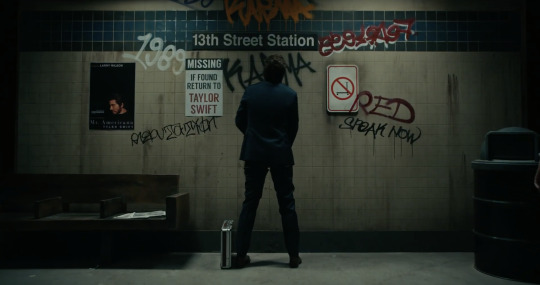
5. here lies taylor swift’s reputation (and all her previous albums)
now, obviously, the sign says “missing, if found, please return to taylor swift” and grafitied on the walls are the names of the albums whose masters taylor does not own. remember when those ads on the subway told men that you DESERVE what you want? that’s what empowered The Men who stole taylor’s masters to take them. they wanted them, after all! let’s also remember that The Man is can be seen pissing on the wall in this shot. it’s a metaphor for The Men who own taylor’s old albums and are essentially pissing on all her hard work. we can also see “KARMA” written in big letters in the middle of all the albums, which invokes a lyric from look what you made me do: “all i think about is karma, and then the world moves on but one things for sure, maybe i got mine but you’ll all get yours”. pretty sure karma is coming for The Men who own taylor’s masters.
if you look closely, you can also see a sign to the left of The Man that says no scooters! sc*oter bra*n is not welcome at the 13th street station


6. “i’d be just like leo in st. tropez”
for your viewing pleasure, i have included an image of leo in st. tropez. we can see women in bikinis, and every sort of expensive, luxurious form of leisure you could think of. during the verse where we see The Man on the yacht, she sings “they’d say i hustled, put in the work, they wouldn’t shake their heads and question how much of this i deserve”. this is reminiscent of The Man when he was in the office and how, no matter how much work he did or didn’t do, he is heralded as a genius. the point of saying she’d be just like leo in st. tropez is not to try and call out leonardo dicaprio for going a cruise and having some fun. people should be entitled to celebrate and vacation however they please. the point is that women should be able to do the same thing.
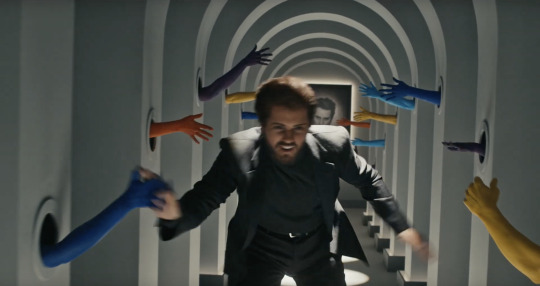
7. The Man’s “walk of shame”
this is a metaphor for how men in society are treated when they take a misstep. while women can be criminalized and thrown the wolves, it appears that men always have people on their team, and in this case, hands lining up to be high-fived. men often are not held to the same standards as women, and even when they do something wrong, they face very little backlash for it, and normally have their own set of groupies or supporters telling them that they were really in the right (and they are allowed to believe it).
at the back of the hallway, there hangs a portrait of The Man pointing at the camera, as if to say “you ARE the man.” it feels like uncle sam, but in a “ i want YOU for us army whatever your heart desires” kind of way.
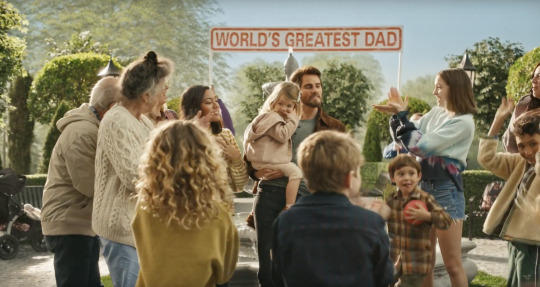
8. world’s greatest dad
the bar for men is so low that when they do the very minimum (in this case, merely look after their own child), they get commended for it. imagine if this were a woman. would she be applauded? no, she would probably be reprimanded for being on her phone and ignoring her child, like The Man did here.
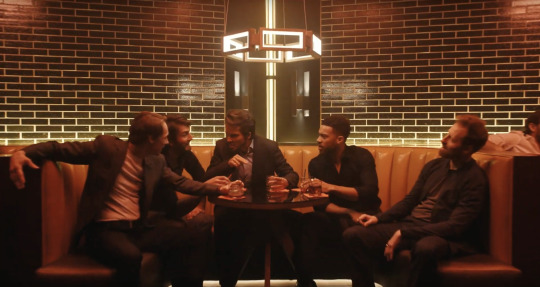
9. bragging
this one is pretty self-explanatory. what’s it like to brag about raking in dollars and getting bitches and models? what’s it like when it’s all good if you’re bad and it’s okay if you’re mad? in this scene, we see The Man telling all his buddies about the bitches and models and dollars, and then freaking out on somebody.

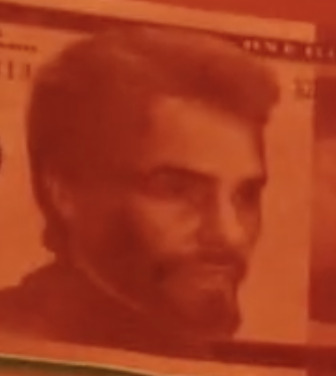
10. raking in dollars
who's on the 100 dollar bill? he is! the serial number on this bill also ends in 13. i thought there might be more hidden goodies here, but if there are, the video isn’t in high enough resolution to tell. the only other thing i can make out was that it said “for motion picture use only” which i thought would be an easter egg until i rendered it in photoshop and could read it clearly. oh well!

11. raising money for the women’s charity
a problem we see in society a lot is people of privilege being an ally only by action, not by everyday behavior. here, we see The Man benefitting a women’s charity, but all throughout the video we haven’t seen him go out of his way to respect or give a voice to women. even in this shot, a woman stands on the sidelines while The Man takes all the glory. while he raises money for women, he has no other character traits that show he actually cares about them.
in a different shot of this scene, a water bottle from taylor’s merch can be seen on the sideline.
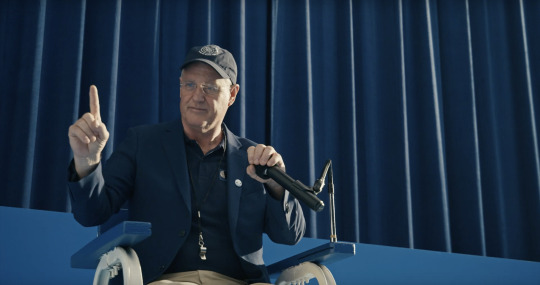
12. the unimpressed umpire
this is taylor’s dad! his name is scott. in a video full of mediocre men, scott is our resident Good Man :)
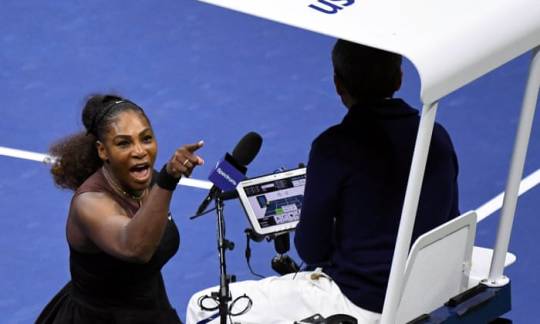

13. the freakout
in 2018, serena williams unleashed on an umpire who accused her of cheating and stuck her with her third penalty of the game -- penalties the whole crowd was certain she did not deserve. she even said at the time “To lose a game for saying that, it’s not fair. How many other men do things? There’s a lot of men out here who have said a lot of things. It’s because I am a woman, and that’s not right.” this is a DIRECT representation of this. it’s as they say, it’s all good if you’re bad, and it’s okay if you’re mad.
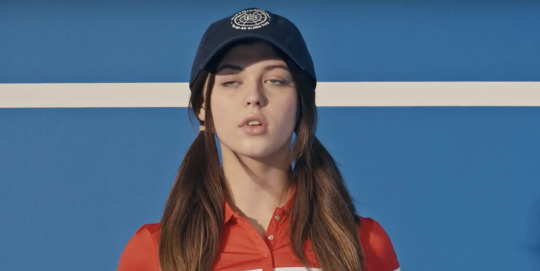
14. the hat
the hat our tennis attendant is seen wearing says “TS” in big letters, and in a circle around it, it says “i’d be a fearless leader, i’d be an alpha type.” taylor’s dad can also be seen wearing this hat.

15. the one where lover is NOT the happy couple’s first dance
first of all, this shit makes me SO uncomfortable. this is obviously an allusion to all the men who marry MUCH younger women, which is poignant because, again, taylor suffers mercilessly for her relationship choices, and they’re nowhere near as abhorrent as this. something also worth mentioning: scott borchetta is turning 58 this year. i’ll let you figure the rest out.
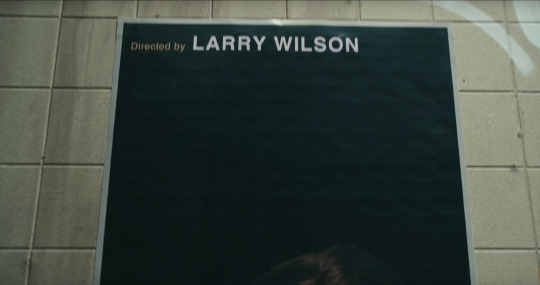

16. mr americana
any taylor swift fan will know that in january, taylor released a documentary with an intimate perspective on her life titled “miss americana” which focused a lot on the struggles taylor has overcome in her career. choosing miss americana to be a part of this video is a wise choice, because it highlights those same struggles that taylor is tackling in this music video. we can probably assume that mr americana faces significantly less struggles.
every part of this poster has been revamped to be man-centered, even down to the star role - tyler swift, not taylor.
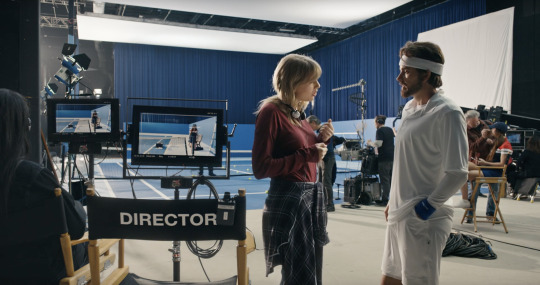
17. take two
here, our director tells The Man that he needs to be sexier, and more likable. this reflects criticism that taylor and other women in the public eye hear almost daily. as i mentioned before, women in society are valued only as objects of beauty and desire, and here, we see the script flipped to bring that to light.
in this final scene, we leave the fantasy world of the music video that The Man is starring in, and go to what appears to be a woman-dominated world, insinuating that the universe of the music video is one opposite to our own. this drives home the claim that if taylor were the man, she would be the man.

18. dwayne the rock johnson
i thought that having the rock voice The Man was really poignant. think about the rock’s career -- started out as a wrestler, is now an actor, but he’s known for his kindness and his dedication to social justice. if you asked me if he had ever been a part of any scandal, i would tell you no. and that’s exactly who The Man is. that’s exactly who this song is about, and that’s who taylor is. she has had an insanely successful career spanning over a decade, crossing into multiple different genres and fields, and excelling at all of it. she’s friendly, hard working, a social justice warrior, and a philanthropist. but all of those things are pushed aside in favor of the negative. using the rock as The Man was the perfect way of finishing off the statement,
“if i was a man, i’d be the man.”
#the man#taylor swift#directed by taylor swift#lover#the man music video#this took me SO LONG to finish#i've had class and meetings all day so i have been writingi it since like eight am#BUT I FINALLY FINISHED IT#ii'm sure some of these things have already been said#but i just love writing posts like this so much#and this video was FILLED with meaningful and poignant stuff#i can't get OVER it#this video said EVERYTHING#i.....#there's nothing left to be said#i love it so much#random thoughts with grace
179 notes
·
View notes
Text
The Friends Cast’s Best Post-Friends Roles
https://ift.tt/3vr0Vgh
Early on in HBO Max’s long-awaited Friends reunion special “The One Where They Get Back Together,” series co-creator David Crane reveals the producing team’s initial vision for the show.
“We were really intrigued with the idea of doing a true ensemble. It’s not like there’s a lead and they have friends. No, it’s just about the friends. We’re following all of their stories equally.”
Friends would never have worked if Crane, Marta Kauffman, and Kevin Bright hadn’t gone six for six in the casting of the titular friends. One or two solid choices wouldn’t do it. Neither would four or five. It had to be all six.
Read more
TV
Friends: 25 Best Episodes
By Louisa Mellor
As evidenced by the fact that there’s now a reunion special more than 15 years after the show has gone off the air (and one that each member of the cast was reportedly paid a staggering $2 million to attend), Friends found the right six actors for the job. David Schwimmer (Ross Geller), Lisa Kudrow (Phoebe Buffay), Jennifer Aniston (Rachel Green), Matt LeBlanc (Joey Tribbiani), Courteney Cox (Monica Geller), and Matthew Perry (Chandler Bing) all shared an impeccable chemistry. Not only that, but each was able to carry moments of the show when needed.
As former Friends guest star and interviewee in the special Reese Witherspoon notes: “Friends has this magic because each character is so distinct that they could hold a television show by themselves.”
Of course, nothing lasts forever – not even one of the most successful sitcoms of all time. Though Friends continues to find new fans via streaming, the show concluded for good in 2004 and its central sextet’s careers carried on. Since “The One Where They All Get Back Together” got everyone in the proper mood for reminiscing, let’s reminisce about the best role for each of the cast once their iconic run on Friends concluded.
The only rule for eligibility here is that the actor’s role has to have come after Friends wrapped entirely. This disqualifies otherwise stellar work like Schwimmer in 2001’s Band of Brothers and Aniston in 1999’s The Iron Giant. The role in question also has to have been in a movie or TV series, which hurts Perry a bit as he’s had some good jobs in theater and videogames.
Fittingly enough, however, each of the Friends’ actors best post-Friends role happened to come on a television show.
Matthew Perry – The Odd Couple
Aaron Sorkin’s Studio 60 on the Sunset Strip is absolutely Perry’s most prominent role after Friends. In fact, it might be among the most prominent roles that any Friends castmember has had since the show signed off. Unfortunately, Studio 60 on the Sunset Strip ended up being a bit of a cringe fest.
Perry has a promising role as a conservative talk show host coming up in Adam McKay’s next film. For now, his best post-Friends role is likely one of his two recent network sitcom attempts: sports talk radio host Ryan King in NBC’s Go On or Oscar Madison in CBS’s The Odd Couple. Let’s go with the latter because he had good chemistry with co-star Thomas Lennon (who turned up in the Friends reunion special as well).
Matt LeBlanc – Episodes
LeBlanc has not been quite as prolific as his Friends peers since the show concluded. After his character’s spinoff Joey failed at NBC, LeBlanc took a bit of a break from the TV world. When he returned though he did so with unquestionably his best post-Joey role.
In Showtime’s Episodes, LeBlanc plays a fictionalized version of himself cast in a role that doesn’t suit him. The show’s British creators are attempting to update their concept for an American audience and have been saddled with the former Friends star by a studio that really doesn’t get their whole deal. LeBlanc won a Golden Globe for this role and was nominated for four Emmy awards.
Jennifer Aniston – The Morning Show
Aside from some guest appearances on TV here and there, Aniston threw herself into the film world after Friends wrapped up with roles in projects like The Switch, Horrible Bosses, We’re the Millers, and more. It wasn’t until she returned to television in 2019, however, that she found her best post-Rachel Green acting opportunity.
Alongside her Friends sister Reese Witherspoon, Aniston is the star of Apple TV+’s drama The Morning Show, playing morning show host Alex Levy. When her cohost is fired amid a sexual harassment scandal, Alex works to secure her role as the top news anchor while dealing with Witherspoon’s ascendant reporter Bradley Jackson. Aniston was nominated for an Emmy and won the Screen Actors Guild award for the role.
Courteney Cox – Cougar Town
Cougar Town may be saddled with one of the silliest names in all the TV canon, but it’s really a lovely sitcom – maybe the best traditional sitcom a Friends actor has been involved with after Friends, in fact. As created and run by Bill Lawrence (Scrubs, Ted Lasso), Cougar Town started as a one-note concept that found Cox’s character freshly divorced and prepared to date younger men (you know, like a mountain lion).
The show quickly changed gears, however, and became a charming hangout comedy that highlighted the chemistry and strengths of its cast. At the center of it all was Cox’s pitch perfect depiction of Jules Cobb: an optimistic woman who loves her friends and giant goblets of wine. Cox is also set to reprise one of her major characters from the Friends era when Gale Weathers returns in 2022’s Scream.
David Schwimmer – The People vs. O.J. Simpson: American Crime Story
At first glance, it’s a bit strange that David Schwimmer was part of FX’s The People O.J. Simpson. It’s even stranger that the character he was chosen to play was the Juice’s friend and lawyer Robert Kardashian, white streak in his hair and all. All the memery and mockery at Ross Geller’s presence as the Kardashian paterfamilias in the first American Crime Story is understandable but it belies what is a pretty great performance!
Who knows if Schwimmer’s Bob Kardashian bears any resemblance to the real version. But as a character, he’s a crucial, consistent presence in the miniseries’ 10 episodes as a man who just wants to see the best in his friend for as long as he logically can. Since Friends, Schwimmer has also lent his voice to the Madagascar film series, and co-starred in Sky One comedy Intelligence.
Lisa Kudrow – The Comeback
Lisa Kudrow has kept busy in the 15+ years since Phoebe Buffay rode off into the sunset with Paul Rudd. The actress has been a mainstay in television and film, but it’s the former medium where she made her biggest post-Friends mark. Kudrow co-created 2004 HBO mockumentary The Comeback and stars as the lead Valerie Cherish. The Comeback was an insider comedy about the entertainment industry before that became a trendy topic on television throughout the mid aughts. It’s also one of the best mockumentaries ever.
cnx.cmd.push(function() { cnx({ playerId: "106e33c0-3911-473c-b599-b1426db57530", }).render("0270c398a82f44f49c23c16122516796"); });
Valerie Cherish is a B-list sitcom actress trying to recapture her fleeting fame. To that end, she gets a bit role as “Aunt Sassy” on a sitcom called “Room and Bored” and agrees to have her acting comeback documented in a reality series called “The Comeback.” The Comeback is an incisive satire of the entertainment industry that reaches Office levels of cringe-comedy. Through it all, Kudrow is perfect as the aging actress who is equal parts patient at all the indignities thrown her way and difficult when she wants to be. The show had a well-received second season in 2014.
The post The Friends Cast’s Best Post-Friends Roles appeared first on Den of Geek.
from Den of Geek https://ift.tt/3uuWVKp
4 notes
·
View notes
Text
The Legacy of Richard Barthelmess by Susan King

Douglas Fairbanks, Rudolph Valentino and John Gilbert are usually mentioned as the top silent film stars of the 1920s. But there was also Richard Barthelmess, who came to fame opposite Lillian Gish in the D.W. Griffith classics BROKEN BLOSSOMS (‘19) and WAY DOWN EAST (‘20). In fact, Gish once said Barthelmess’ face was “the most beautiful of any man who had ever been before the camera.”
A fan once wrote to the editor of Picture Play magazine that “Dick is getting more and more popular every day and why? Because his wonderful black hair and soulful eyes are enough to make any young girl adore him.” At the height of his career, he received 6,000 fan letters.
And then there was my grandmother, aka, Nana. She always seemed nonplussed about Hollywood and actors. But she didn’t feel that way about Barthelmess. Though I remember some of our trip to Miami Beach when I was four, I don’t recall that we encountered him at the Miami Airport. Many years later, my mother related to me with much glee that Nana was beside herself when she saw the then 64-year-old actor checking in for a flight.
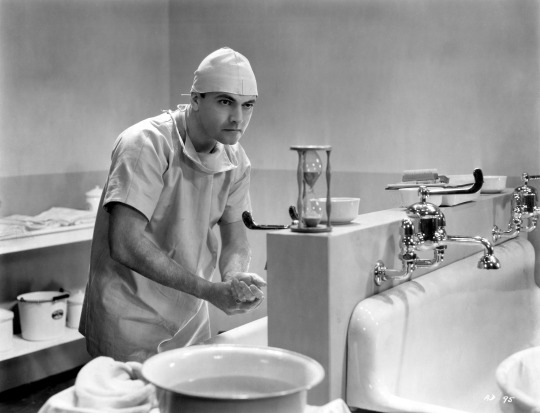
Besides the swoon factor, Barthelmess had the acting chops. He received strong reviews playing a kind Chinese man who falls in love with a Caucasian woman (Gish) in BROKEN BLOSSOMS and was equally strong in WAY DOWN EAST as the earnest young man who rescues the love of his life (Gish) from death on a fast-moving ice flow.
And he further cemented his popularity with critics and audiences in TOL’ABLE DAVID (‘21), Henry King’s drama about the youngest son of a tenant farmer who yearns to be treated as a man. The film went on to win Photoplay magazine’s Medal of Honor.
During the 1920s, Barthelmess generally was cast as the all-American hero. As his New York Times obituary stated, he was “masculine, but gentle, modest and unassuming” and possessed a “shy smile” and “sleek black hair.” Fairbanks, Valentino and Gilbert were seen as far more sexual than Barthelmess.
He formed his own production company, Inspiration Pictures, making 12 films under that banner before he sold it when he was offered a financially strong contract with first National Pictures. Barthelmess was one of the founders of the Academy of Motion Pictures Arts and Sciences, and he was a double nominee for lead actor at the first Academy Awards for THE PATENT LEATHER KID (‘27) and THE NOOSE (‘28). Silents were golden for Barthelmess; talkies less so. Audiences first heard Barthelmess in WEARY RIVER (‘29), one of those hybrid films Hollywood made at the beginning of the talkies era that featured both silent and sound sequences. And, there was a bit of a Lina Lamont/Kathy Selden trick going on behind the scenes for Barthelmess. Initially, it was thought that he actually was singing in the film.

The New York Times Mordaunt Hall even said in his review that “[Barthelmess] does sing it quite well.” It was later revealed that singer Johnny Murray provided the vocals and the actor was lip-synching.
I’ve seen a lot of Barthelmess’ talkies, and personally I found him uncomfortable on screen. His voice was rather weak, and his glacial beauty seemed to hurt his performances instead of enhancing his work, as it did in the 1920s. Still, the critics were giving him good reviews, and audiences seemed to like his pre-Code melodramas and his Depression-era persona.
Barthelmess worked with a lot of the top directors of the day, including Howard Hawks in THE DAWN PATROL (‘30); William A. Wellman in CENTRAL AIRPORT (‘33) and HEROES FOR SALE (‘33) and even the legendary German filmmaker G.W. Pabst (PANDORA’S BOX, ‘29) in his only Hollywood film, A MODERN HERO (1934).
But by this time, his star was fading. And around the time of his 40th birthday, Barthelmess decided to get plastic surgery. The procedure was botched and left him with visible scarring. It was three years before he felt ready to go back in front of the camera. And when he did, he gave the performance of his sound career in Hawks’ ONLY ANGELS HAVE WINGS (‘39), one of my favorite films starring Cary Grant, Thomas Mitchell and Jean Arthur about a group of daredevil pilots working for a small company in South America.
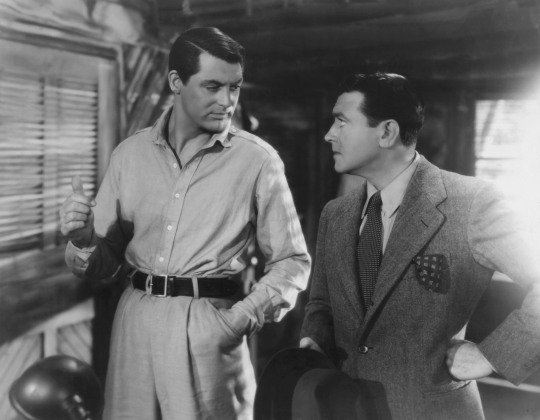
Barthelmess plays a pilot who comes to work at the company with a black mark on his name for having left his former crew to die. Grant gives him the hardest and most dangerous assignments. Hawks didn’t want his scars to be covered. According to IMDB, Hawks told Barthelmess “those scars tell the story and are important to your character.” Barthelmess is a revelation. There is a gravitas to his voice and, no longer strikingly handsome, he turns the supporting role into a character performance to remember.
His scars are also present in THE SPOILERS (‘42), a rip-roaring Western starring John Wayne, Randolph Scott and Marlene Dietrich. Though he was sixth billed, Barthelmess made the most of his role as the Bronco Kid who pines after Dietrich. He also has a great death scene. After making one more film, he retired from Hollywood and enlisted in the US. Navy Reserve during World War II. He lived off of his substantial real estate investment, which included a 50-acre beachfront estate in Southampton, which he sold in 1955 to Henry Ford II.
In 1957, Barthelmess was among the recipients of the second George Eastman Award given by the George Eastman House in Rochester, New York, for his distinguished contribution to the art of film. And three years later, he received a motion picture star on the Hollywood Walk of Fame. Barthelmess died of throat cancer at the age of 68 in 1963, but not before making Nana’s heart beat a little faster in 1959.
#Richard Barthelmess#silent film#silent movie#talkies#old hollywood#TCM#Turner Classic Movies#Susan King
79 notes
·
View notes
Text
Wednesday, February 17, 2021
The winter storm
(NYT) A sprawling storm dumped snow across much of the U.S., including areas that rarely get it. More than 6 inches fell on Austin, Texas—the most in 55 years. Millions of people are without electricity. The cold shattered longstanding records: Temperatures dropped to 17 degrees in Houston and to minus 38 degrees in Hibbing, Minn. At one point Monday, the Weather Service had winter storm warnings issued from Brownsville, Tex., along the U.S.-Mexico border to Caribou, Maine, a distance of more than 2,500 miles. Snow even accumulated on the beach in Galveston, a city where residents are far more accustomed to hurricanes than they are to wintry weather.
Millions endure record cold without power; at least 16 dead
(AP) A winter storm that left millions without power in record-breaking cold weather claimed more lives Tuesday, including three people found dead after a tornado hit a seaside town in North Carolina and four family members who perished in a Houston-area house fire while using a fireplace to stay warm. The storm that overwhelmed power grids and immobilized the Southern Plains carried heavy snow and freezing rain into New England and the Deep South and left behind painfully low temperatures. Wind-chill warnings extended from Canada into Mexico. In all, at least 16 deaths were reported. The worst U.S. power outages were in Texas, affecting more than 4 million homes and businesses. More than 250,000 people also lost power across parts of Appalachia, and another quarter million were without electricity following an ice storm in northwest Oregon. Four million people lost power in Mexico. Utilities from Minnesota to Texas implemented rolling blackouts to ease the burden on power grids straining to meet the extreme demand for heat and electricity.
Pelosi says independent commission will examine Capitol riot
(AP) House Speaker Nancy Pelosi said Monday that Congress will establish an independent, Sept. 11-style commission to look into the deadly insurrection that took place at the U.S. Capitol. Pelosi said the commission will “investigate and report on the facts and causes relating to the January 6, 2021, domestic terrorist attack upon the United States Capitol Complex … and relating to the interference with the peaceful transfer of power.” In a letter to Democratic colleagues, Pelosi said the House will also put forth supplemental spending to boost security at the Capitol. An independent commission along the lines of the one that investigated the Sept. 11 attacks would probably require legislation to create. That would elevate the investigation a step higher, offering a definitive government-backed accounting of events. Still, such a panel would pose risks of sharpening partisan divisions or overshadowing President Joe Biden’s legislative agenda.
Ambassador sweepstakes underway as figures jockey for plum posts
(Washington Post) Harry M. Reid’s phone has been ringing a lot lately, with calls from interest groups, friends and potential candidates themselves, all craving one thing: an ambassadorship. The former Senate majority leader then picks up the phone and dials Steve Ricchetti, one of President Biden’s top advisers, who for months has been fielding requests for plum positions. “There’s very few political jobs that bring the dignity of being an ambassador for the United States to a country. It’s a very prestigious position,” Reid said. But he suggested the would-be envoys shouldn’t hold their breath: “I think with the impeachment going on and trying to get the Cabinet filled, I think people should be understanding that things are more important than the ambassadorship right now with the president.” It is a sweepstakes that comes along every four or eight years—intense jockeying in public and private as the well-heeled and well-connected seek coveted positions that come with lavish housing, a staff of chefs and an expectation that the U.S. envoy will put the digs to use for parties. With its mix of famous figures and exotic locales, the competition always attracts interest. But it is under more scrutiny than usual this year as Biden stresses his desire to repair international relationships that frayed under Trump, with ambassadors likely to play a key role in that effort.
A third party
(Gallup) Americans’ desire for a third party has ticked up since last fall and now sits at a high in Gallup’s trend. Sixty-two percent of U.S. adults say the “parties do such a poor job representing the American people that a third party is needed,” an increase from 57% in September. Support for a third party has been elevated in recent years, including readings of 60% in 2013 and 2015 and 61% in 2017. Meanwhile, 33% of Americans believe the two major political parties are doing an adequate job representing the public, the smallest percentage expressing this view apart from the 26% reading in October 2013.
Kidnap capital Mexico eyes biometric phone registry, sparking privacy fears
(Reuters) A plan by Mexican lawmakers to put millions of cell phone users’ data in a biometric registry, billed as a tool to fight kidnapping and extortion, has sparked a backlash from telecoms companies and rights groups who warn it could lead to stolen data and higher costs. Already approved in the lower house of Congress, the reform is in line with President Andres Lopez Obrador’s vow to counter crime using intelligence methods rather than force, but critics say it reveals the pitfalls of governments seeking to gather more citizen data for law enforcement purposes. Under the plan, America Movil, AT&T Inc and other carriers would be responsible for collecting customers’ data, including fingerprints or eye biometrics, to submit to a registry managed by Mexico’s telecoms regulator. But a telecoms industry group that counts some major companies as members warned in an open letter that the reform could increase phone theft as criminals look to get around the registry by stealing devices and could risk customers’ safety if personal data were misused.
As the virus crisis drags on, hard-hit French youth struggle
(AP) On a recent evening, Leïla Ideddaim waited to receive a bag of food, along with hundreds of other French young people who are unable to make ends meet. She saw the chitchat that accompanied the handout as a welcome byproduct, given her intense isolation during the pandemic. The 21-year-old student in hotel and restaurant management has seen her plans turned upside down by the virus crisis. With restaurants and tourist sites shuttered and France under a 6 p.m. curfew, her career prospects are uncertain. Odd jobs that were supposed to keep her going during her studies are hard to come by. “I’m in a fog,” said Ideddaim, who moved to Paris last year and is now struggling to meet both her basic needs and her emotional ones. The pandemic has devastated economies the world over, pushing vulnerable people deeper into poverty or tipping some into it for the first time. In France, the economic fallout has weighed particularly heavily on young people—and their woes have only been compounded by disruptions to their studies and social interactions. Nearly a quarter of French young people can’t find work—two-and-a-half times the national unemployment rate and one of the highest in the European Union’s 27 nations. Many university students now rely on food aid and several organizations have rallied to meet the need.
Separatists grow majority in Catalonia despite Socialist win
(AP) The pro-union Socialist Party claimed a narrow win in regional elections in Catalonia late Sunday, but the bloc of parties supporting secession by Spain’s northeastern corner widened their control of the regional parliament. The outcome confirms that pro-separatist sentiment has not waned despite the collective suffering of the COVID-19 pandemic and a frustrated secession bid in October 2017 that left several of its members in prison. Four years on, the wealthy region that has its own language spoken alongside Spanish remains divided down the middle by the secession question. However, it was not clear if the separatist parties would be able to overcome the in-fighting that has plagued their bloc since the dream of an easy breakaway from Spain proved elusive.
Moscow residents get the snow they longed for
(Washington Post) The snow started falling late Thursday in Moscow, sticking to car windshields and hiding walking paths. By the time it was over on Sunday, parked cars were buried under heaps of snow. The weekend’s wintery blast was noteworthy even for the Russian capital. A year ago, as Moscow experienced its warmest winter in nearly 200 years of record keeping, Russians longed for the white covering that often makes January and February’s dark days appear brighter. This wallop caused more than 100 flights to be delayed or canceled as some residents traversed downtown in skis.
India arrests student activist
(Foreign Policy) New Delhi police have arrested a 22-year-old activist for sedition after she shared and made edits to a document—a Google doc—shared by climate activist Greta Thunberg when she expressed her support for India’s farmer protests. The document provided background on the protests as well as providing advice on nonviolent actions to support the farmers. “The Indian state must be standing on very shaky foundations if Disha Ravi, a 22-year-old student of Mount Carmel college and a climate activist, has become a threat to the nation,” said P. Chidambaram of the opposition Indian National Congress.
India’s dramatic fall in virus cases leaves experts stumped
(AP) When the coronavirus pandemic took hold in India, there were fears it would sink the fragile health system of the world’s second-most populous country. Infections climbed dramatically for months and at one point India looked like it might overtake the United States as the country with the highest case toll. But infections began to plummet in September, and now the country is reporting about 11,000 new cases a day, compared to a peak of nearly 100,000, leaving experts perplexed. India, like other countries, misses many infections, and there are questions about how it’s counting virus deaths. But the strain on the country’s hospitals has also declined in recent weeks, a further indication the virus’s spread is slowing. When recorded cases crossed 9 million in November, official figures showed nearly 90% of all critical care beds with ventilators in New Delhi were full. On Thursday, 16% of these beds were occupied.
Myanmar military guarantees new election; protesters block train services
(Reuters) Myanmar’s military junta guaranteed on Tuesday that it would hold an election and hand over power, denied its ouster of an elected government was a coup or that its leaders were detained, and accused protesters of violence and intimidation. The junta’s defence of its Feb. 1 seizure of power and arrest of government leader Aug San Suu Kyi and others came as protesters again took to the streets and as China dismissed rumours spreading on social media that it had helped with the coup. As well as the demonstrations in towns and cities across the ethnically diverse country, a civil disobedience movement has brought strikes that are crippling many functions of government. The unrest has revived memories of bloody outbreaks of opposition to almost half a century of direct army rule that ended in 2011 when the military began a process of withdrawing from politics.
Defying Biden administration, Egypt again arrests relatives of Egyptian American activist
(Washington Post) Egyptian security forces raided the homes of six relatives of an outspoken Egyptian American activist, arresting and imprisoning two cousins in defiance of calls by the Biden administration for the Egyptian government to improve its human rights record, rights advocates said Tuesday. The targeting of the relatives of Mohamed Soltan, a human rights defender based in Northern Virginia, marks the latest attempt by the government of President Abdel Fatah al-Sissi to silence its critics living abroad, according to political opponents of the former military chief. Sunday’s arrests came roughly three months after five of Soltan’s relatives were released from prison, days after Joe Biden won the presidency. They had been forcibly taken from their homes in June after Soltan filed a lawsuit in the United States against former Egyptian prime minister Hazem el-Beblawi for his role in inflicting torture on Soltan when he was imprisoned in Egypt. Biden highlighted the case during the presidential election campaign, tweeting that torturing Egyptian activists and “threatening their families is unacceptable.” He also warned of “no more blank checks for Trump’s ‘favorite dictator,’” referring to Sissi by a term that Trump once used for him. By going after Soltan’s relatives again, as well as the relatives of other foreign-based critics in recent days, the Sissi government appears to be challenging the Biden administration and its efforts to make human rights a foreign policy priority once again for the United States, activists and analysts said.
Zuma Risks Arrest After Defying South Africa Corruption Inquiry
(NYT) Jacob Zuma, the former president of South Africa whose nearly decade-long tenure was tainted by breathtaking corruption scandals, refused to appear before an inquiry panel Monday, raising the possibility that he would be imprisoned for contempt. The panel’s leader, Deputy Chief Justice Raymond Zondo, said he was seeking an order from the Constitutional Court, the country’s highest court, that would “impose a term of imprisonment on Mr. Zuma.” Justice Zondo’s move catapulted the simmering theme of corruption during Mr. Zuma’s term, which lasted from 2009 to 2018, into a tense showdown over the accountability of the former president. His successor, Cyril Ramaphosa, has promised to purge the governing African National Congress of endemic problems of bribery and graft that have severely damaged its credibility in South Africa, one of the continent’s most important economic powerhouses. Mr. Zuma, 78, had been set to appear before the inquiry panel, the Commission on State Capture, starting Monday for a week of testimony about his role in the corruption. The former president sent a letter from his lawyers instead, arguing that he was not legally bound to appear.
3 notes
·
View notes
Text
THE BIG STREET
August 13, 1942
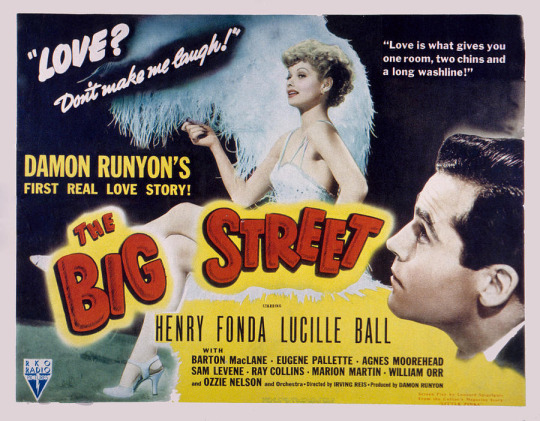
Producer: Damon Runyon
Director: Irving Reis
Screenplay: Leonard Spigelgass, based on the short story “Little Pinks” by Damon Runyon, first published in Collier’s magazine.
Dance Staging: Chester Hale
Gowns: Renie
Miss Ball’s Dancing Costume: Freddy Wittop
Miss Ball’s Make-Up: Perc Westmore
The film is sometimes referred to as Damon Runyon’s The Big Street.
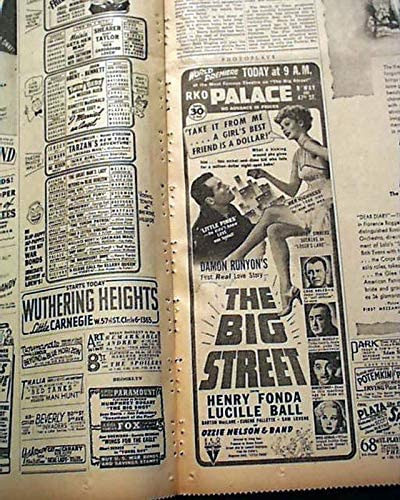
The film premiered in New York City at the RKO Palace on August 13, 1942. That same day Disney’s long-awaited Bambi opened at Radio City Music Hall. At the Capitol, Orson Welles’ The Magnificent Ambersons, also starring Agnes Moorehead and Gil Perkins, continued its run. Nearby, at the Albee, a second-run cinema, Top Hat (1935) starring Ginger Rogers and Lucille Ball was playing. The Big Street opened nationally September 4, 1942.
“Love is something that gets you one room, two chins, and three kids.” ~ Gloria Lyons (Lucille Ball)
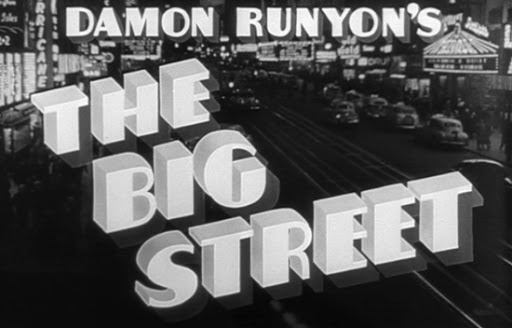
PRINCIPAL CAST
Lucille Ball (Gloria Lyons aka ‘Her Highness’) was born on August 6, 1911 in Jamestown, New York. She began her screen career in 1933 and was known in Hollywood as ‘Queen of the B’s’ due to her many appearances in ‘B’ movies. With Richard Denning, she starred in a radio program titled “My Favorite Husband” which eventually led to the creation of “I Love Lucy,” a television situation comedy in which she co-starred with her real-life husband, Latin bandleader Desi Arnaz. The program was phenomenally successful, allowing the couple to purchase what was once RKO Studios, re-naming it Desilu. When the show ended in 1960 (in an hour-long format known as “The Lucy-Desi Comedy Hour”) so did Lucy and Desi’s marriage. In 1962, hoping to keep Desilu financially solvent, Lucy returned to the sitcom format with “The Lucy Show,” which lasted six seasons. She followed that with a similar sitcom “Here’s Lucy” co-starring with her real-life children, Lucie and Desi Jr., as well as Gale Gordon, who had joined the cast of “The Lucy Show” during season two. Before her death in 1989, Lucy made one more attempt at a sitcom with “Life With Lucy,” also with Gordon.
Gloria’s singing voice was provided by Martha Mears, who also did Ball’s singing in DuBarry Was a Lady (1944).
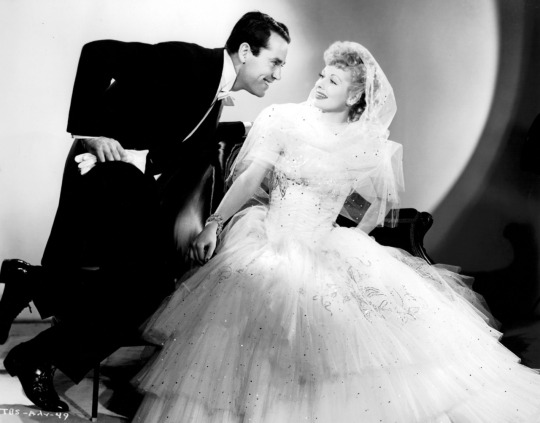
Henry Fonda (Augustus Pinkerton II aka ‘Little Pinks’) first worked with Lucille Ball in the 1935 film I Dream Too Much. When Lucille Ball first got to Hollywood, the two actually briefly dated. They collaborated on the TV special “The Good Years” (1962) and the film Yours, Mine and Ours (1968). During the 1970s, Fonda and Ball often turned up on the same awards and tribute shows. Fonda was nominated for three Oscars, winning in 1982 for On Golden Pond. He also won an honorary Oscar in 1981. Fonda died in 1982 at age 77.
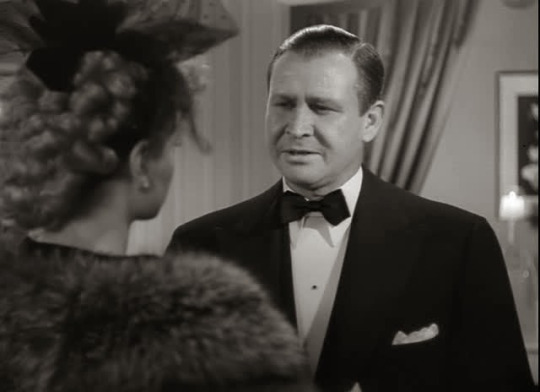
Barton MacLane (Case Ables) was seen in the film The Maltese Falcon (1941) but is probably best remembered for his final role, the blustery General Peterson on “I Dream of Jeannie” (1965-69).
“A fat man’s always listening to love stories, but he’s never go any to tell.” ~ Nicely Nicely Johnson
Eugene Pallette (Nicely Nicely Johnson, The Greatest Eater Alive) was seen as Friar Tuck in Robin Hood (1938) and in Mr. Smith Goes To Washington (1939).
The character of Nicely Nicely Johnson was played by Stubby Kaye, who reprised the role he played on Broadway, in the film version of Runyon’s Guys and Dolls (1955). He was so named because his usual reply to the question “How are you doing?” was typically “Nicely nicely, thank you!”
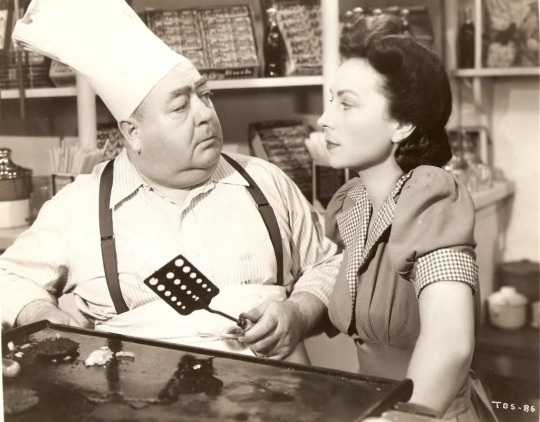
Agnes Moorehead (Violette Shumberg) was a classically trained performer who collaborated with Orson Welles on Citizen Kane (1941) and The Magnificent Ambersons (1942). She is best remembered as Samantha’s exotic mother Endora on the TV series “Bewitched” (1964-72).
Violette weighs 100 pounds, four ounces.
“She has a very large capacity for groceries.” ~ Pinks (about Violette)

Sam Levene (Horsethief) originated the role of Nathan Detroit in the Broadway stage musical of Runyon’s Guys and Dolls. Singing great Frank Sinatra played Nathan Detroit in the movie version in 1955.
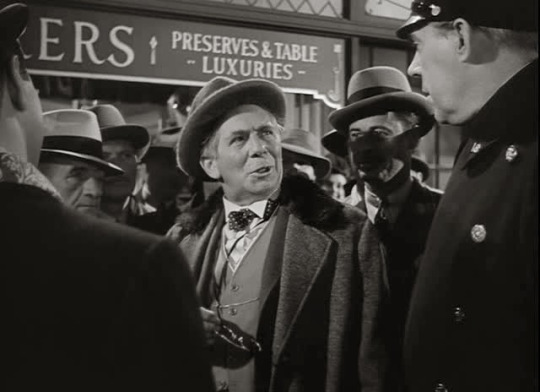
Ray Collins (Professor B) also collaborated with Orson Welles on Citizen Kane (1941) and The Magnificent Ambersons (1942), along with Agnes Moorehead. He is best remembered for playing Lieutenant Tragg on “Perry Mason” from 1957 to 1965.
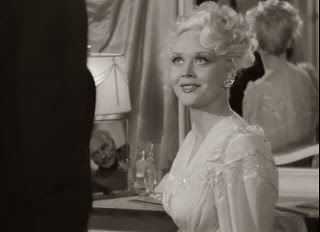
Marion Martin (Mimi Venus) would also be seen with Lucille Ball in Abbott and Costello in Hollywood (1945). Although she was often cast as a brassy stripper, showgirl or tough gun moll, off screen she was known to be extremely shy and retiring.
“That dame is a lump of mud!” ~Gloria (about Mimi)

William Orr (Decatur Reed) was an actor turned executive. As the head of WB Television for nine years, he was executive producer of the studio's early forays into the medium, helping to put ABC on the prime-time map with a steady staple of westerns and detective shows. In 1959 he received a Golden Globe for his contributions to television.
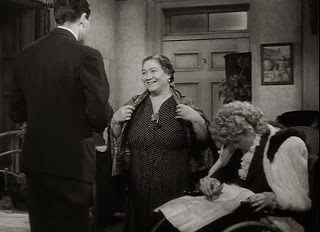
Vera Gordon (Mrs. Lefkowitz) emigrated with her family from Russia when she was seven years old. She became involved in the theatre and was active in silent films and early talkies. She had previously appeared with Lucille Ball in 1938′s Having Wonderful Time.

George Cleveland (Col. Venus) makes his fourth film appearance with Lucille Ball. In 1949 they also did Miss Grant Takes Richmond. He is best remembered for playing Gramps on “Lassie” (1954-57).

Ozzie Nelson (Himself) was considered the pre-eminent TV dad of the 1950s thanks to his successful family sitcom “The Adventures of Ozzie and Harriet” (1952-66). Before TV fame, he was a bandleader with his wife Harriet the lead singer. Nelson later appeared on several talk shows with Lucille Ball.
UNCREDITED CAST (with connections to Lucille Ball)
Baby (Gloria’s Pekingese Dog)

Louise Beavers (Ruby, Gloria’s Maid) went on to appear in three more films with Lucille Ball: DuBarry Was a Lady (1943), Lover Come Back (1946), and The Facts of Life (1960).
Charles Cane (McCarty, Holland Tunnel Policeman) also appeared with Lucille Ball in The Dark Corner (1946) and as one of the theatre patrons at “Over The Teacups” in “Ethel’s Birthday” (1954) which also featured Big Street extras Bess Flowers, James Conaty, Sam Harris, and Harold Miller.
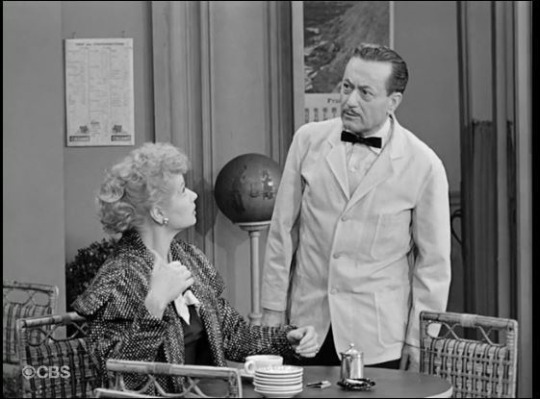
Jack Chefe was seen as a Paris waiter in “Lucy Meets Charles Boyer” (ILL S5;E19) and played a bellhop in “Lucy and John Wayne” (ILL S5;E2) and had also appeared in five films with Lucille Ball, including playing a waiter in Forever, Darling. Of Chefe’s 358 film roles, 165 were waiters!
James Conaty (Nightclub Patron) was also seen with Lucille in I Dreamed Too Much (1935), Lured (1947), and The Long Long Trailer (1953). He was one of the theatre patrons at “Over The Teacups” in “Ethel’s Birthday” (1954) which also featured Big Street extras Bess Flowers, Charles Cane, Sam Harris, and Harold Miller.
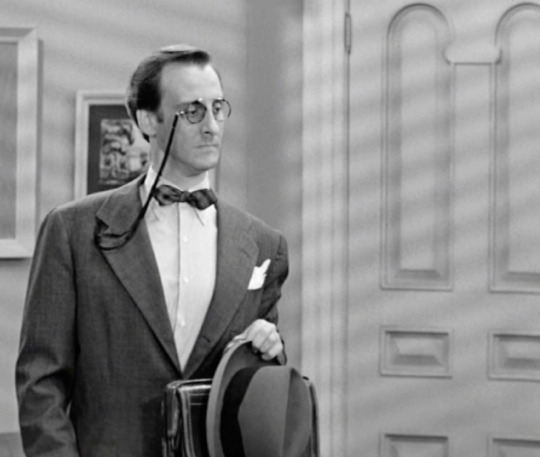
Hans Conried (Waiter) played Harry Martin in “Redecorating” (ILL S2;E8) and Percy Livermore in “Lucy Hires an English Tutor” (ILL S2;E13), both in 1952. He also did two episodes of “The Lucy Show,” both as her music tutor Dr. Gitterman in 1963.
Pedro de Cordoba (Doctor) was also seen with Lucille Ball in Five Came Back (1939).
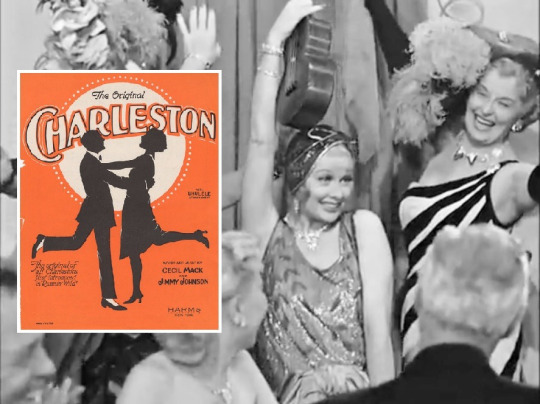
Helen Dickson (Florida Club Patron) had appeared with Lucille Ball in Carnival (1935) and Two Smart People (1946). She was one of the aging flapper showgirls in “Ricky Loses His Voice” (ILL S2;E9) in 1952.
Jimmy Dime (Truck Driver / Stunts) was seen with Lucille Ball in 1951′s The Magic Carpet. He did a half dozen episodes as a background players on Desilu’s “The Untouchables” (1959-61).
Eddie Dunn (Mulvaney) was also part of Ziegfeld Follies (1945) featuring Lucille Ball.
Jay Eaton (Late Night New York Nightclub Patron) did a total of nine films with Lucille Ball between 1934 and 1949, including her other Damon Runyon film Sorrowful Jones (1949).
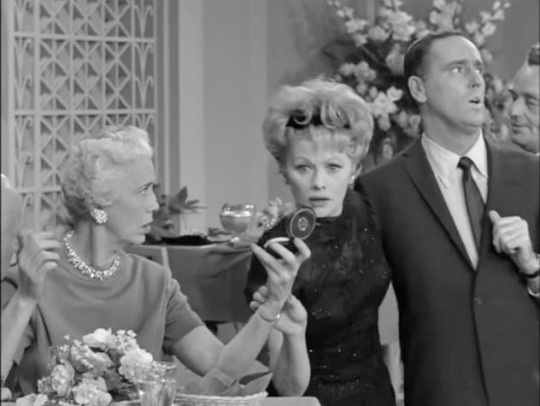
Bess Flowers (Florida Nightclub Patron) aka 'Queen of the Extras’ made numerous uncredited background appearances on both “I Love Lucy” and “The Lucy Show.” She holds the record of the most film collaborations with Lucille Ball: 17.
Karen X. Gaylord (Florida Club Patron) was also part of Ziegfeld Follies (1945) featuring Lucille Ball.
Charlie Hall (Caviar Waiter) also did Kid Millions with Lucille Ball and went on to do four more films with her until 1942.
William Halligan (Detective) was also with Lucille Ball in 1940′s You Can’t Fool Your Wife.
Art Hamburger (Joe Duffle, Eating Contest Opponent) makes his final of three screen appearances. He became an associate director. This is his only time working with Lucille Ball.
Joe Duffle is from Boston and weighs 337 and a half pounds. There is some irony that Nicely Nicely (then Violette’s) eating contest opponent is actually named Hamburger.
Mary Halsey (Showgirl) also did Seven Days Leave with Lucille Ball in 1942.
Sam Harris (Passerby on Florida Boardwalk) was in the background of a dozen Lucille Ball films, as well as being seen on “I Love Lucy,” “The Lucy-Desi Comedy Hour” and “The Lucy Show.” He was one of the theatre patrons at “Over The Teacups” in “Ethel’s Birthday” (1954) which also featured Big Street extras Bess Flowers, Charles Cane, James Conaty, and Harold Miller.
Jack Herrick (Mindy’s Customer) was also seen with Lucille Ball in The Bowery (1933).
John Indrisano (Mug at Mindy's) was also seen with Lucille Ball in The Facts of Life (1960).
Tiny Jones (Small Friendly Neighbor) was seen with Lucille Ball in A Girl, A Guy, and a Gob (1934) and Five Came Back (1939).
Donald Kerr (Pete the Passer) appeared in eight films with Lucille Ball between 1936 and 1954.
Wilbur Mack (Florida Club Patron) appeared in three more films with Lucille Ball: Thousands Cheer (1943), Ziegfeld Follies (1945), and Lured (1947).
George Magrill (Mug at Mindy's / Stunts) appeared with Lucille Ball in ten films between 1933 and 1949.
Richard Martin also did Seven Days Leave with Lucille Ball in 1942
Tony Merlo (Mug at Mindy's) was also seen with Lucille Ball in Dance, Girl, Dance (1940) and Broadway Bill (1934).
John ‘Skins’ Miller (Truck Driver) was also with Lucille Ball in Fancy Pants (1950) and Sorrowful Jones (1949).
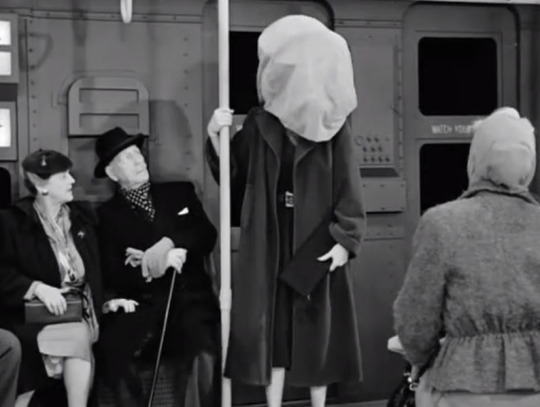
Harold Miller (Florida Club Patron) shares 13 film credits with Lucille Ball. He was one of the theatre patrons at “Over The Teacups” in “Ethel’s Birthday” (1954) which also featured Big Street extras Bess Flowers, Charles Cane, James Conaty, and Harold Miller. Harris would return for “Lucy and the Loving Cup” (S6;E12) as a subway strap hanger. He appeared in six episodes of “The Lucy Show,” the last one being as a party guest on “My Fair Lucy” (1965).
Bert Moorhouse (Florida Club Waiter) did nine films with Lucille Ball from 1933 to 1954.
Frank Moran (Mug at Mindy’s) makes his final of five film appearances with Lucille Ball.
George Noisome (Newsboy) also appeared with Lucille Ball in That’s Right, You’re Wrong (1939).
Barry Norton (Florida Club Patron) was also seen with Lucille Ball in Nana (1934) and Dance, Girl, Dance (1940).
Frank O’Connor (Police Captain at Holland Tunnel) did nine films with Lucille Ball from 1933 to 1946.
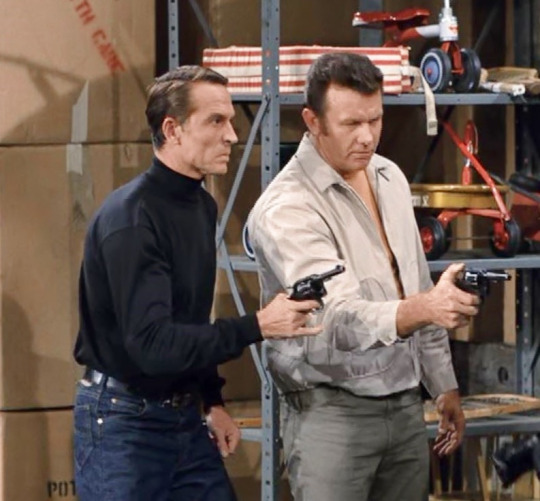
Gil Perkins (Mug / Stunts) was aboard the train when Lucy and Ricky headed home from California in “The Great Train Robbery” (ILL S5;E5). He was seen in The Fuller Brush Girl (1950) with Lucille Ball. He made one appearance on “Here’s Lucy” (above right) in 1970.
Bob Perry (Toupee, Associate of Ables / Stunts) was also seen with Lucille Ball in Stage Door (1937) and Joy of Living (1938).
Ralph Peters (Florist) was also with Lucille Ball in Sorrowful Jones (1949).
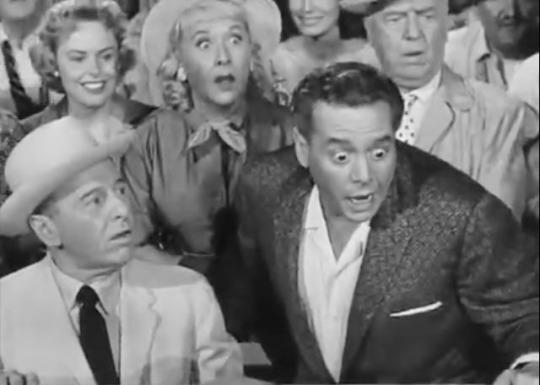
Addison Richards (Dr. Mitchell) played the American Consul in “Lucy Goes To Mexico” (LDCH 1959) as well as three other films with Lucille Ball.
Dewey Robinson (Truck Driver) did five other films with Lucille Ball.
Shimen Ruskin (Waiter Captain at Florida Club) was previously seen with Lucille Ball in Having Wonderful Time (1938) but is best remembered as Mordcha in the film Fiddler on the Roof (1971).
Hector V. Sarno (Friendly Neighbor) was also with Lucille Ball in Muss ‘em Up (1936).
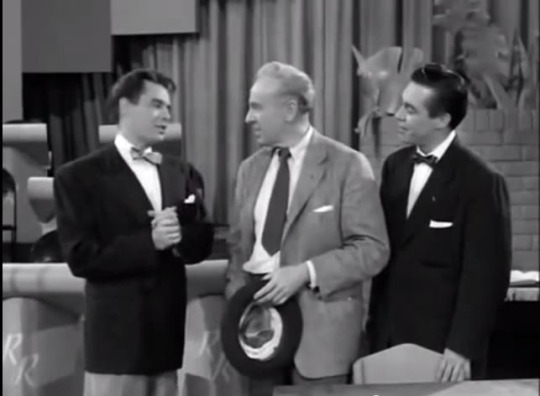
Harry Shannon (Florida Doctor) was seen with Lucille Ball and Desi Arnaz in Too Many Girls (1940). He played Jim White (above center), photographer in “Men Are Messy” (ILL S1;E8) in 1951. He is probably best remembered as the father of Rose (Rosalind Russell) in Gypsy (1962).
Walter Soderling (Doctor at Mindy’s) was with Lucille Ball in Easy To Wed (1946).
Mary Stuart (Showgirl) was also seen with Lucille Ball in Seven Days Leave (1942). She is best remembered for her four decade run as Mary on “Search for Tomorrow”.
Elliott Sullivan (Tramp) was also in That’s Right, You’re Wrong (1939) and Next Time I Marry (1938) with Lucille Ball.
Harry Wilson (Fethington) did four other films with Lucille Ball between 1934 and 1950. He was also an extra on Desilu’s “Untouchables” (1959-62).
Marie Windsor (Florida Club Patron) was also in Critic’s Choice (1963) with Lucille Ball.
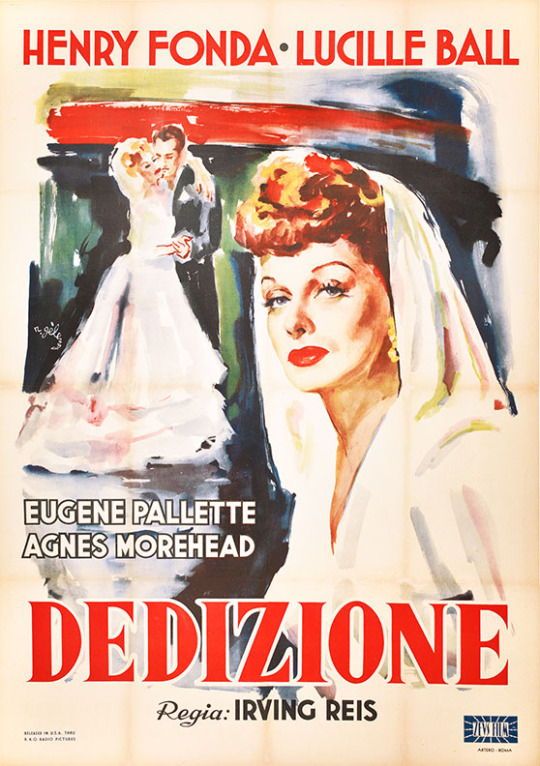
BIG STREET OPENING
"Loser's Lane - the sidewalk in front of Mindy's Restaurant on Broadway - is not as high-toned a trading center as Wall Street, but the brokers are a lot more colorful. Generally they prefer to put their money on a prizefight or horse race, but when the action slows, anything can happen and it usually does. Tonight, for example, the citizens of the Lane are discussing the latest contest in their usual quiet way..."
BIG STREET TRIVIA
The Big Street was a nickname for Broadway, where this movie's plot starts, and where all Runyon's stories take place. The film opens at West 50th and Broadway in New York City, with the marquee of the Capitol Theatre in the background.
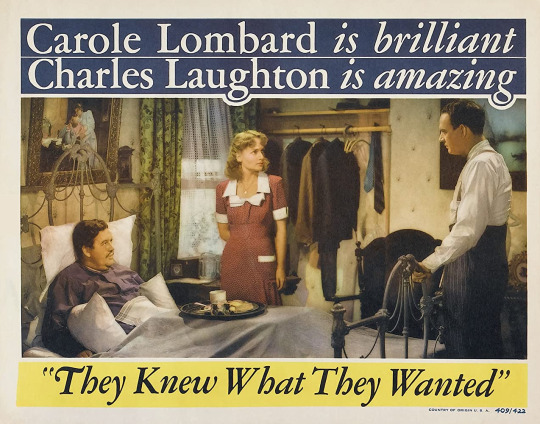
Damon Runyon originally wanted to cast Charles Laughton and Carole Lombard in the lead roles, but neither one was interested in the project. The two had previously paired on White Women (1933) and They Knew What They Wanted (1940), Lombard suggested the producer consider her friend Lucille Ball and, despite pressure by RKO to hire a better-known actress, Runyon offered her the role. Unaccustomed to playing series roles, Lucille asked advice from Laughton on how to approach such a difficult part. Laughton told her not to hold back: “If you are going to play a bitch, play a bitch!”
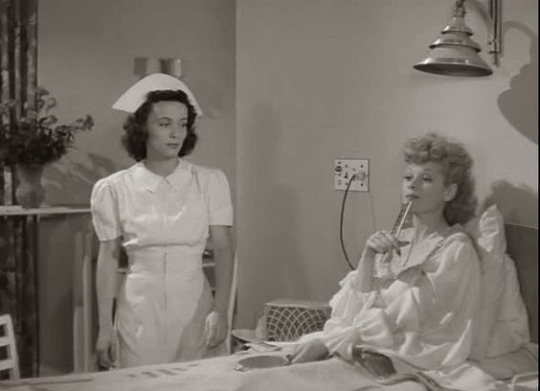
Ball later recalled that at the time she was cast, "nothing much seemed to be happening for me at the studio. My $1000 weekly paycheck came regularly, but I was still a regular among the Bs."
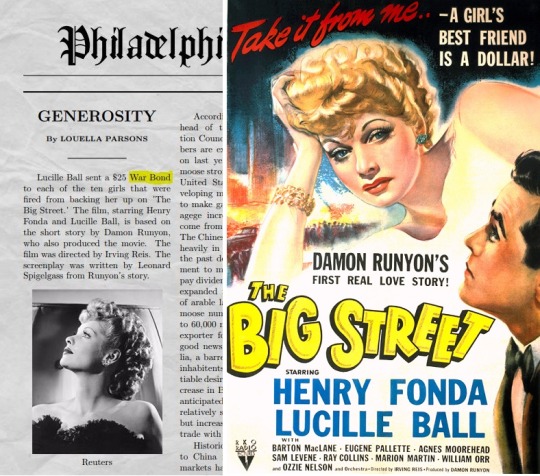
Philadelphia Daily News ~ June 6, 1942
Reports that Lucille Ball sent a $25 War Bond to each of the ten girls that were fired from backing her up on “The Big Street”.
During filming, Lucy’s new husband Desi Arnaz felt so insecure about leaving Lucy and Fonda alone together that he’d often pop by the set to keep an eye on them. His paranoia so exasperated director Irving Reis that he finally banned him from the set.
This was Lucille Ball’s favorite of her nearly 80 films. She felt her performance was unjustly ignored by the Academy.
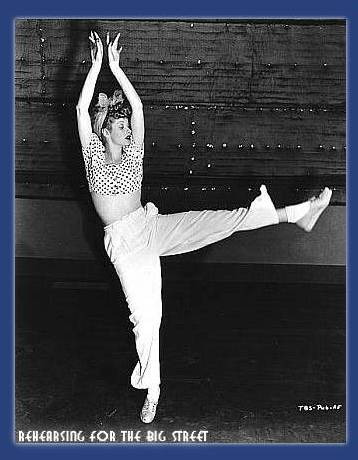
The vocals for "Who Knows?" by Harry Revel and Mort Greene, performed by Gloria in Case's Manhattan club, were provided by Martha Mears. The character later reprises the song with Ozzie Nelson and his orchestra in the Miami nightspot.
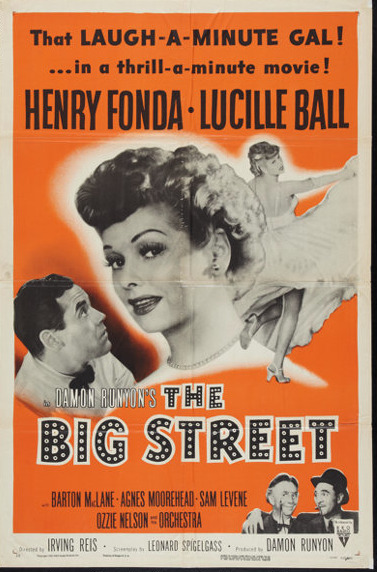
The film was re-released in 1955, at the height of Lucille Ball’s television success. Although Fonda remains first billed, Ball’s photo clearly indicates that she is the drawing card.
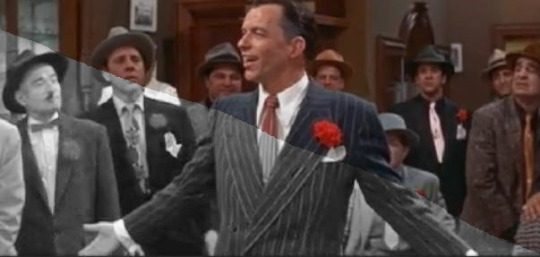
Damon Runyon also created the source material for the hit Broadway musical Guys and Dolls (1950), which starred Robert Alda, who went on to make several appearances on “The Lucy Show.” The two stories share the character of Nicely Nicely Johnson. When the film version was made by MGM in 1955, Lucy and Desi were also under contract to the studio. A brief clip of the film was inserted into the middle of an episode of “I Love Lucy” called “Lucy and the Dummy” (S5;E3), although the clip was removed after its initial airing. Further, when Lucille Ball first came to Hollywood, before becoming a contract player at RKO, she worked for Sam Goldwyn as one of the Goldwyn Girls. In Guys and Dolls, the Hot Box Girls are played by the Goldwyn Girls.
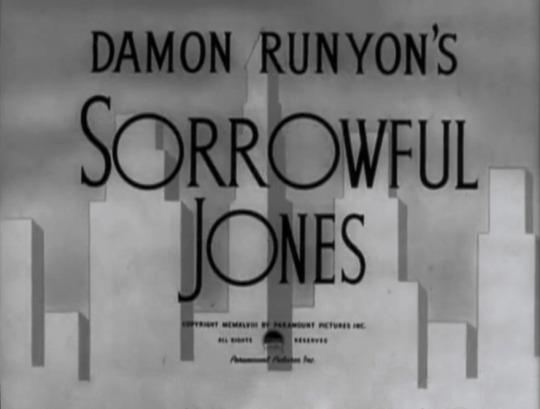
In 1949, Lucille Ball starred in another film based on a Damon Runyon story, Sorrowful Jones, a remake of the 1934 Shirley Temple film, Little Miss Marker.
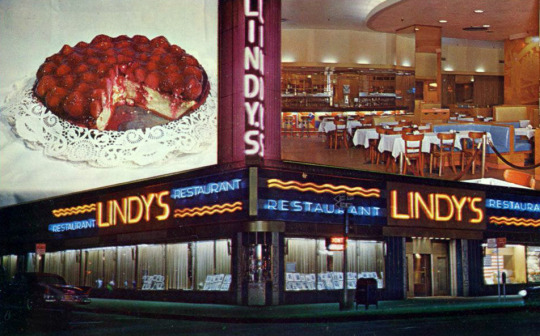
Damon Runyon was a big fan of Lindy’s, a Manhattan restaurant famous for their cheesecake, and wrote the eatery into his books as Mindy's. The musical Guys and Dolls, based on Runyon's writings, immortalizes Lindy's in one of its songs. In “Ricky’s Contract” (ILL S4;E10), Lucy tells Fred and Ethel that Ricky took his entire band to Lindy’s to celebrate learning that he had been offered a movie contract.
In The Big Street, a sympathetic Pinks decides to take Gloria to Florida to recuperate - by pushing her wheelchair the entire way - starting with the Holland Tunnel! Although Lucy and Fonda never left Hollywood, the locations are achieved by rear projection and establishing footage.
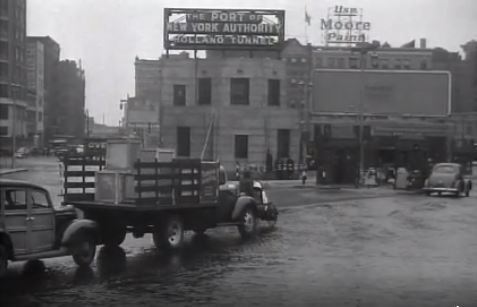
The Holland Tunnel figures into “I Love Lucy,” not once - but twice. In “The Marriage License” (ILL S ), after finding out that her marriage license may be invalid, Lucy goes on a twelve hour walk to East Orange, New Jersey. “How I ever got through the Holland Tunnel, I don’t know.”

The Holland Tunnel will be mentioned again three years later in “Lucy Learns to Drive” (ILL S4;E11). Reportedly, she tried to make a u-turn in the Holland Tunnel resulting in traffic being tied up to East Orange, New Jersey.
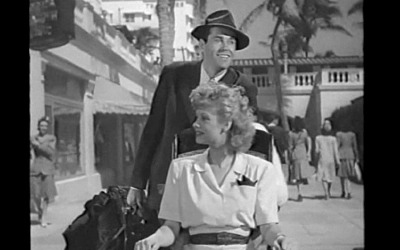
Action is also set in Miami Beach, Florida. Pinks and Gloria hitchhike there to visit with Nicely Nicely and Violette who are operating a night spot there.
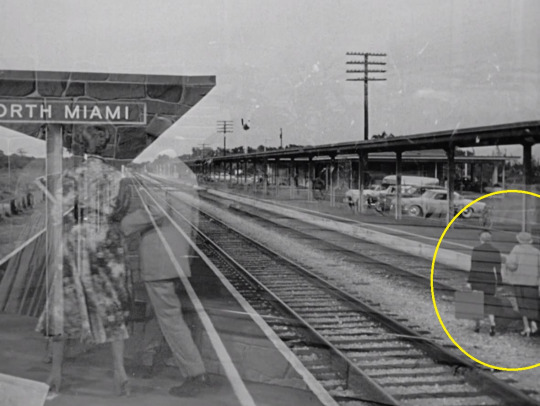
In “Off To Florida” (ILL S6;E6), Lucy and Ethel also hitchhike to Miami Beach Florida after being left on the side of the road by their ride share, a suspected hatchet murderess. They arrive at the North Miami train station covered in chicken feathers from riding in the back of a poultry truck.
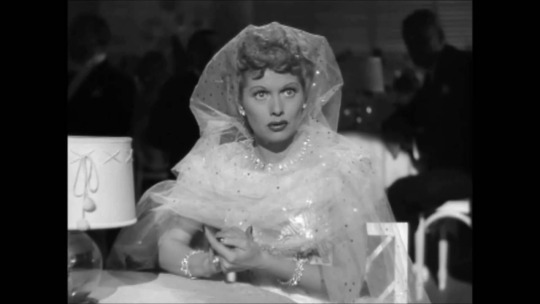
Doting Pinks has a pet name for haughty Gloria: 'Your Highness'. In Florida, her friends conspire to get people to come and hear her sing by fibbing that she is the Princess of Corolia, a fictional place.

In “The Publicity Agent” (ILL S1;E31), Lucy conspires to get Ricky more publicity by pretending to be a fawning fan of royal blood: ‘The Maharincess of Franistan’!
FAST FORWARD!
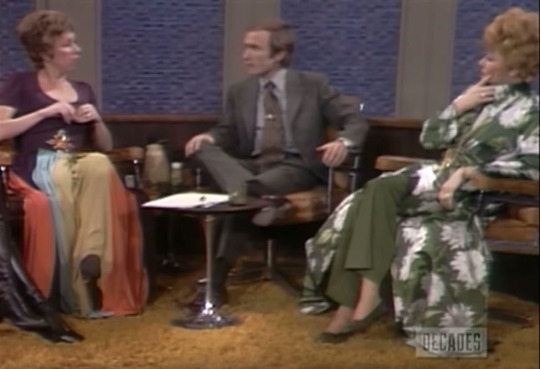
On a 1971 episode of “The Dick Cavett Show" with guests Lucille Ball, Carol Burnett, and Lucie Arnaz, Lucie compliments her mother's dramatic performance in the film.
The film is referenced in the television film Lucy & Desi: Before the Laughter (1991)
A poster for the film is on Lucy’s dressing room wall in Lucy, a 2003 TV movie.
The Big Street turns up in the TV listings in the low budget film Hollywood Mouth (2008) starring Joe Bologna.
A clip from the film is featured in a montage during “AFI Life Achievement Award: A Tribute to Henry Fonda” a 1978 special attended by Lucille Ball.
Henry Fonda: The Man and His Movies (1982) contains dressing room and dance floor scenes with Lucille Ball.
The Emmy-winning documentary Lucy and Desi: A Home Movie (1993) features a brief clip from the movie.
When Cher is TCM Guest Programmer in 2011, she selects The Big Street as one of her films to be aired.
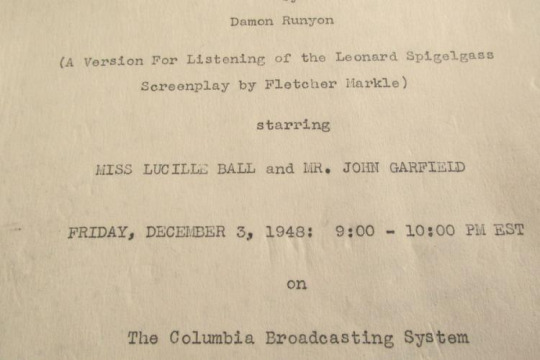
In December 1948, Lucille Ball reprised her role on radio with John Garfield taking the role of Pinks.
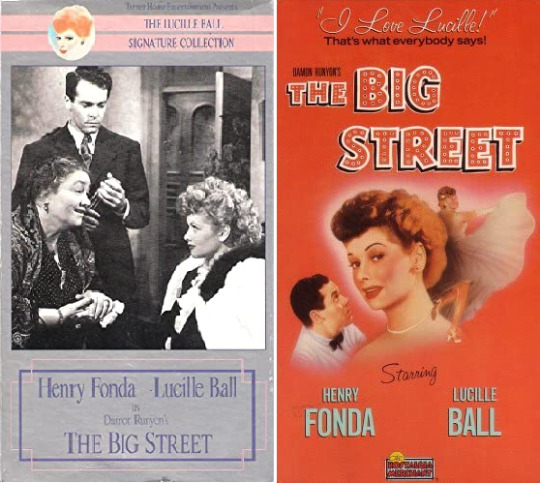
The Big Street on VHS.
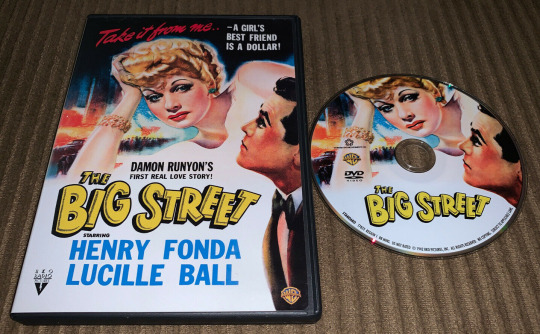
The Big Street is available on DVD from Warner Home Video. It is also part of the Lucille Ball Collection DVD, which also includes Dance, Girl, Dance, DuBarry Was A Lady, Critic’s Choice, and Mame.
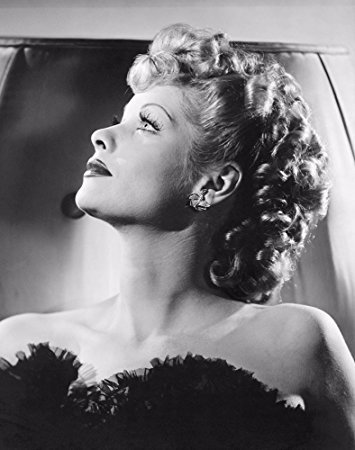
14 notes
·
View notes
Text
[Transcript] Season 2, Episode 4. Acting, Direction, Editing, Screenplay Nominations - Academy Awards 2021
The Academy Awards 2021 are here! Who's up for Best Acting, Best Supporting Actor, Direction, Film Editing, and Screenplay? Who do the Stereo Geeks think should win? We have so many thoughts about this year's Oscars, we can't even pick our favourites. Who do you think should win these categories?
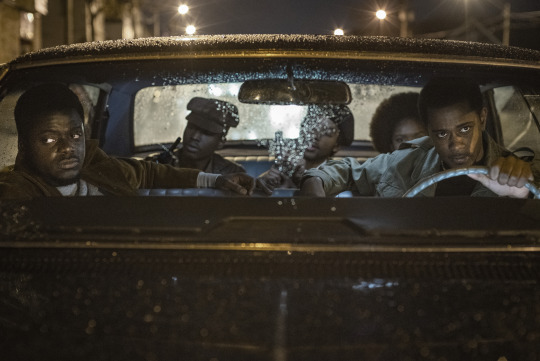
(L-r) DANIEL KALUUYA as Chairman Fred Hampton, ASHTON SANDERS as Jimmy Palmer, ALGEE SMITH as Jake Winters, DOMINIQUE THORNE as Judy Harmon and LAKEITH STANFIELD as Bill O’Neal in Warner Bros. Pictures’ “JUDAS AND THE BLACK MESSIAH,” a Warner Bros. Pictures release.
Copyright: © 2021 Warner Bros. Entertainment Inc. All Rights Reserved
[Continuum by Audionautix plays]
Ron: Welcome to a new Stereo Geeks Special where we continue our coverage of the Oscars 2021. I'm Ron.
Mon: And I'm Mon.
Ron: Let's talk about the acting categories. Lead role (Male). We have Riz Ahmed for Sound of Metal. Chadwick Boseman, Ma Rainey’s Black Bottom. Anthony Hopkins for The Father. Gary Oldman, Mank. And Steven Yeun, Minari. Your pick?
Mon: Chadwick.
Ron: My pick, as well. I think this is the year for Chadwick.
Mon: Chadwick’s performance in the Ma Rainey film was compelling, outstanding. It's a real shame that he has not been here to bask in the recognition that he's got. He has swept most of the awards in this category. I'm really hoping that the Oscars don't let down his family. He deserves it.
Ron: Chadwick’s performance is a really strong point for the film. It's full of nuance, and really powerful storytelling. And I think the performance Chadwick put in was, in hindsight, made more powerful because of what we know he was actually going through. If you just look at the performance, it does really stand out. There are so many layers to his character, and that can only come out through a powerful acting performance. I feel like Chadwick could have won this category even if it wasn't a posthumous award.
Mon: I think so too. There's a lot of layers to this character, and he really gave it his all. It would have been outstanding irrespective of the year that this film came out, irrespective of the year that this performance was recognized.
Ron: I feel like it's also high time that Chadwick was recognized for his acting.
Mon: I mean, he's been good in everything that he's performed in. The fact that it has to be Ma Rainey’s Black Bottom, it has to be a posthumous recognition, that's kinda sad. But he was always good. The legacy of his acting is gonna continue for a long time.
Ron: Absolutely. Talking about the other performances in this category, there are some hits and misses.
Mon: Yeah. I feel like with Gary Oldman in Mank, it’s probably one that we all expected. It's probably also the least exciting.
Ron: I felt like when I was watching Mank, I was watching Gary Oldman play a different version of his Winston Churchill.
Mon: Right? I felt the same way!
Ron: Okay, so it wasn't just me.
Mon: No, it wasn't, man. That was surprising to me because I feel like Gary Oldman is the kind of person who, when he plays a character, he really adds in so many different layers to it, gives each one a unique take, and this one just felt like, copy-paste.
Ron: Yeah, totally.
Mon: I don't think it helps that Mank, in general, is an underwhelming experience. And with the role, as well, I feel like we’ve seen, not only Gary Oldman do it before, but we've seen this kind of role before. The only thing I'll say is that it's not very obviously Oscar-baity, but it's exactly the kind that the Academy likes.
Ron: I actually think this is very obviously Oscar-baity.
Mon: Oh okay.
Ron: Yeah, totally. This is the exact kind of role that the Oscars love. This difficult man who is larger than life, who inspires and cuts down at the same time, that's exactly what the Oscars love. And that's why I actually hated Mank.
Mon: Yeah.
Ron: Because we have seen this character for aeons, there's nothing new here.
Mon: Yeah, absolutely, it's just change the setting, change the saturation point.
Ron: Absolutely. I would happily have swapped out Gary Oldman for Kingsley Ben-Adir in One Night in Miami.
Mon: That one still hurts me.
Ron: I just don't understand how he’s not in this list.
Mon: He's not in this list at all! That's what annoys me.
Ron: One Night in Miami has not got the noms that it deserves. And it's just driving me crazy.
Mon: The other performance which is definitely Oscar-baity is Anthony Hopkins in The Father.
Ron: Same problem that I had with Gary Oldman. Even in the huge, long career that Anthony Hopkins has had, this is not a good performance!
Mon: Right. There was only one scene where I felt like he'd kind of gone outside his comfort zone. There's this scene where he's meeting his caretaker for the first time, and he's sort of trying to impress her, and there's this natural vivacity that he brings, which I don't think I've seen in Anthony Hopkins, ever. And I love that.
Ron: Yes.
Mon: And then it's completely ruined by that last scene. The acting in the last scene is so Oscar-baity. It is so ‘I am doing this so that I can definitely take home the little gold statue’. And it was the one scene that I hated so much because it was so put-on, it was so artificial.
Ron: But I felt like that about the whole movie. I felt, when I was watching this movie, that I was watching Anthony Hopkins.
Mon: Yeah, no, I agree with you on that. I agree with you, completely. And that's a problem because it didn't feel like a performance because it felt like he wasn't doing anything different. And I'm really disappointed because we know this guy can be better.
Ron: This is Anthony Hopkins.
Mon: I know! He puts in his all in a Marvel film. That's how good this guy is, and this film just feels like it's trying too hard and not reaching.
Ron: The play that The Father is based on, the performance was done by Frank Langella. And when I watched this, I was like, oh my god, Frank Langella would have been amazing in this.
Mon: That is so funny considering which role Frank Langella actually did play in the movies that have been nominated in this Academy Awards. Honestly, you could have put in a lot of veteran, white, old actors from Hollywood, they would have played that role the exact same way. Which is why I don't think it deserves a nomination or an award.
Ron: Yeah, agreed. Steven Yeun, Minari.
Mon: I think this was a surprise because a lot of people hadn't seen this film, And he's really known for being in The Walking Dead. You don't expect him to be nominated for the Oscars, but here he is.
Ron: It's such an understated performance. Like throughout the movie I could see myself in him. Which is why I'm really glad that he's got nominated because his Jacob is us.
Mon: Yeah, he's this foolhardy, obstinate kind of guy, but he's just so wistful, and I think I really like that because he's trying so hard, and he really believes in himself and in his dream. And you get all of that in Steven Yeun, just the way he carries himself, just the small little expressions that he makes. He doesn't even have to talk much, it's just him.
Ron: What I really loved about Steven Yeun’s performance was the scene where he is being a ‘dad’. And you know dads, they will be themselves, and then suddenly they will go into dad-mode. Where they’re like, you know what, something has happened and I need to be a ‘dad’ right now. And he is so, so good in that scene. And I was like, oh my god, stop being such a ‘dad’!
Mon: Exactly! Because the dad is putting on the performance of being a ‘dad’, and Steven Yeun is doing an excellent job of being that dad who's trying to be a ‘dad’. It's too good.
Ron: And that's why I'm really happy that he's been nominated because this is what acting is supposed to be.
Mon: It's supposed to be understated but also feel real.
Ron: In any other year, he would have been the top favorite in this category.
Mon: Yeah, I think so too.
Ron: It's just a really good performance.
Mon: Right. And to round it all off is Riz Ahmed from Sound of Metal. This is another very understated performance. There's nothing huge and flashy. It’s really just somebody who is coping with the circumstance that he cannot envisage. And he's really struggling, because his whole life, literally, his whole life, is going to change. It's really hard to rate this performance because it's so natural. It's so effortless. If you haven't seen Riz Ahmed in other stuff, you would think this is just him being him, but there are, of course, like differences to who he probably is as a person.
But I think the recognition of this award really goes to the fact that he put in so much work to make this role look as effortless as it does. He learned how to play the drums, he learned ASL, and both of those, he just does it so naturally in the film. And the performance would have been completely derailed had he not put in that effort of all those months, it would not have been a good performance.
Like when he’s drumming, like the first scene is him drumming, and you can see that it's him. It's not like in the shadows, it's not from the back, it's not like a stunt double. Nope, it's him. And you wouldn't connect with this character if you didn't see him front and center, with those drumsticks, banging on the drums, really like, into that music.
And even with the ASL. It's his language, and that's how you're supposed to feel because that is how the character is going to communicate. And I feel like it's such an important aspect that not only did he learn it, but now he's very keen on people learning how to sign because it is such a valuable language to learn. It was so good. It was so understated. It's hard for me to even say that he actually acted but, I mean we know he did. But’s it’s just so good, so natural.
Ron: I would compare Riz Ahmed’s acting in Sound of Metal to Natalie Portman in Black Swan. That ballet performance and how it made Nina was only possible because she'd done the work of learning ballet. That's the same thing here. The only reason why we believe everything that this character is doing and going through and evolving into is because Riz Ahmed put in all that effort. It comes across as so natural that you don't think you're actually watching an actor; you're watching a person. That's what great acting is.
Again, along with Steven Yeun, any other year, Riz Ahmed definitely would have won this category. But this year, it belongs to Chadwick Boseman. He should 100% get it. What a performance to leave as his legacy.
So, moving on to the ladies. We have Viola Davis from Ma Rainey’s Black Bottom. Andra Day from The United States vs Billie Holiday. Vanessa Kirby, Pieces of a Woman. Frances McDormand from Nomadland. And Carey Mulligan for Promising Young Woman.
This is a slightly harder category I would say. From the other award shows, it seems that Andra Day might be the front runner here. Unfortunately, we couldn't get to see this movie. Apparently The United States vs Billie Holiday is not a good movie. I read some reviews and it seems to be very exploitative, rather than anything else? And it's literally coasting on Andra Day’s performance.
Mon: Apparently, she sang some of the songs in it?
Ron: Yes.
Mon: I'm excited for any newbie to get awards. And when I say newbie, I mean somebody who's getting recognition for the first time at a big award show like this. I would love to have seen her performance just to rate it against these other very powerful performances. Let's see how that turns out.
My personal favorite, of course, is Viola Davis. She has my whole heart. How performance as Ma Rainey was stunning.
Ron: From that opening scene in the tent, you forget that you're watching Viola Davis. Ma Rainey was such a personality, and the way Viola Davis just embodies that. This is a woman who, when she walks into a room, everybody stands aside so she can walk through.
Mon: Yeah. One of the things that I really like about films being on Netflix is that we do have the after-film show or the after-film interviews. And for Ma Rainey’s Black Bottom, they talked about bringing this film to life. It's a play and now it's film, and the research that they did, and they learned about this personality who we hadn’t heard about. And how Viola Davis and the makeup artists and the costume artists, they really tried to embody the way she looked in real life. Because with Ma Rainey, you know she's singing for a long time, it’s sweltering heat, that why she looks very greasy. Her makeup is running, but she's got this power and she doesn't care about the glamour, you know, she's got a voice, she is using that, and that's what's entertaining, and that's what's grasping the entire crowd. Viola Davis and her entire team, they really wanted to capture that, which is what they do. They do such a great job. Ma Rainey doesn't have to look like the quintessential, glamorous, polished artist that we’re so used to seeing, because she's working hard. She's got a job to do. You don't have time for all this stuff, so I really love that. And I'm pointing this out mostly because there was a little bit of backlash because of how Ma Rainey looks in the movie.
Ron: Oh really.
Mon: Yeah, there were some people saying, oh, why does she have to look so tired and sweaty. Well, that was kind of the point, so that's why I'm pointing it out. It was a deliberate, intentional effort made by the creators for this film. And Viola Davis does an excellent job of encapsulating that presence and that feeling. I really love how you have this character, based on a real person, of course, but you have this character in an era where Black people really struggled to make their voices heard, get anything that they deserved. She's like the exact opposite. And I love how this film turns the tables on that. And it’s only possible because you have somebody with that presence of Viola Davis. I would love her to win this. I don't know if she will. Maybe somebody newer, like Andra Day, deserves it more. But yeah, I've got my heart set.
Ron: You haven't seen Pieces of a Woman, but I did. I think Vanessa Kirby does the job that she has to in this film. I just think that compared to everybody else on this list, I don't get it. We were talking about how Steven Yeun’s acting in Minari was very understated. Vanessa Kirby does the same thing and Pieces of a Woman but her understatedness is so understated that there is no emotion. And I don't think it's her fault. I think it's because of the direction that she was given as an actor.
Pieces of a Woman was not as good a film as I heard that it was, which was surprising to me. I don't expect histrionics all the time, but most of the time, I was like nothing is happening on the screen, and that just did not make sense to me because the writer of the film based this story on what happened to her. And her husband was actually the director of this film. I feel like they weren't on the same page, or something got lost in translation between screenplay and direction.
I think Kirby did a really good job maybe in the first like 30-35 minutes, and then after that, she was probably told just, you know, hold it back, hold it back, hold the emotion back, and she ended up doing that really well, but the final product ended up being bland. And that might also be because they tried to stuff in other bits into a story that didn't need it. What ended up happening was that her performance was overridden by other elements.
We both feel that Yeri Han from Minari should definitely have been nominated.
Mon: Yeri Han plays the wife character in Minari; she plays Monica. She could have easily been a flat character, the long-suffering wife who just does what her husband wants, who somehow survives for her kids, but she is so much more. You can see this person trying desperately to be the supportive glue of this family. You can see this person trying to strive for her own dreams, for her own ambitions, and keep it together. And it's all because of how well Yeri Han, again in an understated fashion, just carries this character. And it is a shame, a complete and utter shame, that she did not get picked as one of the nominations.
Ron: I found myself comparing Yeri Han and Vanessa Kirby so much when I was watching these two movies, and it really made me wonder what the criteria is for the Oscars to nominate people. Both of these are very understated roles, but Yeri Han the way she emotes an entire dialogue without saying a word. That's what I wanted from Vanessa Kirby. I did not get that. And there were these moments in Minari where I was like, this is how I would react. And that's exactly how she reacted. And I was like, oh man, that's the first time that's ever happened! How does that performance not get nominated.
Mon: Yeah, I'm really disappointed.
Ron: I think the problem is that we are very used to the ‘wife’ in films. Yeri Han took that and turned it into a role. And I think part of the reason why Steven Yeun has been nominated, not just on the strength of his own performance, but on the strength of Yeri Han’s. Because had she been terrible, nobody would have noticed what was happening with Steven Yeun. It's the same thing that I see with Killing Eve. The only reason why we keep focusing on how good Jodie Comer is, is because Sandra Oh is brilliant. But she never gets nominated, it's always Jodie Comer. I really, really wanted to love Vanessa Kirby's performance. I read so much about how much work she did. It just didn't come across to me.
So, moving on. Frances McDormand, Nomadland. Understated, but the right kind of understated.
Mon: The thing with Frances McDormand is that she's so effortless and natural in her roles that sometimes you think that's exactly who she is as a person. But no, she's acting, and I love that about these roles that she takes. And especially the one that she plays in Nomadland, I think, had she gone melodramatic or larger than life or the other opposite like super-emotional or something, we would not have believed this character and we would not have enjoyed the journey that we were on with her. It's the fact that she's very put-together, but she's also trying very hard to hold it together, and that comes across throughout in every scene. That's what makes it so powerful. That's what makes it so natural and immersive to watch, and it's no wonder that she's been nominated.
Ron: Yeah, I think if Frances McDormand hadn’t been nominated for Nomadland, that would have been a travesty. Again, talking about Pieces of a Woman, you can see how important direction can be for an actor. Because Frances McDormand’s understatedness could have become super-bland, had she not had the director paving her path. And that's why we get a really, really powerful performance in this film. I mean, she pretty much carries the whole thing. She could have a really good chance of winning this.
Mon: Yeah, I think so too.
Ron: So on the opposite end of the spectrum, we have Carey Mulligan’s Promising Young Woman. This is a very different kind of performance, just in this category. She feels like this person that you don't want to hang out with for a multitude of reasons. I think we’ve seen Carey Mulligan in quite a few films, so this performance does stand out because it's very different from what she usually does. She's kind of like preppy, and peppy. That's not what you expect. She does a really good job, but there's also like so much tension in this one, which she manages to carry very, very well.
Mon: What I like about this film is that it throws you into the middle of this story. There's no preface, and it's important because the story structure is quite a novelty, and I like that. And because we're thrown into the middle of it, we learn more about her character throughout the film, which makes her performance even more captivating. Why is this person who is young and desirable, and honestly, should have the world at her feet, going around with such a sad frame of mind? Why is she carrying herself in this terribly dejected fashion? Well, we find out.
I would say that this performance isn't as understated as some of the others in both these categories. It definitely has its moment where somebody could have gone completely over the top, but it never does. Because a) the writing doesn't allow for it and, b) the role wouldn't work if we were on either spectrum of super-gleeful or super-emotional. It's really somebody who is carrying a hurt inside her that she cannot fix, and you really feel that.
The funny thing about this film is that you’re left feeling so sad by the end of it, because you really understand this kind of, almost this kind of depression, that this character is facing, and you really feel it through her performance. It's a surprisingly captivating performance despite not being the quintessential Oscar-baity kind of thing. I'm not sure she's gonna win though.
Ron: I wonder whether the Oscars will do something completely different and be like, in light of #MeToo, we're just going to give it to this film.
Mon: I didn’t think of that. It could be.
Ron: Like, it says a lot about why #MeToo even exists. So, who knows? I think this is a very tough category. Let's see what happens.
Mon: Yeah.
Ron: So, moving on to the supporting roles. For the men, we have Sacha Baron Cohen for The Trial of the Chicago Seven. Daniel Kaluuya for Judas and the Black Messiah. Leslie Odom Jr for One Night in Miami. Paul Raci from Sound of Metal. And bizarrely, LaKeith Stanfield for Judas and the Black Messiah, even though he's the lead role.
Mon: Yeah, I'm a bit surprised, as well.
Ron: Apparently, they did put his name forward for the lead role and for some reason the Oscars put him and Daniel Kaluuya in the same category.
Mon: Listen, people who have limited screen time have sometimes been in the lead role category, other people, who are pretty much carrying a film have ended up in the supporting category. I've never understood the Oscars and what the criteria for these things are. It's literally like Tic Tac Toe sometimes. I'm actually really disappointed that both Daniel and LaKeith are in the same category, because they are so, so strong. They really deserve to have been not competing against each other, and definitely should have been frontrunners in their own categories. I mean Kaluuya is brilliant, he's always brilliant.
Ron: He is particularly good as Fred Hampton. I was just like, wow this is insane.
Mon: Like, you feel the emotional core of the burden that he's carrying, but you're also like a little bit inspired, maybe even a little bit scared, by the power of his performance and the power of his stage presence. I feel like he was really passionate about this role, but he doesn't go over the top with it. I'm sure he did a lot of research on Fred Hampton and how he carried himself. But it doesn't come across as this very manufactured or artificial kind of performance. And it definitely doesn't feel like some kind of weird, reverential take on this character. Because sometimes, that's also a problem, especially when you're embodying somebody who was a real personality and a very important personality. Sometimes you feel like you should only look at the good things. No one was perfect. And so, you should always approach those people as human beings first, but also respect the legacy that they've left. And I think he does a good job with that.
Ron: Well the thing is that Daniel Kaluuya actually spent time with Fred Hampton’s wife to find out what his personality was from her perspective. Of course, there were tapes and things that he watched so that he could actually get the physicality of the character, and that's why I think that he is a frontrunner in this category. Because we've seen Daniel Kaluuya in a lot of things and the way he plays this person, you forget that it is Daniel Kaluuya. Like, he's done the kind of research that allows him to become a person without actually showing us that he's acting it.
Mon: Listen, I'm never going to forgive the Academy for ignoring his excellent performance in Widows. He was so good in that film. I don't know why this role made me think of him in Widows, but I think it's that intensity? He's brought a very similar kind of intensity and I'm glad this one has been recognized at least. I really hope it does walk off with the award because, yeah, this is too good.
Ron: Absolutely, I agree with that. LaKeith is the lead in this film. I still can’t understand what the Academy is thinking. He is so good in this performance. He is this tortured young man who is just taking it one day at a time because he has no clue what to do. He gets into one scrape after the other. He thinks he has an out, and it's not.
Mon: His character is between a rock and a hard place, and LaKeith plays that to the tee. Like you can really feel it, his desperation to be normal, his desperation to fit in, his desperation to get out, and you just really feel it.
Ron: The thing is that it's very difficult to play a role like this because a lot of people just think of him as the bad guy. But there are so many layers to even bad guys. And LaKeith does it really well. Like there are times when there are emotions on his face, and I'm just like, he's just told us so much. If he was nominated for this role any other year, he would have won this. But I really feel like it's going to be done Daniel Kaluuya’s year.
Mon: Yeah. I hope so, as compared to most of the others.
Ron: Let’s talk about Paul Raci in Sound of Metal.
Mon: This was a surprise, yeah?
Ron: It was. He has a very understated role. He kind of plays like a mentor, and it's almost easy for you to forget that this is a person acting a role in a film. But then there’s this one scene, which was so quietly done. I can imagine that same scene in movies being full of histrionics, and gestures, loud voices…
Mon: Standing up and waving!
Ron: And banging tables, right?
Mon: Right.
Ron: And Paul Raci just keeps the same tone, and it's like a dagger in your heart. I feel like the power of that scene, coupled with the fact that, up until that point we had seen the kind of person he was, that's the reason why he's in this category. Because the only reason why that scene works is because we spent all this time with him. We've heard his tone of voice, we know how he feels about the main character, about their community, and you know where he's coming from. So yeah, this is a surprise, but now when I think about it, it makes sense.
Mon: Agreed.
Ron: Sacha Baron Cohen in The Trial of the Chicago Seven.
Mon: I know that he did a lot of research on the person that he was playing.
Ron: Okay.
Mon: He was concerned about this character, because we’re talking about somebody who was a real-life personality and when we say personality, we mean a personality. I can see he’s trying. The problem is, I could not see anybody but Sasha Baron Cohen when I was watching the movie. It was Cohen with big hair. And that's all I could see. I could not see him being anybody else. Is it a direction problem, is it just the role? He was not the best thing that film had in it.
Compared to the other roles that we've seen, just in this category, it doesn't even reach like halfway there. And it's not for lack of trying. As I said, there's a lot of effort put into it. I've read that he did a lot of research, he watched the tapes, blah blah blah. He was concerned about it. His concerns were warranted.
Ron: I think that was my problem with this entire film. Everybody felt like they were acting. They were acting, very well, but they were acting. Just as you said, I couldn't get past the fact that I was watching Sacha Baron Cohen.
Mon: And especially when he's doing the stand up. It looks like it's Sacha Baron Cohen doing the stand-up and not Abbie Hoffman. And it's just such a problem.
Ron: It would be an unpleasant shock if he were to win.
Mon: I don't want him to win.
Ron: No.
Rounding off the category is Leslie Odom Jr. in One Night in Miami. Leslie Odom Jr plays Sam Cooke. I really liked his performance. I liked everybody’s performances in this movie. Everybody should have been nominated. This movie he should have been nominated. I’m angry that it wasn't but let's talk about Leslie Odom Jr.
Mon: That voice!
Ron: I know!
Mon: How can you argue when you have a voice like that?
Ron: Oh my gosh. He has such an amazing singing voice. And he uses it so well in this film.
Mon: That scene when he sings that song. We know this song, but still.
Ron: Oh my god.
Mon: And again, credit to the way the film is directed that it hits you so hard when he sings that song.
Ron: The Sam Cooke character that we get in this film, he's kind of bombarded with negativity. He's trying to do things a certain way, his friends don't quite agree with that, and you can understand where they're coming from, but you can also understand where he's coming from. We could have had the table-thumping, the standing up and making a statement. But what you get is the finger-pointing.
Mon: [laughs] And understated finger-pointing. Nobody raises their voices. And that's what I really liked about the performances in general. And, of course, it comes down to the direction, doesn't it? We could have had somebody who, because they're so passionate about their points of view, that they could have raised their voices, they could have been punching each other, hitting each other. There are a few moments like that, but they're also being civil because they are friends. And I think when you have that underlying foundation of the characters, then it changes how you come to that performance. And it really comes across in Odom Jr.
Ron: The other aspect of this film is that these people were not only real but they were pillars of the community. They changed the way America lived and breathed. That can get to your head. The fact that none of the performances were affected by that is testament to the actors. I think any of the actors could have easily been nominated. I'm happy that Leslie Odom Jr did get nominated because his performance relies so heavily on reacting to things around him, and it could have gone terribly wrong in another actor's hands. He manages to keep it together, and it ends up being so memorable. But I still think this category belongs to Daniel Kaluuya. Let's see what happens on the day, but that's what I think.
Mon: Agreed.
Ron: So, let's move on to Supporting Role (Female). We have Maria Bakalova from the sequel for Borat. Glenn Close in Hillbilly Elegy. Olivia Coleman in The Father. Amanda Seyfried in Mank. And Yuh-Jung Youn in Minari. I haven't seen two of the performances in this category so that's not going to help.
Mon: There's been a lot of love for Maria Bakalova. This is a comedic performance. The Oscars aren't huge on comedy, so that would be a surprise. Now with Glenn Close in Hillbilly Elegy, I have not seen this film, I have seen stills. She uglies it up, which means she's gonna win.
Ron: Really, you think so?
Mon: Yeah, absolutely. First of all, she's a veteran actor, she's already been nominated several times, she's a favorite among the Academy-goers. So, I'm just like this category is definitely gone.
Ron: I know the Academy really loves it when ladies ugly-up.
Mon: Yeah, because they don't give actual ugly ladies any roles. [laughs]
Ron: [laughs] Oh god, why is that so true?
Mon: Listen. This category is a tough one. You know why? Because I'm not convinced by most of these.
Ron: Yeah, this is true.
Mon: Olivia Colman? I mean come on, she just won for The Favorite, right? Okay, she's hamming it up. She's acting but it's really. Here, she's not doing much.
Ron: You see, this is my problem with everything to do with The Father. I did not feel like I was watching a person; I was watching Anthony Hopkins. I did not feel like I was watching his daughter; I felt like I was watching Olivia Coleman. How does that get nominated?
Mon: I don't have an answer to that. It's unconvincing.
Ron: And the same thing with Amanda Seyfried. Mank, anyway as a film, we had a lot of issues with it. I think Amanda Seyfried tried to do what she could with the role, but the entire time I was like, I'm watching Amanda Seyfried.
Mon: And also, it’s not something new, this kind of role, this kind of character. It's not something new. I think we just want something refreshing which, for the most part, the other categories have really captured. Seyfried in Mank is just…
Ron: Seyfried in Mank.
Mon: Yeah. I mean, I guess the only performance we’re really rooting for is Yuh-Jung Youn in Minari. Because she's so fun!
Ron: She is so great. I think it helps that the role is quite different. Like, you think of grandmothers in a particular kind of way, and she totally is not.
Mon: And that's the whole point. And that's what I really like because she sort of doubles down on being this unconventional grandmom, because ‘grandmom’ is not a category of humanity. She's a person.
Ron: I love how, when her grandchildren are like, what kind of grandmum are you, you can’t bake, you don't do this, you can’t do that and she's like, why does that make me not a grandmom? She just decides that she's going to be her version of a grandmum and if that means sitting down in front of the television and watching it, that's fine! But everybody just has to deal with it. I loved it! It was just such a natural and fun performance.
So, when things kinda go bad, you're so angry at the world, you're just like, please no, no, no, don't let this happen. She's such a wonderful person! And that's why I think she deserves to win because she got all my emotions going so much. As I said earlier, I am a sucker for a grandmum character, and she's so good. She put in an amazing performance that didn’t feel like a performance. I was like, this is my grandmum.
Mon: You’re right. Absolutely. Because how the grandmum is in the second half of the film as compared to the first half of the film, they're the same person, but you would not feel the impact of the second half, if you hadn't met her and gotten to know her in the first half. And again, that's down to the fact that we had this really powerful, but very natural, performance. It feels authentic, and that's the whole point of these awards, isn't it?
Ron: Yes.
Mon: It's to give it to the best people. Yuh-Jung Youn might just be the person.
Ron: She's our pick, for sure. I feel like Maria Bakalova just might win this.
Mon: Oh wow.
Ron: I think the Academy is trying to do things differently. They want to show that they're not, you know, staid, fuddy-duddies who only give serious films all the awards. So, they might be like, it's a comedy, let's give it to her. And also, there was all that stuff about Rudy Giuliani and stuff like that, which I think might just be a reason for them handing the award over to her.
Mon: Okay, that'd be really interesting to see.
Ron: Yeah. The two acting categories for ladies is really hard this time. I think the male categories are very obvious who the winner is. The ladies, no idea.
Mon: Don't prove us wrong.
Ron: Okay, so we just want to touch on directing and film editing. There is some overlap with the Best Picture category. I'm interested to hear your thoughts.
Mon: Honestly, I am so torn between Emerald Fennell and Chloe Zhao. This is the first year the Academy has given to women nominations for the directing category. Let's just remind you guys that this is the 93rd Academy Award. I think both those films are so accomplished, so different…
Ron: So necessary. Either one of them could win.
Mon: Yeah.
Ron: My concern is that because there are two ladies, they're going to be like, they're in a separate category, and the rest of the guys are in the category of their own.
Mon: And that's the default category, so we're actually going to only choose between the three of them. Yeah, I hope not. Because I feel like Chloe Zhao should get it simply because Nomadland actually deals with a topic that is very popular with American film goers, and she's given it a completely new veneer, which I like. So, maybe she is front runner for it.
Ron: I also feel like Nomadland is definitely very well accomplished. I say this because it's not a very easy film to make. They’re on the move; they’re showing these very different kinds of landscapes. We're also going into these very tight interiors. She managed to balance that out very well, while also giving the performances so much room to breathe.
For me my pick would actually be Nomadland.
Mon: Interesting.
Ron: Because Promising Young Woman, another very accomplished film. I think it has a very familiar narrative structure. There are some shots which, when I thought about later on, I was like, ‘it's interesting that she used that angle’, but Nomadland just feels very different.
Mon: The thing about Promising Young Woman, as excited as I am that it's been nominated for so many categories, especially in the directing category, it feels very commercial
Ron: Yes
Mon: And mainstream. Most of these Academy Award nominations are very artsy very indie, or at least they feel like that. So Promising Young Woman with the peppy vibe and the colors and stuff, I think might be too different for what the Academy really likes to think of as cinematic excellence.
Ron: That's a good point, and that might be a reason why it wins.
Mon: Oh, I hope so.
Ron: Yeah.
Mon: You know who I’m surprised is not on here—even though we're not the biggest fans of the film—The Father, directed by Florian Zeller. I am surprised Florian isn't here, you know why? Because, as I mentioned, cinematically, it has such brilliant technique that I'm surprised the Academy didn't recognize it. I mean one of the problems that we had with it was that it's so slick, which should have shoehorned it into this category, but it didn't.
Ron: But I think that's exactly what would have happened, it would have been shoehorned into this category. Because The Father didn't do anything that we haven't already seen a billion times before. I'm sorry, that's not a unique film at all. I'm glad it didn't get nominated.
Mon: I'm surprised that Minari has been nominated. Like Lee Isaac Chung, I would not have thought that he'd be here.
Ron: Why not?
Mon: Well, it’s such a personal narrative. It's just so small.
Ron: Yeah.
Mon: The Academy just love something that is larger than life, even when it's something to do with farming, you know. There's no KKK running after these people, so, like, how did this film even get noticed by the Academy. I'm surprised. I'm surprised it's in any category, but the direction I'm really surprised.
Ron: I'm trying to give the Academy the benefit of the doubt. Maybe they're realizing that they've been kind of in one direction this whole time. So we're getting to see people like Emerald Fennell and Chloe Zhao and Lee Isaac Chung actually get nominated for these amazing accomplishments.
Mon: And these varied films.
Ron: Exactly. I think that Minari actually works so well because the direction is really good. He keeps it small. He doesn't aim for something too huge. We just follow this family. And that's why the final product is so good.
One thing I've never understood about the Academy, ever since their changed the Best Picture nomination number to 10, I don't know why the director category hasn't followed suit. It doesn't make any sense to me. Having said that, I am so glad that it's Minari, Nomadland and Promising Young Woman that ended up in this category. They deserve it. As far as I'm concerned, this category is between these three. These are the most innovative films in this category.
Mon: Which is exactly why David Fincher for Mank will win.
Ron: Don’t say that.
Mon: I’m sorry but we know that Hollywood loves films about Hollywood; the Academy loves to recognize films about Hollywood. This is a passion project, it's about a very controversial, personal story that many Academy Award board members are going to feel like it resonates with them...
Ron: Because they were there at the same time.
Mon: You're probably not wrong. I don't actually have any hope for anybody else in this category, I'm sorry, it's true.
Ron: But even amongst David Fincher’s work, this is not a good film.
Mon: Yeah, but tell the Academy that.
Ron: It’s so… blah. The shots are so blah. Everything we see in Mank you've seen a million times before.
Mon: I agree with you. It feels like it’s trying to be of the time that it is portraying, but at the same time, it never looks like it. Just putting a black and white filter on your film, and using the same shots that Orson Welles would have used does not make your film innovative and new.
But we just have to resign ourselves to the truth. Fincher is considered an auteur. So, he's likely to win.
Ron: As far as I'm concerned, auteurs are basically people who do the same thing over and over again. And that's what Mank feels like. You know who I would have really loved to see in this category? Regina King. I was watching One Night in Miami and the entire time I was like, “why didn't this get nominated?” It's not just the shots. It's the way she portrayed the story to us. And this is her first time directing a feature film, it doesn't feel like it. Honestly, I feel like this was the year that you should have been nominating all these people. Why is David Fincher here? I just don't think even in David Fincher’s oeuvre, Mank is not his best work.
Mon: Yeah, the only thing is with One Night in Miami, it's technically very brilliant, especially for a first-time director, but it does feel like a first-time director’s work. There is a safety in how it is created.
That being said, at least it doesn't feel like a play, which is what it's based on. But compared to the others which are nominated, I can see why Regina King was overlooked. Though the film really should have made it to the Best Pictures noms, at least.
Ron: So, Another Round by Thomas Vinterberg. See, this is the thing; how has he been nominated for directing, but his movie was not deemed good enough to be nominated for Best Picture? What is the criteria? Honestly, I just don't understand what is happening!
Because when I watch this film, it's actually very uncomfortable to watch because there's so much shakey cam.
Mon: Oh!
Ron: And I was just like, I know you're trying to set the mood that there's a lot of drinking happening here, but it's just making me feel disoriented, so I'm not enjoying this experience. I don't think he was doing anything that different. In my opinion, it is between Minari, Nomadland and Promising Young Woman because those three are the ones that really stand out in this category. And as far as I'm concerned Minari and Nomadland actually do something completely different. They are the innovators. I'm hoping for Chloe Zhao to win because Nomadland really stood out to me.
Mon: Let's quickly go over editing. This is a tough category to really understand from a lay person's point of view.
Ron: Yeah.
Mon: Because when editing is done well, you will not notice it.
Ron: Which is making me question so many entries in this editing category. Because The Father has editing that is so obvious.
Mon: I agree with you on that.
Ron: I was like, oh look, here's a cut. Oh look, here's a camera change. How is this nominated for film editing? That way, again, Nomadland, edited by Chloe Zhao—who did pretty much everything in this film, oh my gosh, how did she do it—has such good editing, because you don't notice it.
Mon: Yeah, you are on this journey with this character. You feel the land that she is traversing, you get to know the characters that she is meeting.
Ron: You feel that claustrophobia in her trailer, and how it differs from everything that’s happening around her. It's just such good editing because you don't notice anything. It's just an experience.
Mon: Yeah, there's like this moment where Frances McDormand’s character is like a few yards away from her nearest neighbor, who's also in a van, and she sees her neighbor put up a flag. And we don't really understand the significance of that flag till a few scenes later when Frances McDormand needs help and she’s knocking on this person’s door, and her neighbor goes, “didn’t you see the sign?”. You you realize the flag is basically supposed to say do not disturb. And I think that's where editing and direction comes in, because anywhere else you would be told, it would be signposted that yes, this flag is going up because she does not want to be disturbed, go away now. But here it’s backwards, and it's important for us to feel that way because the character may not have known what the flag is about. And we're in her shoes. That's the whole point. And that again addresses why this film has got as many nominations as it has. And why probably it should win.
Ron: Absolutely.
We also have Promising Young Woman here. I think the editing here is pretty commercial, it's not very different. It serves the purpose of narrating the story. So, in that sense, it's pretty technically sound.
Mon: Well, I think there's one scene which has won it the film editing nomination. We can't talk about it but in the hands of any other director, especially a male director, we would have seen that scene in a completely different way.
Ron: I actually think there are two things that have made it, editing-wise, so powerful. And the reason why it's been nominated. And in that scene, I think a lot of directors would have chosen to maybe cut. But here, the director gave her actors so much leeway to play out the scene that the editing, you don't notice it.
Mon: On the basis of just that scene that you just mentioned, I feel like this film should definitely sweep this award.
Honestly, the power of that scene really comes across in the use of camera cuts, or the lack thereof.
Ron: Exactly. And that is actually one of the reasons why Promising Young Woman really works, because it knows when not to cut.
Sound of Metal.
Mon: I am truly surprised that it's in the film editing category. Are you?
Ron: I'm glad that it is, I think sound editing, it did a really great job, but I think it's really easy to focus on that aspect of the film, and forget that the actual film editing also makes the story and the sound more important. I'm going to compare it to Another Round where the editing is so jarring. And so obviously edited. I'm glad it's not in this category, but Sound of Metal doesn't do that. It moves the camera away and it cuts at certain points where the audience needs that extra information. I think the way it's edited works for this film, I don't think it's the kind of style that would work for everything else, but because it fits so well with this narrative, I think that's why it's been nominated.
Mon: Yeah, because I think with the film editing, as well as the sound editing, both of them combined, it helps you walk in the shoes of this character, which as you say, is only possible when it's a very personal, individual story like it is with Sound of Metal. I'm kind of glad it's got some technical noms. If nothing else, because we know it's a real long shot for the Best Picture award winner. It could get the technical awards.
What is the Trial of the Chicago 7 doing here?
Ron: I don't know.
Mon: I spent most of that film wondering where the sightlines were.
Ron: Yes.
Mon: Right?
Ron: Yeah.
Mon: There’s this scene where somebody is walking up a flag and the character is looking to the left, but the flag is in the center, and I'm like, “where are you standing?”
Ron: The sightlines weren’t the only problem. We have a chunk of this film taking place in a courtroom, and it felt like I was watching Law and Order. So what is the innovation here? Why has it been nominated?
You know what should have been nominated in both the directing and editing categories? Birds of Prey. Okay, look, we love this movie so we are a bit biased. But Cathy Yan did an amazing job. She should definitely have been in the directing category, and the editing the scene in Gotham PD, come on.
Mon: Well, there are two major reasons why Birds of Prey didn't get any nominations, though, I really feel like it should have. First of all, it's a very comic book-y film, and also structurally, the story is very nonlinear.
Ron: Let us put it out there that Suicide Squad won an Oscar.
Mon: I am currently speechless.
Ron: So, who do you think is going to win this? Honestly, I want Chloe Zhao to get everything.
Mon: Yeah, but I think The Father is going to win.
Ron: I think that would be a mistake.
Mon: It's going to happen.
Ron: So we're going to round off with the screenplay categories. In the adapted section we have the Borat sequel—please don’t make me say the whole name—The Father, Nomadland, One Night in Miami and The The White Tiger.
Mon: We haven't seen the Borat film so we cannot attest to its merits. This is a tough category.
Ron: Ok, so we have two films that are based on plays, The Father and One Night in Miami. I think that we’re both of the same mind that One Night in Miami is definitely superior as an adaptation of a play. The Father feels like a play on film. One Night in Miami feels like a film. So, if it's between those two, it should be One Night in Miami.
Mon: You're going to root for Nomadland, aren't you?
Ron: I am but I have to say, The The White Tiger was a really good adaptation. I thought that was a solid, solid screenplay. I'm actually really annoyed that it didn't get nominated in anything else. As far as I'm concerned, it should have been up for directing, it should have been up for Best Picture, it should have been up for Best Actor. How do these things not happen? I don't understand what the Academy does, really. Like, what is everybody sitting there doing?
Mon: Dude, the fact that a film based in India with Indian actors even got nominated for anything, is like a surprise—in a good way, I guess. It's a film that looks at the poverty and the caste system in India, without actually sensationalizing it or making it completely the norm. There are different kinds of Indians that you will meet in India, as we see in this film. And I'm just surprised that the Academy noticed that.
Ron: You know what irritates me? Slumdog Millionaire won everything, when it was a bad film. And it portrayed India in a really condescending light.
Mon: And considering it was based on a book which was hard-hitting, spoke about the issues that we face in India all the time, but had this sort of fun vibe to it, and Slumdog Millionaire was just an atrocity, as far as I'm concerned.
With The White Tiger, I was very resistant to watching it.
Ron: Me too.
Mon: But yes, while it does portray the abject poverty of sections of society—and it is a little bit scary how people on both sides can treat each other—it also has this updated 21st century mentality that we haven't seen in portrayals of India in Hollywood for a while.
Ron: This was a really good film. I am really irritated that it hasn't got the recognition that it has. I mean, Ava DuVernay was a producer on this, so… But what I loved about The White Tiger was that it didn't coast on the name Ava DuVernay. Everybody else put a lot of work into it.
Mon: And it also didn’t gratuitously show us, you know, the disgusting aspects of India. It also shows you the grandeur that is Delhi and Bangalore, while telling you that yes, there are people living in villages in absolute squalor.
Ron: But what I liked is that doesn't keep throwing that squalor in your face, because people live there. For heaven's sake, you can't just keep saying, “oh my god it's so disgusting”. No, no, this is how people live.
Mon: Respect that.
Ron: Exactly. So I'm irritated, but I really hope that it wins this category.
Mon: Yeah that would be nice, right?
Ron: Yes, I am rooting for Nomadland.
Mon: Why am I not surprised?
Ron: But I would happily let Ramin Bahrani win this for The White Tiger.
So, original screenplay. We have Judas and the Black Messiah, Minari, Promising Young Woman, Sound of Metal and Trial of the Chicago 7. One of these things is not like the others.
Mon: [Laughs]
Ron: I'm sorry, the fact that Aaron Sorkin continues to get recognized and nominated for his writing when he is a bad writer, just drives me up the wall.
Mon: It's sometimes hard to differentiate between entertaining writing, and good writing.
Ron: But is he even entertaining?
Mon: Some people find that banter entertaining.
Is this the subject matter that deserves this kind of banter, this kind of writing? No it doesn't. It requires a deft hand, it requires a respectful hand and we have mentioned this several times and we've talked about this, which is that it does not respect the horrible situation that the people in it were facing.
Ron: It should definitely not win this category.
Mon: It will win this category.
Ron: Oh gosh, your cynicism. I believe that the Academy is going to do things differently.
Mon: I'm a pragmatist and I don't believe that.
Ron: Parasite won last year. Parasite was the best film among all the nominees. There were a lot of other films that should have been nominated, we always are going to be angry about that, but Academy actually recognized how good Parasite was, and it gave it the awards that it deserved. Maybe, maybe, this is the change that we are seeing. And Trial of the Chicago 7, even though it's been nominated to make a certain group of people happy, it won't actually win.
Mon: Well, we will find out.
I think Judas and the Black Messiah has a really good chance here. I think partly because of Daniel Kaluuya’s performance and the fact that Best Picture should kind of belong to it. It just has a really strong story.
Mon: Yeah.
Ron: I know you had issues with the second act; I didn't have that. I feel like it managed to balance these really big, larger than life characters with a story that had you guessing. It was packed full of characters, like, it's very much the opposite of Sound of Metal and Minari which has very small pockets of characters. But Judas and the Black Messiah is much more sweeping, so many people and every single person matters, every single story within the story matters. And cohesively as a whole, the film works because the writing is so strong as well.
Mon: I 100% agree with you on that. I will say that when you Algee Smith men in a role, you give me more of him on screen.
Ron: [Laughing] Ok.
So, Minari.
Mon: I want this one to win.
Ron: Me too.
Mon: Because it's a very simple story. We discussed this when we talked about the film in the Best Picture category, there is a universality to the events of this film that reflects many of our journeys. And I think that's the power of this writing; you can kind of see yourself in different ways. You can see yourself in different characters from the kid to the grandma, right?
And I feel like sometimes the Academy does like these personal stories about the American Dream, which honestly Minari is doing in spades.
Ron: I also feel like the reason why Minari you could win this category is because, you know what I was saying about Pieces of a Woman and how it adds things to make it bigger than it really is. Minari never does that, it’s contained to this one family because even little things can seem big when it's your life and it's people who you love, and that's what a great story, that's what a great writer, does. So yeah, I think it might just win this category as well.
Mon: Well, I think it's funny that you mentioned that things are huge and important when it's somebody that you love, because that ties into Promising Young Woman.
Ron: I mean that entire film is about doing something for somebody that you love, and everything that they felt is amplified because of how you feel about them. But nobody else around you can even imagine it because it doesn't bother them. That person has nothing to do with them.
And I think that's why the writing in this film is quite strong, because it's through the lens of this one character. Of course, the performance that Carey Mulligan puts in does amplify just how terrible she is feeling, just how strong this loss is for her in comparison to how everybody else is actually reacting to it.
And it’s a really strong story because that tension, it’s not just well conveyed on the screen, it had to be there on the page.
It does help that the writing and directing is done by the same person. I think this year we've seen that quite a lot, even with Chloe Zhao, she did the producing, writing, editing, and directing for her film, Nomadland which is a really really accomplished, really powerful, cohesive and memorable product.
Nomadland is not the kind of movie that you and I would watch, and maybe not even enjoy it but this one, my god. And the same thing with Promising Young Woman, she wrote it, directed it, produced it, and you can see the final product.
Mon: It's the ability to translate exactly how you feel on the page to the screen. And I think so often you see that divide because the person who directs a movie, sometimes isn't in sync with the person who wrote it, and that really undercuts important subject matters.
Ron: This is my problem with Pieces of a Woman, and that's why Vanessa Kirby's performance, it's not that good. It just doesn't work because the people around her weren't working together, though I don't know why.
Mon: I'm partial to Promising Young Woman winning as well, because it's a topical issue, and it's well written, it's entertaining in a very scary fashion.
Ron: Exactly. I mean this is a suspense thriller about a topic that a lot of people have had to deal with, but it comes across as a film that is also entertaining, so it's actually a good one for this category.
So finally Sound of Metal.
Mon: This one surprised me.
Rob: The writing for Sound of Metal feels just like a person's story like they're going day by day. That can actually be really hard to write. Again like Minari, this doesn't try too hard, it doesn't go too far, it knows what its aim is, and it stays within that scope. I think the problem with things like The Trial of the Chicago Seven is that the scope was so huge that the final product is, well, it's just not very good, and it doesn't do justice to the characters, or the narrative.
Sound of Metal is exactly the opposite. It takes this one person, his journey, and it just runs with it. And the other thing is that, a lot of films feel like, you know, we shouldn’t be linear because that's cliched or it's been done. But Sound of Metal works so well because of its linear narrative; it doesn't keep going back and forth. You are taking this journey with this person. So yeah, I think it has a pretty good chance as well.
So, I think we want four of these films to win. [laughs] And we don’t care about Aaron Sorkin. I would say the Academy is trying. We have unexpected entries this year in the major categories, which is exciting. The diversity is there. There's room for so much more. But I think one of the biggest problems that the Academy has had this year is by trying to play it safe with certain choices. My hope is that the Academy voters will see the innovation of films like Judas and the Black Messiah, Minari, Promising Young Woman, Nomadland. Sound of Metal and really begin to usher in a whole different way of filmmaking, because we can't be something if we can't see it. We've seen it with Parasite, are we going to see it this year?
Who do you think should win these categories at the Academy Awards 2021? We'd love to hear from you.
You can find us on Twitter @Stereo_Geeks. Or send us an email [email protected]. We hope you enjoyed this episode. And see you next week!
Mon: The Stereo Geeks logo was created using Canva. The music for our podcast comes courtesy Audionautix.
[Continuum by Audionautix plays]
Transcription by Otter.ai, Ron, and Mon.
#chadwick boseman#judas and the black messiah#minari#promising young woman#nomadland#chloe zhao#frances mcdormand#steven yeun#daniel kaluuya#lakeith stanfield#the white tiger#sound of metal#emerald fennell#riz ahmed#ma rainey's black bottom#one night in miami#regina king#leslie odom jr#oscars#oscar 2021#academy awards#academy awards 2021#stereo geeks#podcast
1 note
·
View note
Text
The Sorting Hat (for Characters of Red, White & Royal Blue)
Alex Claremont-Diaz:
Gryffindor
Alex is the kind of guy who understands that there are risks that come with his actions but decides to push through anyway. While his penchant for intelligence gathering may be considered a bit Slytherin, most of his actions are less about ambition or self-preservation and more about doing what he feels is right or simply following his heart (and his emotions). I can see an argument for him being a Slytherin, but I think he is just a bit too bold with his choices for him to really fit the bill for the snake pit.
Henry Fox-Mountchristen-Windsor:
Slytherdor (or if I really have to choose, Gryffindor)
Henry is more careful about his actions and feels a connection and responsibility to continue traditions despite the fact that his identity conflicts with those traditions. He is far too bold to be a straight up Slytherin (who probably would have handled the whole situation a bit more quietly and cautiously), but he is ambitious and is concerned with keeping himself above water when the time comes. This is why I would argue that he is a mix of both Slytherin and Gryffindor, but he is too driven by emotion for my to give the Slytherin part of him much thought (which is why - of the two options - he would be a Gryffindor).
Ellen Claremont:
Slytherin
Ellen is VERY ambitious, and she puts ambition above most things. She tries to ensure that she will get through the storm without many dents. While she isn’t too interested in continuing with traditions (she is a pretty progressive politician) I still think she meets the criteria. I honestly think that some of her more Slytherin traits may get in the way of her position as Alex and June’s mother, but that isn’t the question here. She is still a good person who tries to do the right thing (which sometimes competes with her ambitions and sense of self-preservation). Ultimately, I think she’s a Slytherin through and through.
June Claremont-Diaz:
Gryffindor
June is a fighter through and through. She doesn’t like the path she’s on, so she throws herself head first into a new one. She is extremely bold and driven by heart and emotion (not a bad thing, but notable). She takes risks without knowing how she’ll make it through. June was willing to stray from what was expected of her in order to pursue what she believes will make her happy. Gryffindor. Through and through.
Nora Holleran:
Ravenclaw
Nora is eccentric and extremely smart. The fact that she is a human super computer should give away how she would sort. Her eccentricities are also characteristics of Ravenclaw House.
Beatrice Fox-Mountchristen-Windsor:
Ravenpuff (or if I had to choose, Ravenclaw)
Beatrice is both creative and extremely loyal, a perfect mix of Ravenclaw and Hufflepuff. She is willing to spend her time devoted to her passion for music and having fun in her own way, but when push comes to shove all of her passion is turned toward protecting her family and friends. She’s a bit over the top in her more private personal life (the life she lives for herself, her mistakes and her successful passions) but beyond loyal when it comes to those who are important to her. I feel that her desire to continue working on her music (despite the queen’s protestations) is what pushes her a bit more toward Ravenclaw, but her Hufflepuff side is extremely notable.
Philip Fox-Mountchristen-Windsor:
Slytherin
Philip isn’t all that prominent a character, but he is far more traditional than a majority of the characters in this book so I have to throw him in with Slytherin House. He is one of those bad examples for Slytherin that a majority of the House would want to disown for giving them all a bad name. Unfortunately, he doesn’t fit into any of the other houses...
Catherine Fox-Mountchristen-Windsor:
Hufflepuff
Catherine is driven by emotion, which led her to isolate herself from her family after her husband’s death. However, it is also this driving emotion that leads her to be fiercely loyal and protective of her family. I can’t sort her into Gryffindor as I doubt any Gryffindor would have let the queen inflict such injustice and pain on her [Catherine] and her family for so long, but her protectiveness and loyalty earns her a place in Hufflepuff.
Leo:
Hufflepuff
Leo doesn’t play too much of a role, but he is very clearly loyal to his wife. With what little information I could glean from the book about him, I would give him a seat at the Hufflepuff table.
Oscar Diaz:
Hufflepuff (although I could also say Slytherpuff)
Oscar is loyal to his friends (as seen with Luna) and family, and he is more than willing to protect them with whatever power he had in his possession. He is, however, quite ambitious (he’s a politician...), which is why I could also vouch for him as a Slytherpuff. The book does not focus overly much on his ambitious streak, so that is why I will simply put him down as Hufflepuff.
Raphael Luna:
Slytherdor (if I had to choose one, it would be Gryffindor)
Luna is quite courageous, but he does try his best to keep himself safe while he is being courageous. Without a doubt I think that he is more Gryffindor than Slytherin because he makes too many moves that would have placed him and his career in danger, but there is that underlying ambition and a hint of the desire to keep himself safe that gives that Gryffindor red a hint of Slytherin green. Though if someone were to claim him solely as a Gryffindor, I wouldn’t argue (much).
Percy “Pez” Okonjo:
Ravenclaw
Pez is wicked smart and quite... unique. I don’t think there is a place that would fit him better than Ravenclaw. He is creative, smart, and eccentric; he’d fit right in.
Amy Chen:
Slytherdor (and if I had to choose one, she would have to be a Gryffindor)
Amy is kick-ass, but there is just something about that aggression that screams Slytherin in the background of her bold as brass Gryffindor persona. She is a way too calculating to be a straight up Slytherin and I think there is too much of that Gryffindor attitude to make her a Slytherin. She made too many personal choices that would push her more red than green.
Cassius “Cash”:
Hufflepuff
Cash was more than willing to follow Alex to London and protect Alex’s secrets throughout the book to be anything but a Hufflepuff. He is a bit hard to place because there isn’t much in the book about his character, but I feel that he’d be at home in Hufflepuff.
Shaan Srivastava:
Slytherpuff (but if I had to choose, he’d be a Slytherin)
Shaan is hard to place because he doesn’t say all that much that comes from him personally. He is witness to Alex and Henry’s secret relationship, and he keeps their secret (Hufflepuff loyalty), but even the book says that he would only keep their secret for as long as it didn’t harm him or his career (Slytherin self-preservation). Truthfully, I think he only kept their secret for so long because it didn’t benefit him or his goals to tell anyone.
Zahra Bankston:
Ravenclaw
Zahra is smart, organized, and Hermione-like. She doesn’t really make too many moves that would be shows of personal courage (except for when she called Shaan’s personal number for Alex), but there are clear signs of intelligence and organization. She is driven and focused, so I feel she fits the mold for Ravenclaw.
The Queen:
Slytherin
She gives Slytherin a bad name. The queen hangs on to old, outdated tradition far too firmly and tries to save her own image by tearing down others. Unfortunately, her actions do fit with Slytherin House’s traditionalism and self-preservation. She is also outwardly cold but clearly driven by emotion which is kept reined in by her ability to make calculated moves.
++++++++++++++++++++++++++++++++++++++++++++++++++++
These are all based on personal opinion, and if you think that one of these characters should be sorted into a different Hogwarts house please respond to the post and let me know where they should have been sorted (and why). I adore RW&RB and I am always looking for people to gush to about the book, so if you have anything to say about the book, drop me a line. And if you haven’t read it, it’s worth picking up!
If you have another book, movie, TV show, etc. with characters that you would like me to try and sort, please let me know.
#slytherin#Gryffindor#hufflepuff#ravenclaw#hogwarts houses#red white and royal blue#the queen#princess catherine#philip#beatrice#henry x alex#henry#alex#june#nora#harry potter sorting#sorting hat#Harry Potter
30 notes
·
View notes
Text
Ranking : Spike Lee (1957 - present)
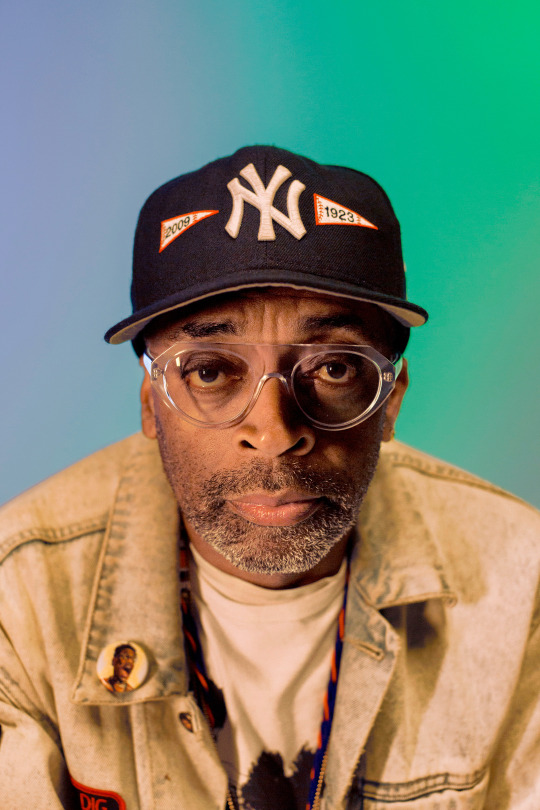
There have been countless directors whose careers have spanned my lifetime, but out of these countless masses, the one whom I can find the most in common ground with (as well as endless inspiration from) is Spike Lee. A New Yorker through and through, Lee went from a series of films that seamlessly blended hip-hop and old school Hollywood aesthetics, to personal films, to his take on the blockbuster, and currently, to the point where his canon has earned him artistic freedom and expression that many of his peers have not been able to achieve. He is the perfect bridge between the director-driven mindset of the 1970s and the cultural boundary-pushing films of the 1990s-forward. Not everything that he directed was a hit or a masterpiece, but this man has more iconic films under his belt that some directors have films to their name. That being said, it’s time to stir the pot and make an attempt at the monumental task that is ranking the films of Spike Lee.
I will only be including theatrically released feature films of Spike Lee that I have seen. His documentary work will be excluded, as well as his films I have missed or have yet to see. Here is a list of these films : Da 5 Bloods, Chi-Raq, Da Sweet Blood of Jesus, Joe’s Bed-Stuy Barbershop: We Cut Heads, 4 Little Girls, The Original Kings of Comedy, When the Levees Broke, A Huey P. Newton Story.
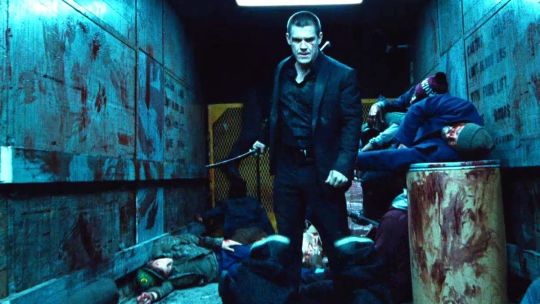
20. Oldboy (2013)
Every film that you make can’t be a winner. In the case of Lee’s attempt at remaking Oldboy, there were already two major strikes against it : a superior version of the film already existed, and that version was the middle film of a trilogy. I doubt that even a team of the most talented directors could have made a superior version of Oldboy that surpassed the original, but after 30 years of making films, it’s admirable that Lee would even attempt something so bold and seemingly insurmountable.

19. Red Hook Summer (2012)
When your film catalog covers three decades, there’s bound to be some overlap, be it stylistically or narratively. I’ve only seen Red Hook Summer once, but it was impossible for me to look at it subjectively, as it seemed to be a modern day mirror to another one of Lee’s explorations of New York adolescence. While this story is not a direct copy of a Spike Lee film that I will go into more detail on later, it does feel like the update equivalent that focuses on himself rather than the childhood of his sister. While an entertaining film from what I can remember, it sits behind a list of previous impressive achievements.
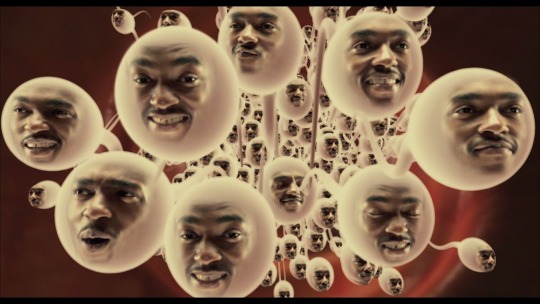
18. She Hate Me (2004)
Humor has been an element present in a number of Spike Lee films, but for my money’s worth, this film is the closest thing to an outright comedy that he ever made. Like a number of films on the back half of his career, he is touching upon important topics (sexuality and toxic masculinity, in this case), but these are topics that he has hit with more nuance and creativity in earlier films. This film did help transition Anthony Mackie into a leading man role, and he certainly took that opportunity and ran with it, so She Hate Me could be heralded for that alone. That being said, it was a great idea that slightly missed the mark, therefore placing it on the backend of the memorable films list for Lee.
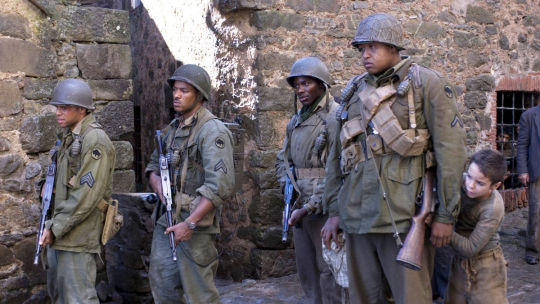
17. Miracle at St. Anna (2008)
This film had the potential to be a breakout resurgence for Spike Lee. He was coming hot off the heels of Inside Man, a perfect blend of Lee’s style and modern Hollywood fare, so having a period-piece war film seemed like a slam dunk. His cast was strong, while also being filled of relatively unknown young actors on the verge of becoming stars in their own right, but for whatever reason, this film failed to make a connection with the masses. While I do remember mostly enjoying my watch, I also remember feeling a bit underwhelmed by the ending, which in turn left me lacking a reason to revisit it. Maybe it’s a hidden gem that I haven’t seen enough times yet, but at this moment in time, its home is near the bottom of Lee’s impressive list of films.
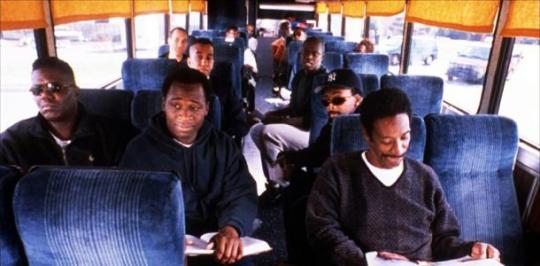
16. Get on the Bus (1996)
Many people’s eyes were opened to racial injustices during the COVID-19 pandemic, as several African-American men and women found themselves on the wrong end of violent acts from the police and other citizens in the midst of a ‘shelter-in-place’ era. Not only have these injustices been going on for my entire lifetime, but they’ve been a generational trauma for many African-Americans in the United States. When the Million Man March was announced in 1996, it was not surprising that Spike Lee took it as an opportunity to both document the march and build a narrative around it in which he could showcase a collection of actors he’d either featured in past films or would work with in future films. To my knowledge, this is one of maybe two or three films about the event, and it was certainly the film released in the closest proximity to it. For an independent, quick shoot, it definitely stands up, but in comparison to Lee’s other works that benefited from full crews and production schedules, it finds itself paling in comparison.
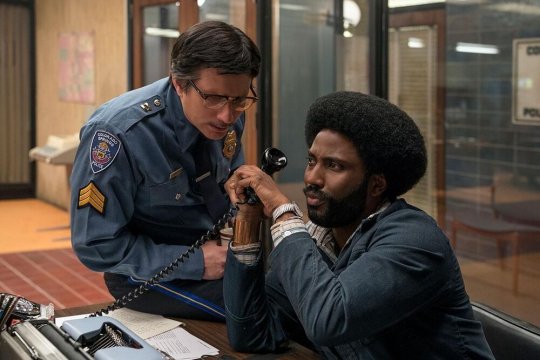
15. BlacKkKlansman (2018)
Despite the fact that this is the film that finally got Lee some sort of recognition at the Oscars, BlacKkKlansman was not quite the true return to form that many fans of Spike Lee expected. The film had moments of humor, compelling moments that directly focused on racial injustice and systematic oppression, and it pulled no punches while doing so. Like a handful of Lee’s other films, however, this one falls when compared to his other films that deal with similar subject matter. Adam Driver continued to show fans his expansive range, and Jasper Paakonen deserved INFINITELY more recognition than he got, but ultimately, this film checks all the ‘good’ boxes where it was expected to check the ‘great’ ones.
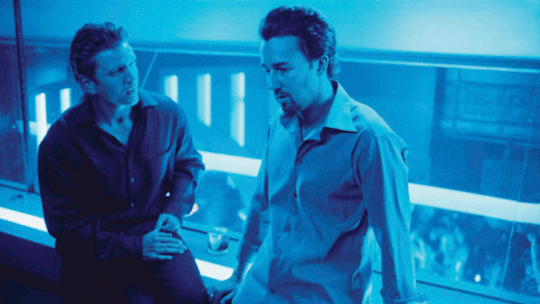
14. 25th Hour (2002)
As the year 2000 approached, Lee seemed to attempt and make a shift from films that specifically spoke on aspects of the African-American experience in favor of occasional films that reached a wider audience. While Summer of Sam would be considered the first foray into that realm, the true mark of this elevated sense of creative duty came in the form of 25th Hour. With the actors in tow, in tandem with the cinematography and skilled directing ability displayed in the film, one would expect a powerhouse movie, but ultimately, the expectations exceeded the narrative of this film. This one is entertaining, don’t get me wrong, but I personally did not find a connection with the story, meaning that the film was, at best, fun to watch.
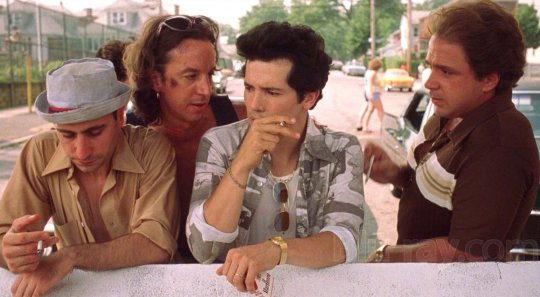
13. Summer of Sam (1999)
I’ve been a true-crime junkie since my early teenage years, and even the most casual of true-crime fans is more than likely familiar with David Berkowitz, also known to many as the Son of Sam. While Red Hook Summer did come out after Summer of Sam, it’d be hard to deny the fact that Summer of Sam is the last of Lee’s love letters to New York City. This was the film where Spike Lee stepped out of his comfort zone of the African-American experience, choosing instead to focus on more colloquial aspects of the American experience, and for my money’s worth, it was the start of an important shift for him. Despite being light on the Son of Sam action, the actors this film does focus on (and the story it chooses to tell) is a fresh look at a familiar era, and a crowning achievement that signaled new things for Spike Lee.
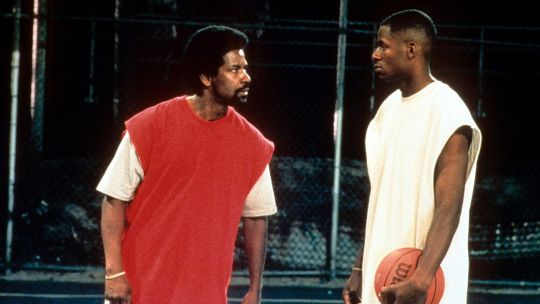
12. He Got Game (1998)
If you made a Venn diagram of people familiar with Spike Lee, the two biggest circles would be film fans and people who have seen at least one New York Knicks game since the 1990s. Therefore, the only thing that was really and truly surprising about He Got Game was the fact that it took Spike Lee 15 years and 11 films to make a film about basketball. On the outset, that’s exactly what it is : a film about basketball. Viewed with a wider lens, however, this story is a love letter to one of the most popular American inventions, and a story about how it can serve as a common-ground bridge for those from wholly different walks of life. The juxtaposition of Aaron Copland and Public Enemy made the soundtrack provocative, and Ray Allen stood out in his lead role, holding his own against the living legend that is Denzel Washington, who is always good for a stellar performance in a Spike Lee joint. Don’t mistake this film’s place on the list for my feelings about it... this is a stellar film, in my opinion, and one of my favorites to revisit.
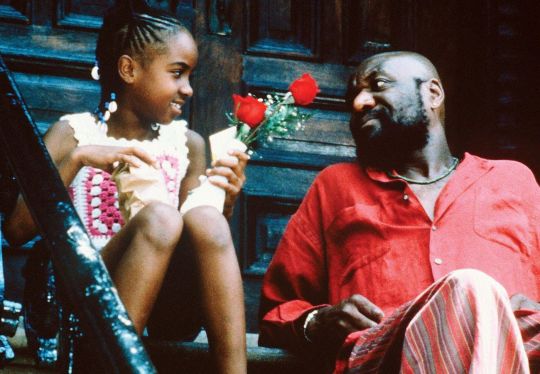
11. Crooklyn (1994)
After making what many would argue to be the most important film of his career (which we will eventually get to), it’s no surprise that Spike Lee circled his creative wagons and made the focus of his next film inward. Crooklyn covers what seem like many personal bases for Spike Lee : he portrays the New York of the past vividly and beautifully, while spinning a true-to-life tale based on his personal experience, but opting to focus on his sister Joie Lee and his father Bill Lee. Of Lee’s many, many films, this was the one that I felt the most compelled to see at the time of release, it is one of the two I have the most vivid memories and recollections of, and it has a number of stylistic choices that keep me wonderfully perplexed to this day. Despite not cracking the top ten Spike Lee films, this one ranks high on the list of Spike Lee films that hit the bullseye of my heart.
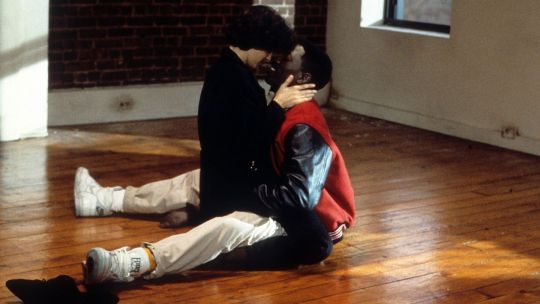
10. Jungle Fever (1991)
Interracial romance is one of those things that seemingly will always be a sensitive subject. I’ve heard many people say that Jungle Fever has a dated look on the subject, but I’d argue that the film was very forward thinking, especially in showing that an interracial romance is not the answer to the cultural and societal problems that life presents us. The movie also touches deeply on drug addiction without crossing over into the realm of being preachy or talking down to the viewer. It didn’t hurt that Stevie Wonder also managed to create a soundtrack’s worth of new material that instantly brought the seemingly controversial film directly into the public eye. Maybe it is dated... maybe it is uncomfortable... but what it is, undoubtedly, is an early masterpiece that fell near the end of one of the most stellar introductory runs that any filmmaker has presented us.
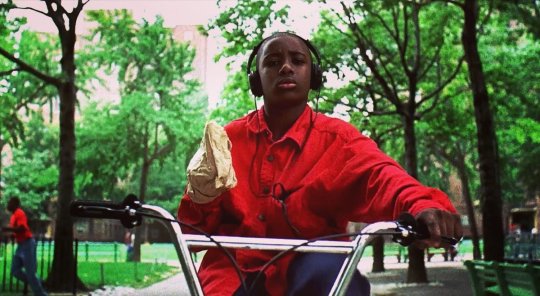
9. Clockers (1995)
Ever wonder what would happen if a Martin Scorsese film found its way into the hands of Spike Lee? Well, wonder no longer, because Clockers is out there waiting for you to discover it. The amount that this movie gets slept on is an outright tragedy and travesty. The soundtrack is KILLER, the color-timing puts the viewer in an immediate ‘cold-world’ environment, the order of operations presented in this film is brutal and unforgiving, and yet, it manages to be one of the most heartfelt films in the Spike Lee canon. EVERYONE presented in this movie brought their A-game to the table, from the Spike Lee regulars like Isaiah Washington, John Turturro and Harvey Keitel, to the glorified cameos and supporting roles, like Thomas Jefferson Byrd, Sticky Fingaz and Fredro of Onyx, and relative newcomer but promising leading man Makhi Phifer. This film is intense, but it is more than worth your time and attention.
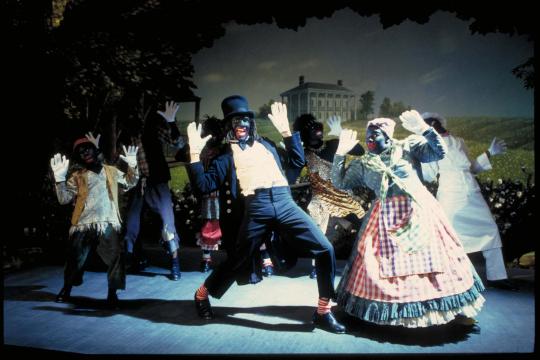
8. Bamboozled (2000)
Bamboozled was shocking when it was released, to say the least. The true revelation, however, has been the way that relevance has seemingly caught up to the film... fake wokeness, modern day minstrel shows, low budget/high yield television and behind the scenes scandals have all come to light many years after this film had its initial run. While this film did not transition Savion Glover into the world of superstardom and crossover success, it certainly crystalized his immense talent and charisma in a way that his recordings of stage shows had previously been unable to capture. The imagery of America’s strange fascination with the dehumanization of African-Americans for generation after generation is rich, and every performance is compelling. This was definitely Spike Lee’s first masterpiece of the new millennium, and at the risk of being bittersweet, probably one of his last truly stunning achievements.

7. Girl 6 (1996)
Every ranking list has to have the controversial placement, so here’s mine... Girl 6 started as a lingering interest for me. The internet was just about to change the world, but we were still locked into landlines at the time, with cellular being a luxury, so the world of phone sex still had relevance. Upon seeing the film, however, I quickly realized that the phone sex exploration was playing counter to a Hollywood hopeful narrative that was brave enough to explore new ground (per the changing times) while being mindful enough to pay homage to the countless stories of Hollywood hopefuls that came before it. Many of the shifting cinematography looks that made Clockers so gritty were used to make Girl 6 feel dangerously euphoric. The list of cameos and brief supporting roles were not only a who’s who of cultural movers and shakers at the time, but it ran about as long as my arm. I recently revisited the film and expected it to be a bit more on the side of kitsch, but surprisingly, the times had not been as hard on the film as I anticipated. The film shifts quite well between light and dark, and even the ending that initially slightly annoyed me has found a strange sort of charm in my older, more life-experienced years. Add to this the hilarious running joke of Isaiah Washington being a kleptomaniac in nearly every scene he appears in, and there’s a realization that there are sublayers going on right in front of our eyes. This collaboration with Suzan-Lori Parks gives me hope that maybe one day, we’ll get a Spike Lee film adaptation of Topdog/Underdog, but we will see.
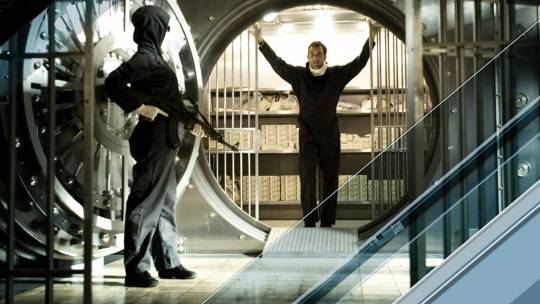
6. Inside Man (2006)
If you had to pick the most ‘Hollywood’ of the Spike Lee films, my money would be on this film ending up as the chosen one. By this rationale, it makes the film that much more impressive, as it also stands out as one of the most compelling, well-directed and well-acted Spike Lee films. At the time of its release, it was not only a return to form, but it seemed to signal an evolution. Spike Lee was able to use his signature, iconic shots that he was known for, like his camera-turned-to-dolly float, or the push-pull zooms, but he was also able to incorporate familiar Hollywood tropes, including the twist ending, and give them a breath of fresh air via an newly infused sense of style. Lee also stayed true to himself by educating as well as entertaining, bringing to light how atrocities from the past have more than historical connections to modern day benefactors. While I do think there are a handful of better ‘pure’ Spike Lee films, if I had to pick one movie for a curious party that my be skeptical, this would easily be my pick.
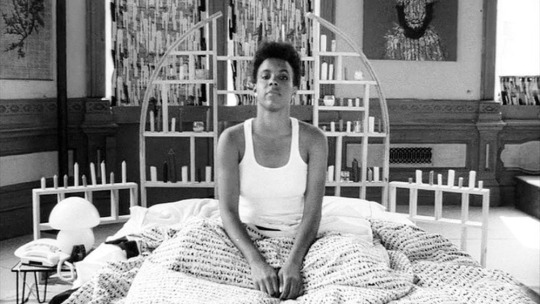
5. She's Gotta Have It (1986)
Oh, the joy of having your first film be a breakout success, but not to the point of pigeon-holing your career. She’s Gotta Have It was an important introductory step to the masses for Spike Lee : it showed his dedication to putting African-American performers into familiar narratives, it showed an appreciation for the voice of women on film that many first-time directors would likely not want to be the initial association to their style, it introduced the world to Mars Blackmon (who became a cultural icon), and it presented sense of style that switched on the viewer the moment before they could label it pretentious. Having characters address the camera made it feel like a play or a novel, but when the film shifted into movie mode, the camera moved with the energy and grace of a performance artist or dancer, which in turn fed into the character development and narrative it presented. As a bonus, the property found new life nearly 40 years later as a Netflix original series, introducing new generations to a modern day classic statement of feminism, and how it does not excuse bad behavior.
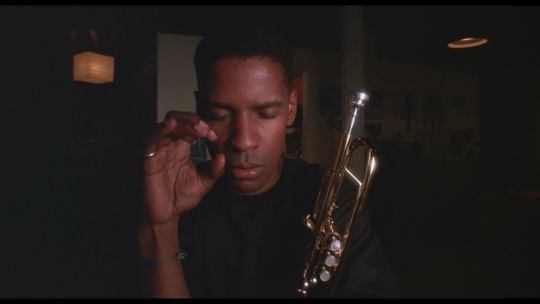
4. Mo' Better Blues (1990)
Those familiar with Spike Lee’s family know that he was raised by jazz bassist Bill Lee, who scored some of Spike’s early films. By this rationale, it comes as no surprise that Lee could make such a rich, nuanced and heartfelt film about jazz music that serves as an allegory for the hurdles that beset those driven purely by passion. The conversations about race, musical integrity and commercialism also work on both direct and symbolic levels, giving Mo’ Better Blues some of the highest repeat viewing value of any film in the Spike Lee canon. The film also marked the first collaboration of Spike Lee and Denzel Washington, a combination that yielded artistic, career, creative, commercial and critical success, led to a multitude of classic performances, and ultimately led to a generational collaborative changing of the guard in the form of John David Washington. The only negative I can give this film is that it did not lead to future films that explored genres of music like hip-hop and soul. While She’s Gotta Have It did focus heavily on relationships and intimacy, it could be argued that Mo’ Better Blues was Spike Lee’s first adult contemporary film, and his first look at modern romance in the more ‘traditional’ sense.
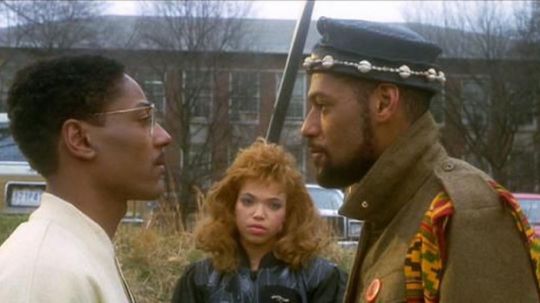
3. School Daze (1988)
The African-American college experience, specifically that of HBCUs (Historically Black College and Universitys), is one that has often been neglected in the annals of film history. As a graduate of Clark Atlanta University, it makes total sense that Spike Lee’s second commercial film would focus on that specifically overlooked culture, as it became a fitting vehicle for establishing Lee’s sense of duty and responsibility for education, sharing the African-American experience to the masses, and exposing systematic injustices and hypocrisies that kep the disadvantaged in a disadvantaged position. The real genius of this film, however, comes in the juxtaposition of presentations it jumps between... for the majority of the film, it is an unflinching look at the coming of age process that teenagers must traverse on their way to adulthood, including the hurdles of romance, forming your identity and expanding your view of the world around you. At key moments, however, the film switches into musical numbers, song performances and school dances that not only expand on the inner feelings, emotions and desires of characters, but heighten the reality of the story to a dizzying pace. In all the ways that She’s Gotta Have It put the world on notice that a unique voice was present in the industry, School Daze signaled the continuation of a run that would last another handful of films, and it firmly established Spike Lee as a generational talent.
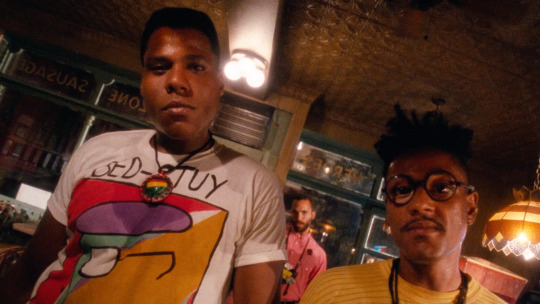
2. Do the Right Thing (1989)
I would guess that over the course of a career, a director secretly hopes that at least one of their works comes close to making an impact culturally. In the case of Spike Lee, however, we have a man who released two cultural-shifting films, and did so in a span of less than 5 years. They say the third time is a charm, and that’s exactly what Do the Right Thing was for Spike Lee. The vivid colors, stylistic earmarks, historical and cultural sense of urgency and focus on telling minority stories all expanded greatly with this film, which acted as both a parable of how past injustices can come back to haunt you, and a harbinger of how the reactions to these continued injustices would only amplify if not addressed. The fact that Spike Lee not only directed this film, but played the lead actor as well, is a monumental achievement, especially considering how few flaws the film has, if any. Several established actors played some of their most iconic roles in this film, and a breadth of newer, younger faces exploded onto the scene, almost all of whom either continued to work with Lee or found themselves evolving their careers in the wake of Do the Right Thing. The film is also directly responsible for perhaps the most iconic hip-hop song of all time, Public Enemy’s classic protest anthem Fight The Power. Any fan of film would be foolish to skip the Spike Lee catalog, but regardless of whether you’re interested in his work or not, this film is one of two he made that should flatly be considered required viewing across the board. The other one, being...
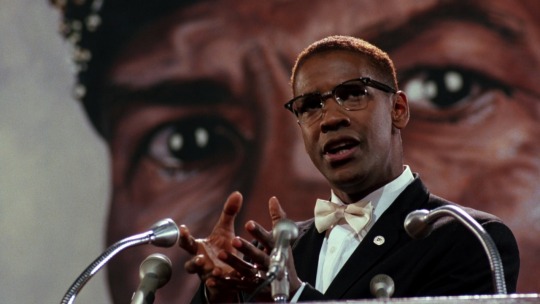
1. Malcolm X (1992)
For everything that Do the Right Thing did for Spike Lee and those involved in the production, the monumentally powerful biopic Malcolm X did all of that while also managing to humanize, canonize and create and icon out of a man that America tried its best to demonize. The masterful hand that Lee used to direct this film shows, as this film is the most ‘every frame a painting’ in his canon. Everything from the period costuming to the locations to the dance numbers to the cinematography absolutely leaps off of the screen. The editing is kinetic, the performances are full of life and depth, and the narrative does just enough going forwards and backwards to make proper connections without beating it over the head of the viewer. The respect shown to Malcolm X is massive, so much so that almost seemingly overnight, Malcolm X went from being a feared and often heavily criticized sign of aggressive blackness to a commercial commodity and household name, with the famous X suddenly adorning t-shirts, baseball caps and necklaces of all American youth, not just minorities. The impact of this film was so immediate that many schools held field trips for viewings, which further cemented the immediate and historical value of the film. Often, the connotation of saying someone ‘peaked’ for a film so early in their career would be negative, but the heights to which Malcolm X achieved on all fronts meant that even if the rest of Lee’s career was a steady decline (which it certainly wasn’t), he more than likely still would have ended up in a pantheon far above that of the average director.
With projects reportedly in the early stages of development, it doesn’t look like Spike Lee has any plans on stopping anytime soon. I certainly owe it to myself to see the handful of his films and documentaries that I’ve not seen yet... who knows, perhaps I may even go back one day and add the documentaries into the list, or find a surprise gem in one of his more recent movies I’ve yet to see.
#ChiefDoomsday#DOOMonFILM#SpikeLee#JoesBedStuyBarbershopWeCutHeads#ShesGottaHaveIt#SchoolDaze#DoTheRightThing#MoBetterBlues#JungleFever#MalcolmX#Crooklyn#Clockers#Girl6#GetOnTheBus#HeGotGame#SummerOfSam#Bamboozled#25thHour#SheHateMe#InsideMan#MiracleAtStAnna#RedHookSummer#Oldboy#DaSweetBloodofJesus#ChiRaq#Blackkklansman#Da5Bloods
17 notes
·
View notes